Faith, reason and...


Vatican describes kidnapping as “despicable,” motive may have been money rather than ideology.
■ By Carol Glatz
VATICAN CITY (CNS) - Pope Benedict XVI appealed for peace and security in Iraq after kidnappers abducted Chaldean Catholic Archbishop Paulos Faraj Rahho of Mosul, Iraq, and killed the three people who were travelling with him.

Kidnapped: Archbishop Rahho of Mosul, Iraq. CNS
“May those who hold in their hands the fate of the Iraqi people increase their efforts so that through the commitment and wisdom of everyone, Iraqis may regain peace and security and not be denied the future that is rightfully theirs,” the Pope said to people gathered for his noonday Angelus prayer in St Peter’s Square on March 2.
Archbishop Rahho was kidnapped late on February 29 after he finished leading the Way of the Cross, Chaldean Bishop Rabban al Qas of Arbil told the Rome-based missionary news service AsiaNews.
The Mosul archbishop had just left the Church of the Holy Spirit in Mosul and was in his car with his driver and two body
Continued - Page 13

The war against JIHADISM
Celebrating 20 years since JPII’s Letter to WOMEN
Vista 1
Rome conference delegate speaks - Vista 2-3
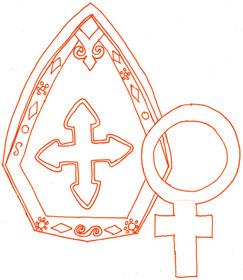
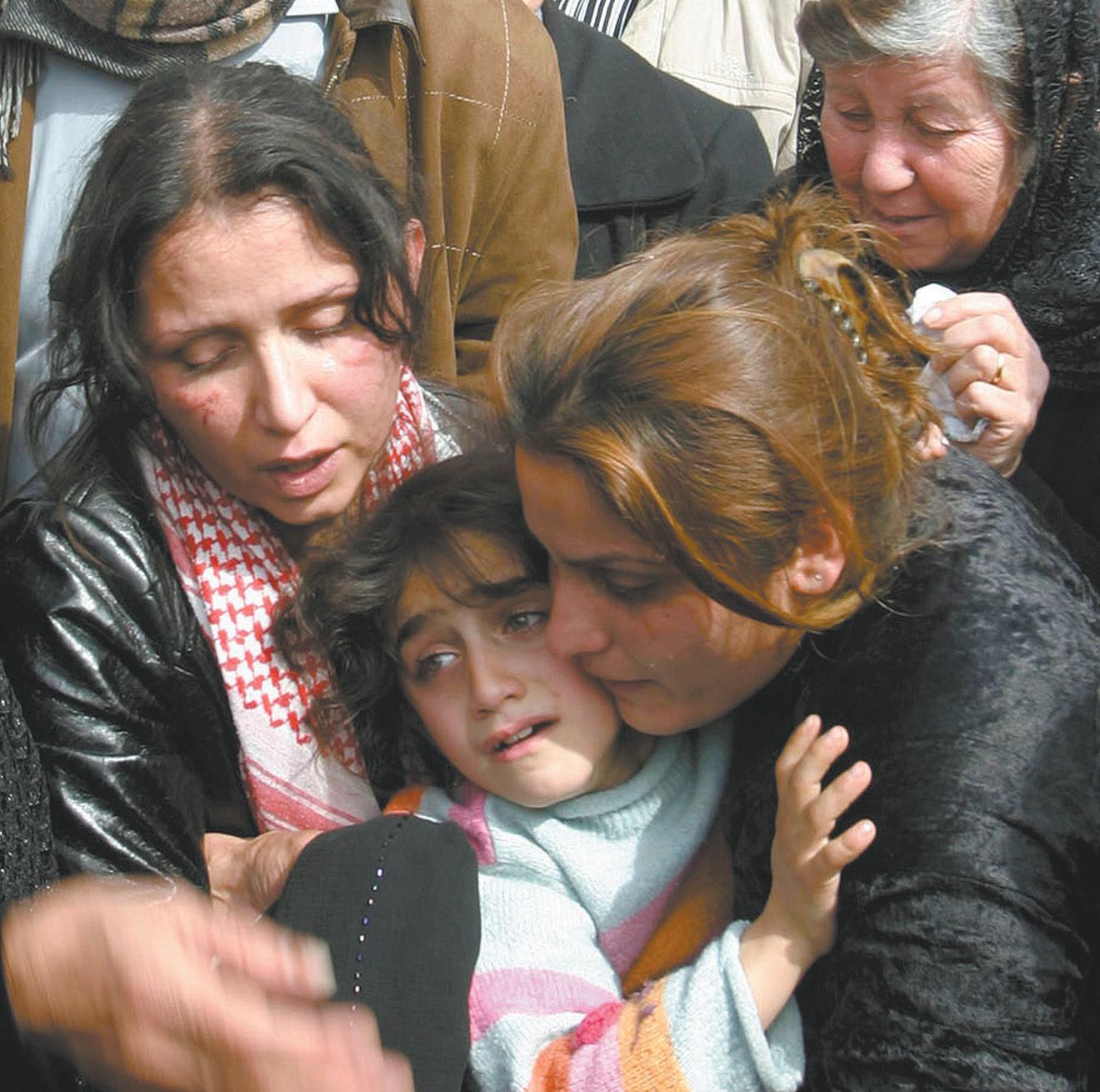
Vatican says baptisms using wrong words are
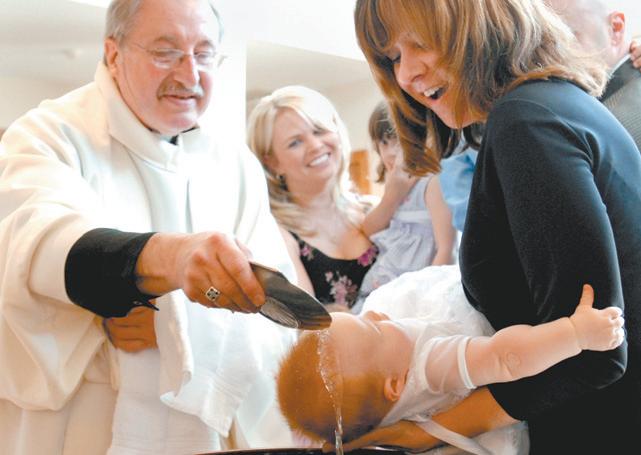
By the book: A priest baptises an infant in this 2007 file photo. In the Catholic rite the minister uses the invocation “I baptise you in the name of the Father and of the Son and of the Holy Spirit.” The Vatican has declared other formulas are invalid and obscure
Problem not male language but Trinitarian faith: experts
■ By Cindy Wooden
VATICAN CITY (CNS) - A baptism administered “in the name of the Creator, and of the Redeemer and
Archbishop endorses TV’s Catholic Guy
Perth broadcast a breakthrough on free to air television.
Archbishop Barry Hickey was among more than 550 people at the ballroom at Burswood last Wednesday night for the launch of “the Catholic Guy” television program which made its debut on Channel 9 at 6.30am on Sunday.
Produced in Perth by Bruce Downes and the City Impact Catholic Ministry, the program has been televised around the world on pay tv, but the Channel 9 venture is its first break through on free to air television.
Archbishop Hickey said he endorsed the program because it was a great initiative in telling the good news to the world.
“We spend a lot of time talking to one another, writing, making videos and DVDs for one another. We need to spend more time talking to those beyond the Church’s doors.
“It is wrong to keep the Good News to ourselves.
Continued - Page 4
invalid, will need to be redone
of the Sanctifier” is not a baptism at all, said the Vatican’s Congregation for the Doctrine of the Faith.
The congregation’s statement was published on February 29 as a brief response to questions regarding the validity of baptisms using that formula.
Asked whether a baptism performed with that formula - or a
similar one referring to the “Creator, Liberator and Sustainer” - would be valid, the congregation answered “Negative.”
Asked whether people who were initiated with a rite using these formulas would now need to be baptised “in the name of the Father, and of the Son and of the Holy
Continued - Page 13












Western Australia’s award-winning Catholic newspaper - Wednesday March 5 2008 www.hondanorth.com.au 432ScarboroughBchRd,OsbornePark,6017 432 Scarborough Bch Rd, Osborne Park, 6017 Ph: 94499000 9449 9000 new@ new@hondanorth.com.au DL0891 ‘DEALER OF THE YEAR’ 1996 ❙ ‘WA OVERALL EXCELLENCE’ 1996, 1998, 2003 ‘WA SALES EXCELLENCE’ 1996, 1997, 1998, 2002, 2003, 2004, 2005 FORTHEBESTDEALONANEWHONDA, FOR THE BEST DEAL ON A NEW HONDA, ACCESSORIES,PARTS,FINANCEORFROM ACCESSORIES, PARTS, FINANCE OR FROM OURRANGEOFQUALITYUSEDVEHICLES. OUR RANGE OF QUALITY USED VEHICLES. FOR THE BEST DEAL ON A NEW HONDA, ACCESSORIES, PARTS, FINANCE OR FROM OUR RANGE OF QUALITY USED VEHICLES www.hondanorth.com.au 432 Scarborough Beach Road, Osborne Park, 6017 Ph: 9449 9000 new@hondanorth.com.au ‘DEALER OF THE YEAR’ 1996 ‘WA OVERALL EXCELLENCE’ 1996, 1998, 2003 ‘WA SALES EXCELLENCE’ 1996, 1997, 1998, 2002, 2003, 2004, 2005 the Parish. the Nation. the World. Perth, Western Australia $2 THE R ECORD Pray for us! Iraqi Christians beg world’s believers for prayer after Archbishop’s kidnapping, murders of bodyguards www.therecord.com.au The Parish - Pages 4-5 The Nation - Pages 6-7 Letters - Page 8 Perspectives - Vista 4-pg 9 The World - Pages 10-11 Panorama - Page 14 Classifieds - Page 15 INDEX DO THE RIGHT THING: AND TELL THE MEDIA The former p ress secretar y to the US Con f erence o f Bi sho p s talks about why, in the age of the media, Bishops should listen to their media advisers. Page 9
Grief: The daughter of a slain bodyguard is held by her mother, right, during his funeral in Mosul, Iraq, on March 1. The guard was among three men killed in the February 29 abduction of Mosul’s Chaldean Catholic Archbishop Paulos Faraj Rahho.
PHOTO: CNS /REUTERS
the Church’s faith.
PHOTO: CNS/MIKE CRUPI/CATHOLIC COURIER.
Christian stewardship at Willetton
Agnes of Bohemia
c. 1200-1280
feast – March 6

 ■ By Matthew Biddle
■ By Matthew Biddle
Parishioners of Saints John and Paul parish in Willetton have enthusiastically embraced the parish’s latest initiative – wearing name badges at Sunday Mass.
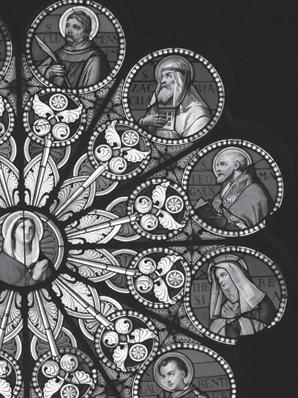
Stewardship



Agnes’ parents were the king of Bohemia (now in the Czech Republic) and the sister of Hungary’s king. Their ambitions for Agnes to marry royalty were dashed by death, the machinations of other royals and Agnes’ devotion to Christ. Finally, after several engagements, Agnes was able to dedicate herself to God. She built a Franciscan friary and hospital in Prague, then a convent for the Poor Clares, which she joined in 1236. She spent the next 44 years in prayer and service, and was canonized in 1989 on the eve of the Czech “velvet revolution.”
© 2005 CNS Saints for Today © 2008 CNS
Quote: When Jesus heard about the illness of His friend, Lazarus, He responded, “This illness is not to end in death; rather it is for God’s glory, that through it the Son of God may be glorified.” Every aspect of our lives - our gifts as well as our sufferings - can, if surrendered to Christ, lead to blessing for others and ourselves.
For further information on how stewardship can build your parish community, call Brian Stephens on 9422 7924
The parish introduced the idea at the start of Advent last year, and it has since received excellent support from many Mass-goers. Willetton’s parish priest Fr Greg Donovan said the response from parishioners so far was encouraging. “It has worked very well in terms of people knowing each others names,” he said.
Fr Richard Rutkauskas, assistant priest at Willetton, said the idea was just a small part of the parish’s focus on Christian stewardship. “The whole idea of Christian stewardship is getting people to focus on their gifts and talents and how they use those gifts and talents,” he said. “Part of that initiative is trying to making a parish a more welcoming place.
“One of the things we thought of was to encourage people to wear name tags so that Fr Greg and I could get to know them a bit better.
“Also for the people themselves, they often sit in the same pews every week but they wouldn’t know who sits next to them or in front of them or behind them.”
Fr Greg said the size of the parish – there are almost 700 parishioners – was one of the main reasons for the introduction of name badges. “I was finding it very hard to remember the names of people and when I asked parishioners, ‘Who’s that over there?’ they often couldn’t tell me,” he said.
“I thought well if they don’t know and I don’t know it’s not very good, so why don’t
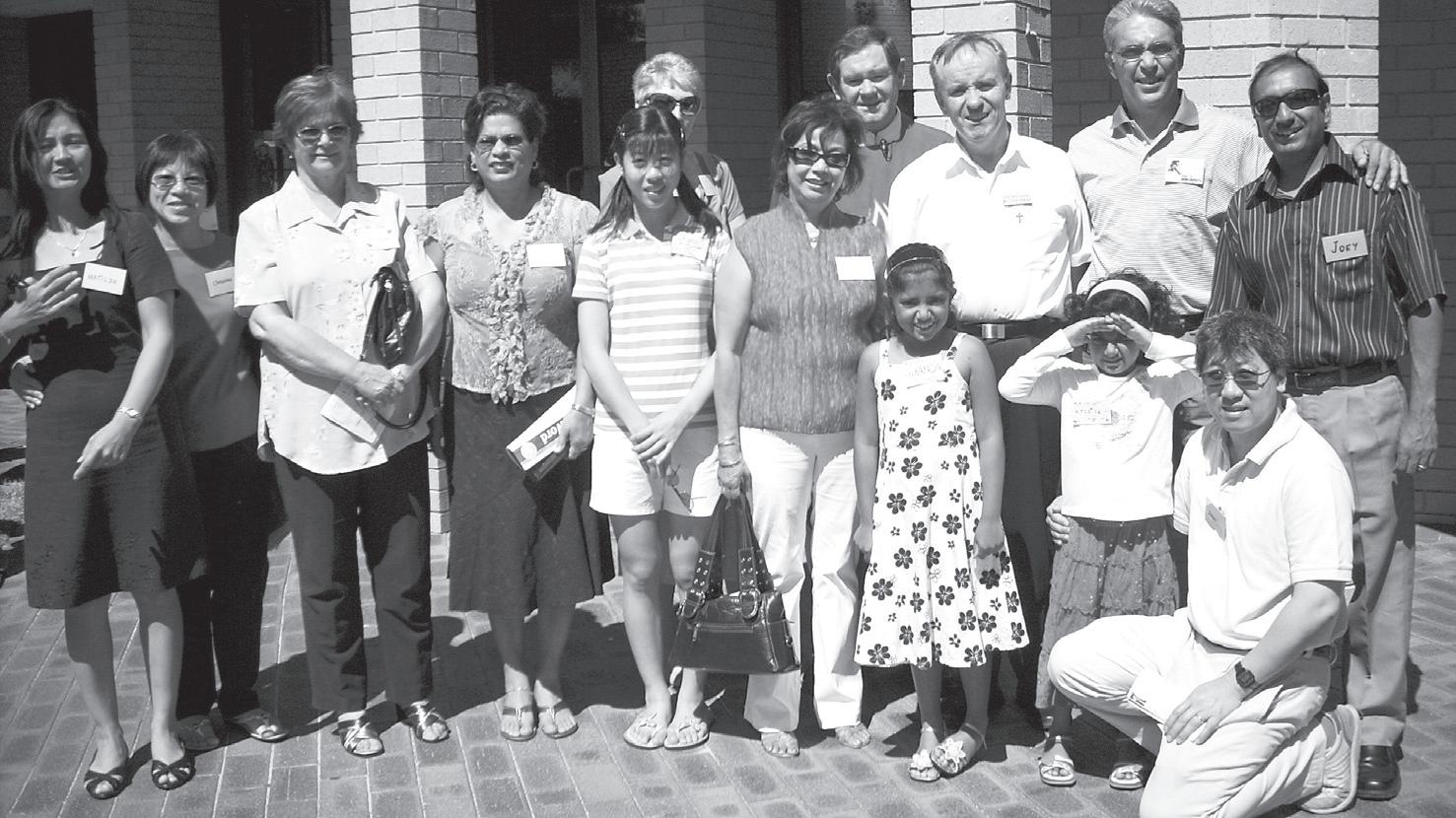
we do something about it.” Fr Richard said he believed the permanent initiative is yet to reach its full potential. “We’ve got more than half of the people wearing their name badges regularly, but it would be good to get more,” he said.
Two thousand badges were initially purchased by the parish, of which some remain in the church foyer for use by visitors. “We encouraged people to take them home and to decorate them, and to put whatever name they wanted to be known by on them,” Fr Richard said.
Parishioners are asked to bring their name badges with them to all parish functions, although some have trouble remembering their new accessory. James Cheng, a parishioner at Willetton since 1994, said the initiative has his full support, but added
that initially some parishioners were embarrassed to wear name badges to Mass. “Some of them didn’t like the idea, because it’s just like going to a seminar or a conference,” he said. “Initially I was like that too, but after a while I felt I would like to be identified, so people can call me by my name.”
Fr Greg said the simple initiative resulted in a visible increase in the sense of community within the parish.
“A lady was unwell and she was unable to come to Mass for a while, and a parishioner who recognised the name when it was announced took a casserole around there,” he said, and recommended the use of name badges to other parishes.
“Once we see their names, or they see our names, it really breaks the ice and encourages people to speak to each other.”
Voice of Voiceless launched
False evidence
Ps 22:1-6 I fear no evil Jn 8:1-11 Sin no more
11T
Vio Num 21:4-9 Moses intercedes
Ps 101:2-3;16-21 Hear my prayer Jn 8:21-30 I am going away
12W
Vio Dan 3:14-20.91-92.95
God will save us
Ps/Dan 3:52-56 Glory and praise Jn 8:31-42 Truth sets free
13T
Vio Gen 17:3-9 My covenant
Ps 104:4-9 Covenant remembered Jn 8:51-59 Greater than Abraham?
14F St Patrick, Bishop, Solemnity
Wh Jer 1:4-9 I consecrated you
Ps 116:1-2 Acclaim the Lord
Acts 13:46-49 Light for all nations Lk 10:1-12.17-20 Few labourers
15S St Joseph, Husband of Mary, Soleminty
Wh 2 Sam 7:4-5.12-14.16 House secure
Ps 88:2-5.27.29 Dynasty for ever
Rom 4:13.16-18.22 Abraham believed
Mt 1:16.18-21.24 Name him Jesus [Alt. Lk 2:41-51 The Passover feast]
■ By Anthony Barich
A West Australian initiative fostering global friendship and support by lay people for seminarians, religious and priests was officially inaugurated by Archbishop Barry Hickey on February 23 when Voice of the Voiceless was launched.
Voice of the Voiceless was started by Nigerian priest and current Corrigin/Kulin parish priest Fr Nicholas Nweke, who was inspired by the late John Paul II, who said in a Post-Synodal Apostolic Exhortation “Ecclesia in Africa” that the Church Fathers at the Synod had declared that “the Church must continue to exercise her prophetic role and be the voice of the voiceless, so that everywhere the human dignity of every individual will be acknowledged”.
Archbishop Hickey told the Voice of the Voiceless members at the inauguration Mass that the most effective way to carry out their ministry is by removing things like sin that block the working of the Holy Spirit in their lives. “Let us receive the Holy Spirit, and draw out the things that it gives us – love, compassion, friendship and generosity in our hearts towards others,” he said.
“Holiness comes from the Holy Spirit. We can’t make ourselves holy, only God can do that. So ask Him to remove the things that block the Holy Spirit from working in us so we can extend the hand of friendship to others.” Fr Nicholas, who met JPII, concelebrated Mass with Archbishop Hickey, Bassendean parish priest Fr Jim Shelton and Innaloo parish
EDITOR
Peter Rosengren cathrec@iinet.net.au
Paul

priest Fr Nicholas Perera to inaugurate the Voice of the Voiceless ministry at Notre Dame Church in Cloverdale. Fr Nweke said that without Archbishop Hickey, who he met while studying in Rome, Voice of the Voiceless would not exist, as the Archbishop invited him to complete his seminary studies in the Archdiocese of Perth and be a priest here. Archbishop Hickey, who was the first person Fr Nweke told of his idea when it emerged in 2006, said he appreciates the difficulties seminarians from overseas experience when studying in Perth. “I was born in Australia and have known the consolation of having family to visit,” Archbishop Hickey said. “Those from other countries don’t and can feel lost and alone. Therefore, for priests and seminarians who find themselves out of a supportive net-
work due to loss of family, the Voice of the Voiceless ministry will be the family for them.” The Voice of the Voiceless ministry has already helped students at St Charles Seminary with language classes, and the ministry further endeavours to do the same, offering spiritual, logistical and material help for seminarians in poverty-stricken areas. Already Voice of the Voiceless has received from the United States, where Fr Nweke’s cousin Stella Okagbue, from San Antonio, has sponsored the group’s shirts and pamphlets, along with Archbishop Hickey’s vestments he wore for the inauguration. Letters of encouragement from Germany and Canada were also read at the inauguration. “This ministry is about global friendships and transformative friendships,” Fr Nicholas said.
Page 2 March 5 2008, The Record
JOURNALISTS Anthony Barich abarich@therecord.com.au
Defendi sdefendi@iinet.net.au
Sylvia
Gray cathrec@iinet.net.au
Reidy reidyrec@iinet.net.au ADMINISTRATION Caroline Radelic administration@therecord.com. au ACCOUNTS Cathy Baguley recaccounts@iinet.net.au PRODUCTION & ADVERTISING Justine Stevens production@therecord.com.au CONTRIBUTORS Joanna Lawson Debbie Warrier Fr Anthony Paganoni Hal Colebatch Anna Krohn Catherine Parish Fr Flader John Heard The Record PO Box 75, Leederville, WA 6902 - 587 Newcastle St, West Perth - Tel: (08) 9227 7080, - Fax: (08) 9227 7087 The Record is a weekly publication distributed throughout the parishes of the dioceses of Western Australia and by subscription. Why not stay at STORMANSTON HOUSE 27 McLaren Street, North Sydney Restful & secure accommodation operated by Sisters of Mercy, North Sydney • Situated in the heart of North Sydney and a short distance to the city • Rooms available with ensuite facility • Continental breakfast, tea/coffee facilities & television • Separate lounge/dining room, kitchen and laundry • Private off-street parking Contact: 0418 650 661 or email: nsstorm@tpg.com.au VISITING SYDNEY Saint of the Month Walking with Him Daily Mass Readings 9S 5th Sunday of Lent Vio Ezek 37:12-14 I am the Lord Ps 129:1-8 Waiting for the Lord Rom 8:8-11 Your spirit is life Jn 11:1-45 Death to life
Vio Dan 13:1-9.15-17.19-30.33-62
Mark
10M
CNS
Making new friends: parishioners at Willetton are enjoying the opportunities something as simple as name tags has brought the Church community.
PHOTO: MATTHEW BIDDLE.
All in the family: Members of Voice of the Voiceless ministry read their Prayer of Commitment during the inauguration ceremony and Mass at Notre Dame Church.
PHOTO: ANTHONY BARICH.
WYD key sites announced
World Youth Day Sydney 2008 (WYD08) today welcomed the announcement by the Deputy Premier of key sites to be used for World Youth Day and, in particular, the confirmation that Barangaroo in East Darling Harbour will be the venue for three showpiece events.
The 22-hectare site, vacated recently by the Patrick Corporation, has been made available for WYD08 by the NSW government. “This magnificent harbourfront site will host the Opening Mass, the Papal Arrival, two Stations of the Cross and several Youth Festival events,” WYD08 Chief Operating Officer Danny Casey said.
“Today’s announcement of key public venues by the Deputy Premier provides the certainty we need to proceed with our preparations,” Mr Casey said.
Barangaroo is expected to host up to 150,000 pilgrims when the Archbishop of Sydney, Cardinal George Pell, celebrates the Opening Mass to mark the start of the six-day event at 4.30pm on Tuesday 15 July. On Thursday July 17, Pope Benedict XVI will arrive at Barangaroo by boat for his Official Welcome, and the next
evening the venue will host two of the 13 Stations of the Cross – a re-enactment of the last hours of the life of Jesus Christ. “All of these events will be televised live to the world from this spectacular location, making it the perfect venue from which to showcase Sydney.
The site will also include stages at either end for Youth Festival events,” Mr Casey said.
The other major CBD venues which the Deputy Premier confirmed in his announcement today as available for WYD08 include Royal Botanic Gardens, the Domain, Sydney Opera House, Sydney Harbour Bridge, Darling Harbour, Randwick Racecourse and Centennial Park.
These venues will either be used for major events, Youth Festival activities or as Live Sites - where pilgrims and Sydneysiders can gather to watch and participate in WYD08 events.
WYD08 is a week of event activities which will be held 15 – 20 July 2008 in Sydney. The event will attract approximately 125,000 international registered visitors to the event, and approximately 500,000 participants to the final Mass.
Clergy getaway offer

Island holidays for priests are on offer with the Catholic parish of Flinders Island offering their parish house as holiday accommodation.
Flinders Island is the main island of the Furneaux Islands, a group of 52 islands that stretch across Bass Strait between Tasmania and Australia.
“Flinders Island is a beautiful place with pristine waters and air. It is a peaceful and relaxing place with a very friendly community,” parish priest Fr Terrance Southerwood said.
Correction
The parish house is situated in Whitemark, only five minutes drive from the airport and is close to shops, the library, medical centre and golf club.
“We are a very small Catholic community and our parish house, which is used by visiting priests, is vacant most of the time,” Fr Southerwood said.
The only charge for the holiday accommodation is a Sunday Mass for the small community.
For further details, contact Fr Southerwood on: (03) 6331 4377 or email: apostles@bigpond.com.
Pope to stay with Cardinal Pell during WYD
Pope Benedict will be Archbishop of Sydney George Pell’s special house guest during his four day visit in July for World Youth Day.
AAP reports NSW Deputy Premier John Watkins released a few details of the Papal visit yester-
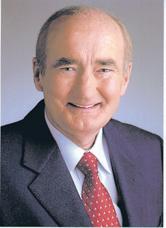
day which will involve a massive security and logistical exercise for the State. Along with other WYD dignitaries, the Pope will travel by boat to some Sydney locations and WYD events.
As well as Randwick
Racecourse, the Pope is likely to visit sites including the newlynamed Barangaroo site in East Darling Harbour, the Domain,
the Opera House and Centennial Park. WYD organisers have only 10 weeks exclusive access to Royal Randwick in which to transform the racecourse for the July 20 papal Mass.
A stage to hold the Pope and 1,000 senior clergy as well facilities for the more than 300,000 people inside the racecourse must be built in that time.

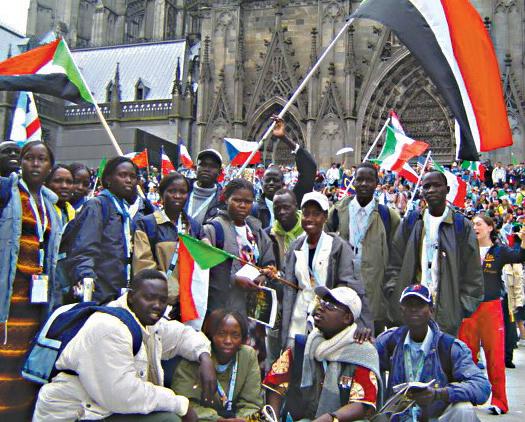
Anyone able to help this cause will be sent a complimentary Papal Rosary of Pope Benedict XVI, and a Holy card with a prayer for World Youth Day. We ask you to join the Holy Father and the Catholic community in prayer for the success of this unique and faith filled event.
To send your donation please fill out the coupon below and tick the box* if you would like to receive the complimentary Papal Rosary and prayer card.



March 5 2008, The Record Page 3 Just over the Causeway on Shepperton Road, Victoria Park. Phone 9415 0011 PARK FORD, 1089, Albany Hwy, Bentley. Phone 9415 0502 DL 6061 JohnHughes JOHN HUGHES CHOOSE YOUR DEALER BEFORE YOU CHOOSE YOUR CAR... Absolutely!! Company Philosophy “We are a friendly and efficient company, trading with integrity and determined to give our customers the very best of service”. JH AB 015 The Catholic charity Aid to the Church in Need (ACN) will be assisting up to 100 youth from Sudan, Myanmar (formerly Burma) and other poor and oppressed countries, attend World Youth Day (WYD) in Sydney, 15 – 20 July 2008. Without financial assistance, youth from these poor and oppressed countries, would not be able to respond to the Pope’s invitation for all youth of the world to attend WYD. ACN sponsored the youth delegation, pictured left, to WYD in Cologne 2005. These young people from Sudan returned home and spread the good news of their meeting. James Shawish will never forget the words of the Holy Father. “He encouraged us to feel united with God, our country and the world at large. He urged us to go and proclaim what we had heard to our friends, to their families and to share what we had experienced when we were together as brothers and sisters from all over the world.” Join us in Prayer with the Pope and for the success of
World Youth Day
I/We enclose a donation of $ …….....… to help Youth from Poor and Oppressed countries attend World Youth Day 2008 0Yes please send me the Papal rosary and Holy card*
enclose a cheque/money order payable to Aid to the Church in Need OR please debit my Visa or Mastercard: 0000 0000 0000 0000 Expiry Date______/______Signature. . . . . . . . . . . . . . . . . . . . . . . . . . . . . . . . . . . . BLOCK LETTERS PLEASE Mr/Mrs/Miss/Sr/Rev . . . . . . . . . . . . . . . . . . . . . . . . . . . . . . . . . . . . . . . . . . . . . . . . . Address . . . . . . . . . . . . . . . . . . . . . . . . . . . . . . . . . . . . . . . . . . . . . . . . . . . . . . . . . . . . . . . . . . . . . . . . . . . . . . . . . . . . . . . . . . . . . . . . . . . . . . . . Postcode . . . . . . . . . . . . Phone . . . . . . . . . . . . . . . . . . . . . . . Email . . . . . . . . . . . . . . . . . . . . . . . Help Poor and Oppressed Youth attend World Youth Day 2008 Aid to the Church in Need, POBox 6245 Blacktown DC NSW 2148 Phone/Fax No: (02) 9679-1929 E-mail: info@aidtochurch.org Web: www.aidtochurch.org PG: 517 Any surplus donations we receive will be used for the youth apostolate in those countries where the Church is persecuted or suffering. Aid to the Church in Need … a Catholic charity dependent on the Holy See, providing pastoral relief to needy and oppressed Churches
I
The photo in the story called “Kelmscott responds to Benedict XVI” published in The Record on February 6 was taken by Graham Maher, not Matthew Biddle.
the Parish
Ganni Inside the Vatican
■
By Anthony Barich
Martyred Iraqi Catholic priest Father Ragheed Ganni has been named in the top 10 People of the Year 2007 by Inside the Vatican magazine.
Inside the Vatican, is a monthly publication produced by scholars and journalists with decades of experience reporting from Rome to “think with the Church” but is not an official Church publication, named Fr Ganni at Number Seven, quoting Pope Benedict XVI who said he was a “costly sacrifice” for the Chaldean Church.
Fr Ganni, a Chaldean priest, was mourned by priests in Perth, including City Beach parish priest Fr Don Kettle who studied with him in Rome.
Fr Ganni was shot and killed with three deacons after celebrating Mass in Mosul, Iraq after being asked if he would renounce his faith.
His death was felt around the world, and was noted, the magazine said, by Pope Benedict XVI, Irish president Mary McAleese and was also noted in hundreds of newspaper columns, magazine articles and websites; protest demonstrations were held in the United States, Sweden, France, Germany and Rome.
War broke out in Iraq the year he was finishing his licentiate degree in ecumenical theology from the Angelicum in Rome and he was ordained a priest in Rome in 2001.
Fr Ganni visited his good friend from the Pontifical Irish College, City Beach parish priest Fr Don Kettle, in Perth in 2003 for the summer.
Fr Kettle told The Record shortly after Fr Ganni died that they spoke about the Chaldean priest returning to Iraq and “what that might mean”.
“Fr Ragheed was very loyal to his Bishop and to the people of his diocese,” Fr Kettle said.
“He was aware of the dangers of returning to Iraq where Christians had been targeted by Muslim extremists. Knowing the risk to his life, he gladly accepted the challenge of administering the sacraments to his people.
“Fr Ragheed was like a brother to me, and my heart is sad because the world is a much lonelier place without him.”
Fr Ganni was opposed to the US-led Coalition’s invasion of Iraq, one of the reasons being that he knew it would mean Iraqi Christians would be targeted and persecuted by Islamic fanatics who associated Christianity with forces from the West.
His prophecy would be carried out on himself. In 2004 he was accosted by armed Islamic militants who took him from the residence of the Archbishop of Mosul and made him watch as they set off bombs they had placed within the building, according to Inside the Vatican. Fr Ganni also received death threats and his Holy Spirit Church was the scene of several attacks. Less than a month before he was killed, the church had suffered dam-
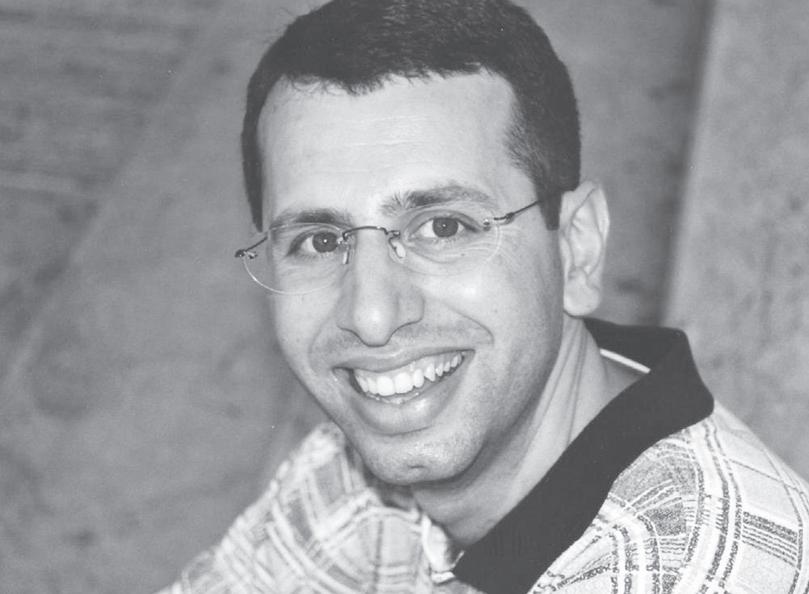
Fondly Remembered: Fr Ragheed Ganni
age from bombing, Inside the Vatican said.
After his death, Fr Philip Najim, the procurator of the Chaldean Church to the Holy See, declared Fr Ganni a martyr of the Chaldean Church, which is “suffering and has shed its blood in what Benedict XVI calls the Church of the Living Martyrs”, Inside the Vatican said.
It added that Fr Najim said that Fr Ganni’s martyrdom “should be a dawn for the life and peace of Iraq, giving room to Christian hope. We need the Holy See to encourage the Church in Iraq and all Christians to unity”.
Inside the Vatican’s top 10 list was headed by Francis Beckwith, an American professor of philosophy converted back to the Roman Catholic Church after spending years in the evangelical protestant church.
Others in the top 10 were the Marquise Immacolata Solaro del Borgo, known for charity and friendliness with the East, who helped to create a “climate of respect and trust between Russians and Westerners”.
Also named were Sir Martin Gilbert, British historian who is known for his “pursuit of truth”, and who has publicly defended the Church’s position on a number of issues; Brian Boyle, hit by a truck three years ago, was told he would not walk again, but instead now runs marathons, attributed his success to the providence of God rather than himself; Fr Bernardo Cervellera, the leading expert on China who runs Asia News Service; Aung San Su Kyi, advocate of democracy of Burma confined to house arrest; Alveda King, niece of Dr Martin Luther King Jnr, who has made it her mission to protect civil rights of unborn and is one of the leading pro-life voices in America and the world.
Sr Eugenia Bonetti, leader of large international movement to help women who have fallen into slavery, was also named, along with Fr Federico Lombardi, Pope Benedict XVI’s spokesman in charge of Vatican Radio and TV centre. He has a big role in “shaping the world’s perception of what the Holy Father tells it”.
PRINCIPALSHIP
MEL MARIA CATHOLIC PRIMARY SCHOOL
Mel Maria Catholic Primary School, Attadale, is co-educational and caters for approximately 720 students from Kindergarten to Year Seven on campuses in Attadale and Myaree. The school was established by the Sisters of Mercy in 1973 by the rationalisation of St Joseph Pignatelli Catholic Primary School, Attadale, Corpus Christi Catholic Primary School, Myaree, and the primary school of Santa Maria. A building program is in progress to redevelop the St Joseph Pignatelli Campus and this will provide excellent facilities for the staff and students from Kindergarten to Year Seven. The school community, though physically separated on three locations, endeavours to fulfill the motto of the school –Unity is Strength. The spirit of unity, friendship and love that prevails at Mel Maria has been developed over many years through sharing in common its values, experiences and commitment. In 2009 the school will be located on two Campuses – Corpus Christi, Myaree and St Joseph Pignatelli, Attadale. Students are provided with a wide range of spiritual, academic, cultural and sporting experiences by an energetic and enthusiastic staff, including specialist teachers in Music, Dance, Physical Education, Library and Japanese, who nurture their development in a caring friendly environment. Extension activities are provided through the Gifted and Talented Program and there is a strong focus on integrating Information Technology into the Teaching and Learning program. Parents are actively involved in the school community through the School Board and Parents and Friends’ Association. The successful applicant will be expected to take up the position on 1 January 2009.
Applicants need to be practising Catholics and experienced educators, committed to the objectives and ethos of Catholic education. They will have the requisite theological, educational, pastoral and administrative competencies, together with an appropriate four year minimum tertiary qualification, and will have completed Accreditation for Leadership of the Religious Education Area or its equivalent. A current WACOT registration number must also be included.
The official application form, referee assessment forms and instructions can be accessed on the Catholic Education Office website www.ceo.wa.edu.au Enquiries regarding the position should be directed to Helen Brennan, Consultant, Workforce Relations & Development Team, on 6380 5237 or email wrd@ceo.wa.edu.au All applications, on the official form, should reach The Director, Catholic Education in Western Australia, Catholic Education Office of WA, PO Box 198, Leederville 6903 no later than 26 March 2008.
Death of Fr John Liszka

After 27 years in Western Australia and 38 years of priesthood, Fr John (Jan Edward) Liszka died in Hollywood Private Hospital at about 5.30pm on Wednesday, February 20.
Fr Liszka was born at Brzeg Dolny in Poland on May 19, 1952 and attended the major seminary of the Salvatorians at Bagno, Poland. He was ordained there on April 21, 1979 and his first appointment was to Koczurki parish in 1979-80.
He moved to England at both Abbots Langley and Wealdstone for preparation for work in Australia and arrived in WA in 1981, going initially to Bellevue parish (now Greenmount). He was the third Polish Salvatorian to volunteer for Australia; Fr Cas Stuglik, Parish Priest at Armadale, was the first.
Later in 1981 he moved to the Geraldton Diocese and served first at the Cathedral parish and then South Hedland before moving to Three Springs in 1982. In 1983 he moved to Bunbury Diocese and was stationed at Esperance until 1988. He served at Katanning from 1989 to 1992 and returned to Esperance from 199294, before finishing his time in the Bunbury Diocese with a stint on Supply at Bunbury Cathedral.
He worked in Gosnells and Thornlie in 1995 and at St Mary’s Cathedral from 1995-97. He was incardinated as a
priest of the Archdiocese on December 8, 1996.
Fr Liszka was chaplain at Chisholm College in 1997-98 and also worked in the Bullsbrook, Bindoon, Moore River, Gingin pastoral area. He was parish priest at Carlisle from 1998-2003 and at Ellenbrook from 2003 to 2005 when he retired because of illness.
Fr Liszka had a long battle with cancer before his death. His Requiem Mass at St Joachim’s Pro-Cathedral on Friday February 29 was concelebrated by Archbishop Hickey and about 40 priests of the Archdiocese and was attended by members of his family from Poland.
In his eulogy, Fr John Jegorow, Parish Priest of Ballajura, described Fr Liszka as a man of great energy, enthusiasm and capacity to dream and to fulfil his dreams. He was a warm host who loved to entertain and to do his own cooking, often ringing his sister Renata in Poland for details of recipes for well-remembered Polish food.
The last five years were sad for Fr John, but he did not burden others with his problems. In May 2002 his mother died, and in December that year his youngest brother Edward was killed in an accident. Only three weeks ago he was comforting his sister Renata on the death of her husband Franczisek.
He is survived by his father and sister, and five nephews and four nieces. He was also great-uncle to three.
Catholic guy screens in WA
continued from page 1
“the Catholic Guy is telling the good news about the dignity of every human being, telling people that God loves them, telling families they are doing a great job, telling children they are loved, and telling people with disabilities that in God’s eyes they are perfect,” the Archbishop said.
“All of this leads people to the knowledge of the good news which is deep within them in their personal relationship with God.
“All of us have a responsibility to share the good news of Jesus Christ. “The electronic media have given us means of communication we haven’t really touched yet.
“Pay tv is important, but it is in a sense hidden from most viewers whereas free to air tv is available to everyone.
“I know that my own 1-minute words on Channel 9 have had a surprising impact in the community, and now Bruce has 30 minutes to spread
his words. It is a great initiative and I wish him and his team well.” The Archbishop also conveyed his endorsement of the program to every child and family in Catholic schools in a letter distributed by the Catholic Education Office.
Bruce Downes said that the thing that had been motivating him and his family since 1996 was the realisation that people matter to God.
“Regardless of whether they go to Church, and regardless of the circumstances of their life, God loves them,” he said. “We have to find a way to get this message through to disconnected people. We are not here to change the teachings of the Church – we can’t do that – but people are loved by God and therefore we have an obligation to try to reach them.”
People seeking further information or wanting to offer financial support for the Catholic Guy tv program can write to PO Box 1564, Osborne Park 6916, phone 1300 734 880, e-mail info@thecatholicguy.com, or visit the website www.thecatholicguy.com.
Page 4 March 5 2008, The Record
Fond farewell: Archbishop Barry Hickey blesses the coffin of Fr John Liszka. Photo Anthony Barich
the Parish
Seminary head dies at age 93
Fr John P Wilkinson, CM, the Rector of St Charles’ seminary in Guildford from 1948 to 1958 died in Malvern, Victoria, on February 18 at the age of 93.
One of his students at the seminary was Archbishop Barry Hickey who described him as ‘a dynamic person, very knowledgeable and very strict’.
“He was completely devoted to the seminary and, in addition to our theology, philosophy and liturgy he provided us with many things we did not expect,” he said.
“He gave us a cultural formation in drama, particularly Shakespeare, literature and music which we appreciated even though we chafed under the regime.”
A memorial Mass and meal for seminarians under Fr Wilkinson (priests and those who did not proceed to ordination) will be held at the seminary at 5.15pm next Tuesday, March 11.
Those attending should inform the seminary.
Fr Wilkinson was born in Wallsend, NSW, and educated in Bathurst before joining the Vincentians in March 1932.
He was ordained a priest at St Patrick’s College, Manly on July 20,
1938, and left almost immediately for Ireland where he completed an MA and DipEd at University College Dublin.
Because of the difficulties of travel during the war, he remained in Ireland until 1945, teaching at St Patrick’s seminary in Armagh and at All Hallows’ College, Drumcondra.
On his return to Australia he taught at his old school, St Stanislaus’ in Bathurst before becoming the first Vincentian Rector at St Charles’ in 1948.
It was the beginning of a long period in the seminary and formation apostolate.
His 10-year appointment in Perth was followed by six years at Holy Cross College, Mosgiel, three years at Christ the King seminary, Scoresby, two years at College St Joseph in Beirut and 14 years at Vianney College, Wagga.
Fr Wilkinson was chaplain at Macquarie University 1967-72 and devoted ten years of his priestly work to missions, retreats and relief work in parishes.
He is remembered among Vincentians for his energy, his attention to detail, and his dislike of sloppiness of thought and lack of precision in expression.
Loose change not enough
Working under the theme, ‘School Kids Just Want Justice,’ secondary school students from Mercy College, Irene McCormak College, Trinity College and Mercedes College, gathered for a Caritas Just Leadership workshop at John XXIII College on February 26. One year 10 student, Jehan Muthu Krishna, from Trinity College, offered the following reflection:
We are told that many people are less fortunate than us. We learnt, during the Caritas Just Leadership day, how far from the truth our understanding of this statement is. The truth involves young boys being drugged and kidnapped, being forced to kill and rape, to terrorise, to abduct other children and being forced to do wrong.
Although it does not affect us directly, we are all God’s children and the people who are tortured and killed, or ordered to kill are
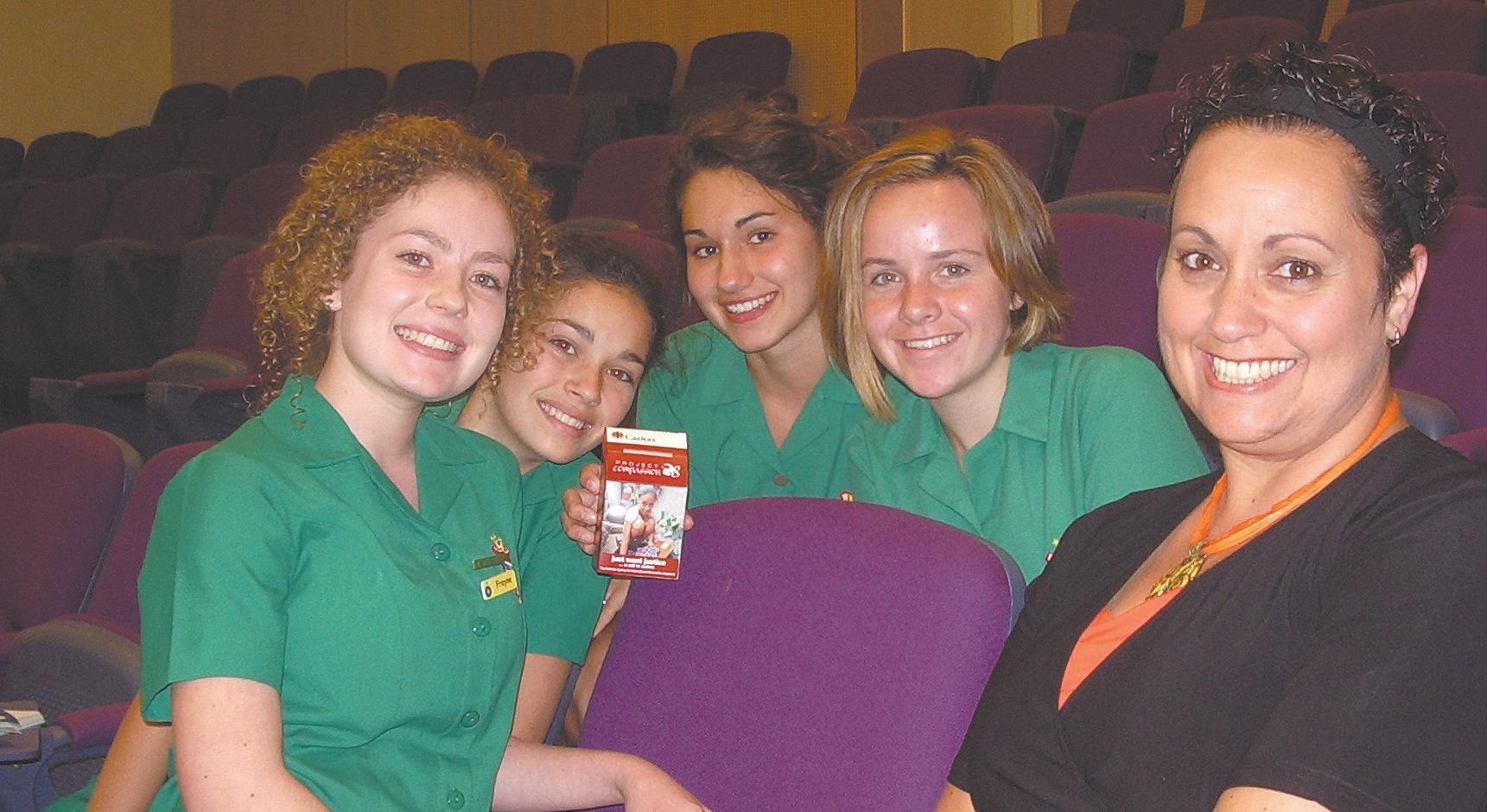
our brothers and sisters. We may give $2 to Project Compassion and feel we have done enough, but what we really need to do is to think before we act.
There is no denying $2 will help those who are in need but why not make a sacrifice in our own lives? Why not go without for a short time and think of those who experience a lack of basic needs every day until they die.
A new phone, a cool shirt, a nice pair of shoes, a hat to go with your shorts, an ipod, a watch, a chain: all of these are unnecessary items. Yet, all we want is more and more, while there are people struggling to have clothes on their body or a
roof over their head.MacDonalds, Chicken Treat, KFC, milkshakes, cool drinks are all luxuries.
People in many parts of the world go without water and food for days at a time. Next time we are hungry, thirsty or in need of clothes, we could think of those who are dying because of their need for these basic things we take for granted.
Each year Project Compassion gives us the chance to make a real difference in the lives of those who are most in need.
It is not enough to simply discard whatever loose change we may have left over, after buying all we want, to the poor of the world.
HARNESS The power of learning without a classroom.

Wonderful Education Programs for 5 to 12 year old students.
At Whiteman Park we have eight exciting Environmental and Transport Heritage Education Programs which have been developed to link in with the Education Department’s publication Outcomes and Standard Framework.
For details of these interactive, low-cost programs (from $2.00 to $6.00 per student), call 9209 6000 or visit www.whitemanpark.com
March 5 2008, The Record Page 5
BCYWHPA246
Good cause: Grace Gilbert, Sally Newman, Amanda Meloni, Georgia Jenkins and student mission leader, Rosa Speranza from Mercedes College.
Conference highlights family issues
■ By
Paul Gray
The formation of character and the building of habits to last through a lifetime of marriage are essential tools for the Church’s mission of evangelisation today.
So said Francine Pirola from the Pastoral and Matrimonial Renewal Centre in Sydney, commenting at a recent national Catholic lay leadership and formation conference sponsored by the Centre.
Participants from around Australia and from New Zealand, Europe and Africa participated in the Sydney conference, called Renaissance of Marriage
“Too often in the Church, we are sidetracked by the problems and failures of marriage,” Mrs Pirola said. “We focus on the needs of couples and families and forget that they are the ‘domestic church.’
“This conference has verified again that marriage is clearly a leading force for evangelisation.”
The Pastoral and Matrimonial Renewal Centre was established in the late 1970s by the founder of Worldwide Marriage Encounter, Fr
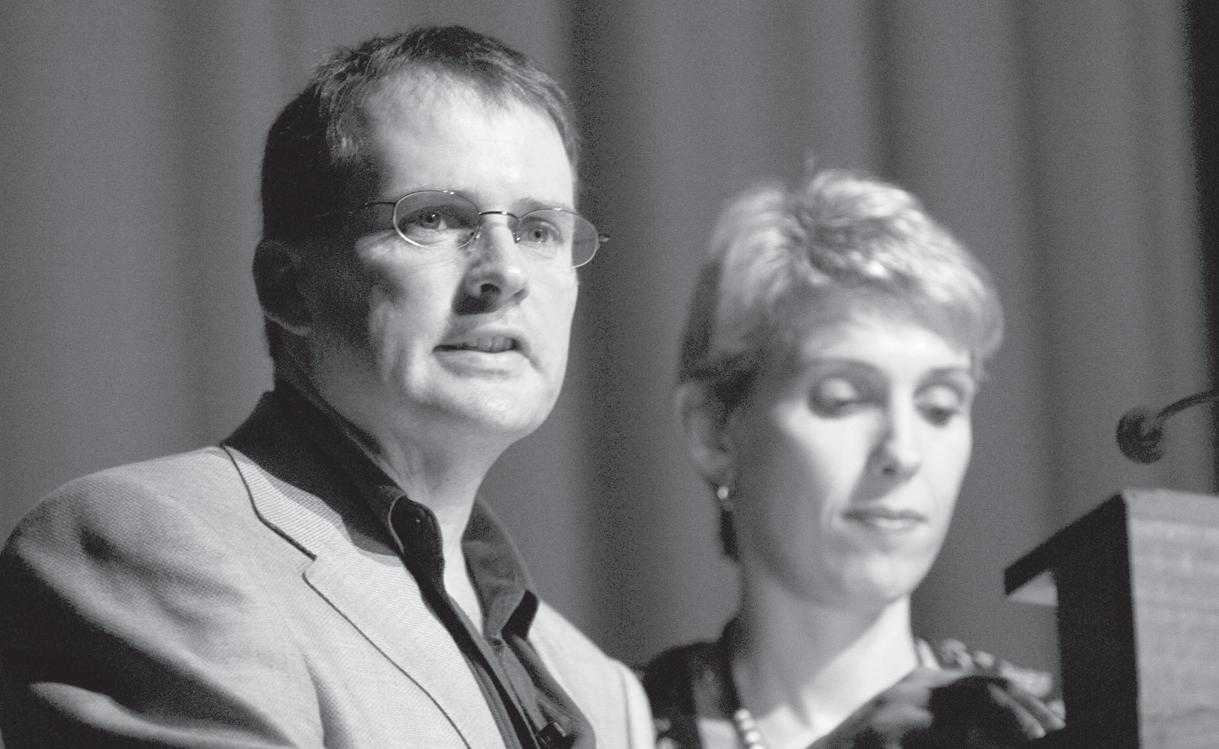
Charles “Chuck” Gallagher SJ. Mrs Pirola told The Record that in its first years the Centre worked strongly with priests and youth. However, “it is a different culture and a different climate today,” she said. In recent years a number of new initiatives and programs such as the Celebrate Love weekend seminar for married couples have been developed, with a new emphasis on evangelising and bringing alive the
key concepts of the theology of the body in programs available to adult Catholics.
Celebrate Love courses are now available nationally with a weekend held in Perth this month, March 2008.
With their renewed ‘theology of the body’ focus, programs from the Pastoral and Matrimonial Renewal Centre are now spreading offshore, a fact reflected in the international
profile of the conference held in Sydney. Speakers at the conference included Gonzaga and Paskazia Lubega from Uganda and Edmund Adamus, the director of pastoral affairs in the Westminster Catholic diocese in the United Kingdom.
Other speakers were Fr Gerald Gleeson from the Catholic Institute of Sydney, Jonathon and Karen Doyle of Choicez Media in Canberra and Ron and Mavis Pirola, members of the Pontifical Council for the Family.
Conference participants Louise and Mike Kelleher, who are involved in marriage ministry in New Zealand, said: “We’ve been reminded that the Sacrament itself is a key part of the message.”
“Yes, we need training to help run marriage courses in the Church. But we also require the witness of other sacramental couples to inspire us and others to greater ambition for our own marriages.”
The weekend seminar program Celebrate Love has been developed throughout the 1990s. Its estimated that between 5000 and 10,000 couples worldwide have experienced the seminar. Mrs Pirola said its important to use the right language
when talking about ministry in the marriage field. She says the central concept is not “marriage education” but “formation for marriage.”
Priests need to study for years before ordination, and so lay people also need adequate formation for the vocation of marriage, she argues.
Mrs Pirola and her husband Byron are the co-authors and Australian founders of the Celebrate Love seminar, and of the marriage preparation resources Embrace and Engage
Byron Pirola says marriage is a key element in what the Church proposes to the modern world. “Far from being a relic of the past, we firmly believe that marriage as envisioned by the Church is a credible and realistic response to the challenges of modern living.
“If marriages are failing today, it’s not because marriage itself is at fault, but rather couples need to be called and empowered to fully embrace the Church’s vision for their marriage.”
Mr Pirola described the Church’s vision for marriage as that of a tender, passionate and life-giving encounter between spouses.
Melbourne parish host first Catholic/Muslim meal
■ By Paul Gray
ACatholic parish in Melbourne has co-hosted the first “Miryam Meal” between members of the Catholic and Muslim communities.
The Miryam Meal is designed to promote dialogue between the Catholic and Islamic faiths at a grass-roots level, with the blessing of the Church.
It takes as its starting point the Hebrew name for Mary, explicitly recognising the unique place of honour given to Jesus’ mother within Catholic tradition.
Fr John Pearce, parish priest of St Paul the Apostle parish in Melbourne’s Endeavour Hills, spoke at the first Miryam meal along with Dr Salih Yucel, a Muslim and a lecturer at Monash University. “When I heard Dr Yucel talk about Mary, I appreciated my faith tradition through another lens,” Fr Pearce said.
The Miryam Meals project grows out of an agreement between the Australian Intercultural Society, a Muslim organi-
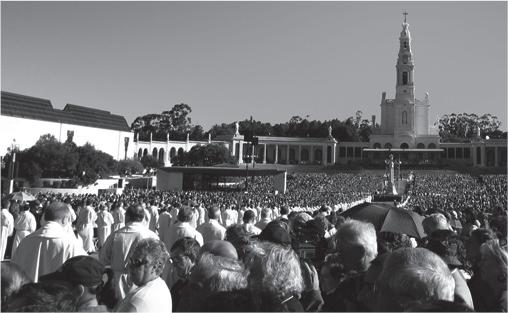
sation, and the Ecumenical and Interfaith Commission of the Melbourne Catholic Archdiocese.
The speakers addressed the importance of “dialogue in our faith.” Dr Yucel criticised those who oppose interfaith dialogue today. “There are extremists who do not understand the essence of religion and question why people are coming together for interfaith dialogue,” he said.
Dr Yucel said no matter which major religion one belongs to, it is imperative to understand the importance of dialogue. “First and foremost, God entered into a dialogue with humanity through the Prophets,” he said.
Fr Pearce said those engaged in dialogue are doing a service to the nation. “Australia needs men and women like us who are prepared to walk on the same side of the road and say ‘Hello’.”
Fr Pearce also acknowledged that the two faiths are different. “We don’t have to have the same prayer,” he said. In July last year the Intercultural Society and the Melbourne Ecumenical and Interfaith Commission signed a Memorandum of Understanding
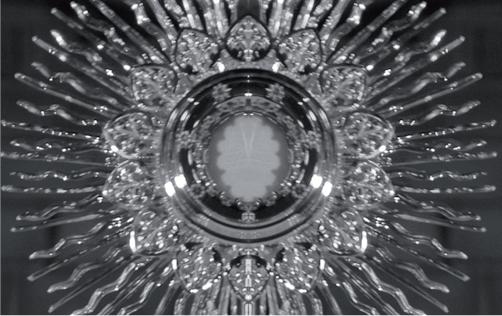

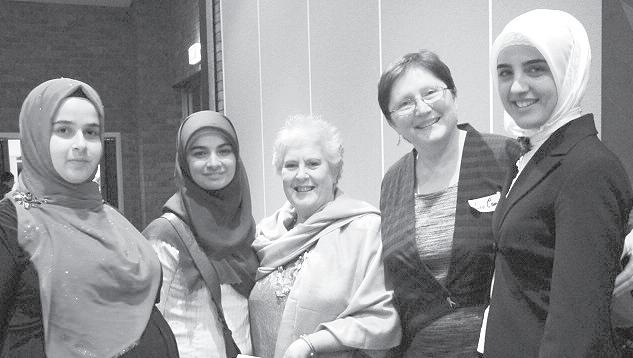
which sketched out joint activities between Muslims and Catholics under four main headings for dialogue.
These are called dialogues of life, action, understanding and religious experience. The Miryam Meals program falls under the heading dialogue of life.
Other initiatives envisaged under the Memorandum include consultation between a Muslim welfare organisation, on one side, and the St Vincent de Paul Society and Centacare on the Catholic side. Dialogues between Catholic and Muslim youth and a proposed “joint pilgrimage” to Rome and Istanbul have also been proposed.
The Australian Intercultural Society is also active in promoting better relations with the Jewish community, co-hosting the second National Social Cohesian Conference at the University of Melbourne in late February. This conference focused on the integration of the Muslim community into mainstream Australian society.
A keynote speaker, Supreme Court Judge the Hon Justice Howard Nathan, spoke of the history of the Jewish community in Australia, which began with the first fleet in 1788. The judge described that history as a “good news
story.” Justice Nathan said education had been the key to the successful integration of the Jewish community. “Not only were they (the early Jews in Australia) literate but they were also numerate, which put them ahead of others and stood the Jews in good stead ever since.
“Education, education and yet more education was the key,” he said. Muslim comedian and law student Nazeem Hussain also spoke at the Cohesian conference, highlighting the important role of humour in communication between migrants and others.
A Turkish Muslim speaker, Mr Kazim Ates, said that migration produced surprising results for many newcomers to Australia. “We actually discovered our religious and cultural identity here in Australia,” he said. “We didn’t hear about Gallipoli until we got here. We realised we had something in common and we could build on it.”
Mr Ates said that going to school in rural Australia had quickly taught him the importance of building on shared values with your neighbours. Sportsmanship, loyalty and business ethics were some of the shared values which Muslims and non-Muslims could use to build relationships with each other.
Page 6 March 5 2008, The Record the Nation HARVEST FREE CALL 1800 819 156 Flightworld Travel Perth: (08) 9322 2914 Harvey World Travel Osborne Park: (08) 9443 6266 HARVEST PILGRIMAGES All prices listed do not include airline airport & security taxes. Departing: • 11th June 2008 with Bishop Patrick Dougherty A 14 day pilgrimage from $6390* EUCHARISTIC CONGRESS Be part of this magnificent event at which the Church will manifest its faith in the Eucharistic presence if Jesus Christ. Toronto (2) Niagara Falls Montreal (2) Quebec (7) - Eucharistic Congress ►Optional Extension to New York (2), Philadelphia and Washington DC(2) GRACES OF FRANCE A 13 day pilgrimage from $4795* Departing: • 20 May with Fr George Condookala • 20 Sep* with Fr Patrick Vaughan ►Optional Lourdes pre extension ►Ask about extending on Visitations of Mary and Graces of Italy Paris (2) Lisieux (2) Chartres Nevers Paray Le Monial (2) Taize Ars La Salette (1) Turin (2) WAY OF ST JAMES A 15 day pilgrimage from $4795* Departing: • 2 Jun with Fr Darius Basiaga • 2 Oct* with Fr Richard Healey - Optional Medjugorje Extension - Why not extend on Visitations of Mary Lourdes (3) Loyola Santo Domingo De Silos (1) Burgos Leon Astorga (1) Sarria (1) Santiago De Compostela (2) Coimbra Fatima / Anniversary (3)
At the forefront: Byron and Francine Pirola spoke at the recent Renaissance of Marriage conference, which drew people from around Australia, New Zealand, Europe and Africa.
PHOTO: PAUL GRAY.
learning from each other: Catholic and Muslim women together at the Miryam Meal in Melbourne
PHOTO; PAUL GRAY..
A new director for Catholic Earthcare Australia
■ By
Paul Gray
ACatholic lay woman who has undertaken environmental training with former US Vice-President Al Gore has been appointed as the new director of Catholic Earthcare Australia.
The Chairman of Catholic Earthcare, Bishop Christopher Toohey, announced the appointment of Mrs Jacqui Remond to the post last week.
Mrs Remond was formerly coordinator of the Northern Australia Environment Alliance in Broome.
She has worked with environmental groups to advocate for the protection of northern Australia and promote stronger environmental management of Cape York Peninsula, the Gulf region, the Top End and the Kimberley.
Bishop Toohey praised Mrs
in brief...
Remond for her commitment to the environmental cause.
“As a mum of a young child, a committed woman of faith and with an impressive professional background, Jacqui will give a richness to the perspective of Catholic Earthcare, which is all about bringing integrity to our involvement with the natural world,” the bishop said.
Mrs Remond graduated from Melbourne University in 1997 with a Bachelor of Education in Science. She has lectured in environmental science at Notre Dame University’s Broome campus.
She has worked previously for Catholic Earthcare Australia in developing environmental education resources for distribution in Catholic schools.
She is one of 84 Australians who undertook training with Al Gore in 2006 to become “climate change
Vic laws would undermine marriage: interfaith group
An ad hoc interfaith committee including Catholic ethicist Nicholas Tonti-Filippini has made a submission to the Victorian
leaders.” Mrs Remond believes Catholics will become more environmentally active in coming years.
“I am confident that Catholic Earthcare can play a critical role in empowering Catholics and others to connect fully with God’s creation, to honour and respect it and to consciously care for the gift of creation as active stewards,” she says.
She envisages Catholic parishes and schools around Australia responding energetically to the call for “ecological conversion” made by the late Pope John Paul II, through actions to create ecologically sustainable practices and to prepare their local environments for future generations.
Moving forward: Jacqui Remond has been appointed the new director of Catholic Earthcare Australia.
Government opposing new moves to equate marriage and other relationships.
The Victorian parliament is presently considering a relationships bill which would establish a register for domestic relationships, and a related “judicial pensions” bill which would create provisions for a status for de facto and same-sex relationships.
The writers support equal rights for people in “interdependent relationships,” but they oppose the relationship bill because it “depends in practice on the existence of
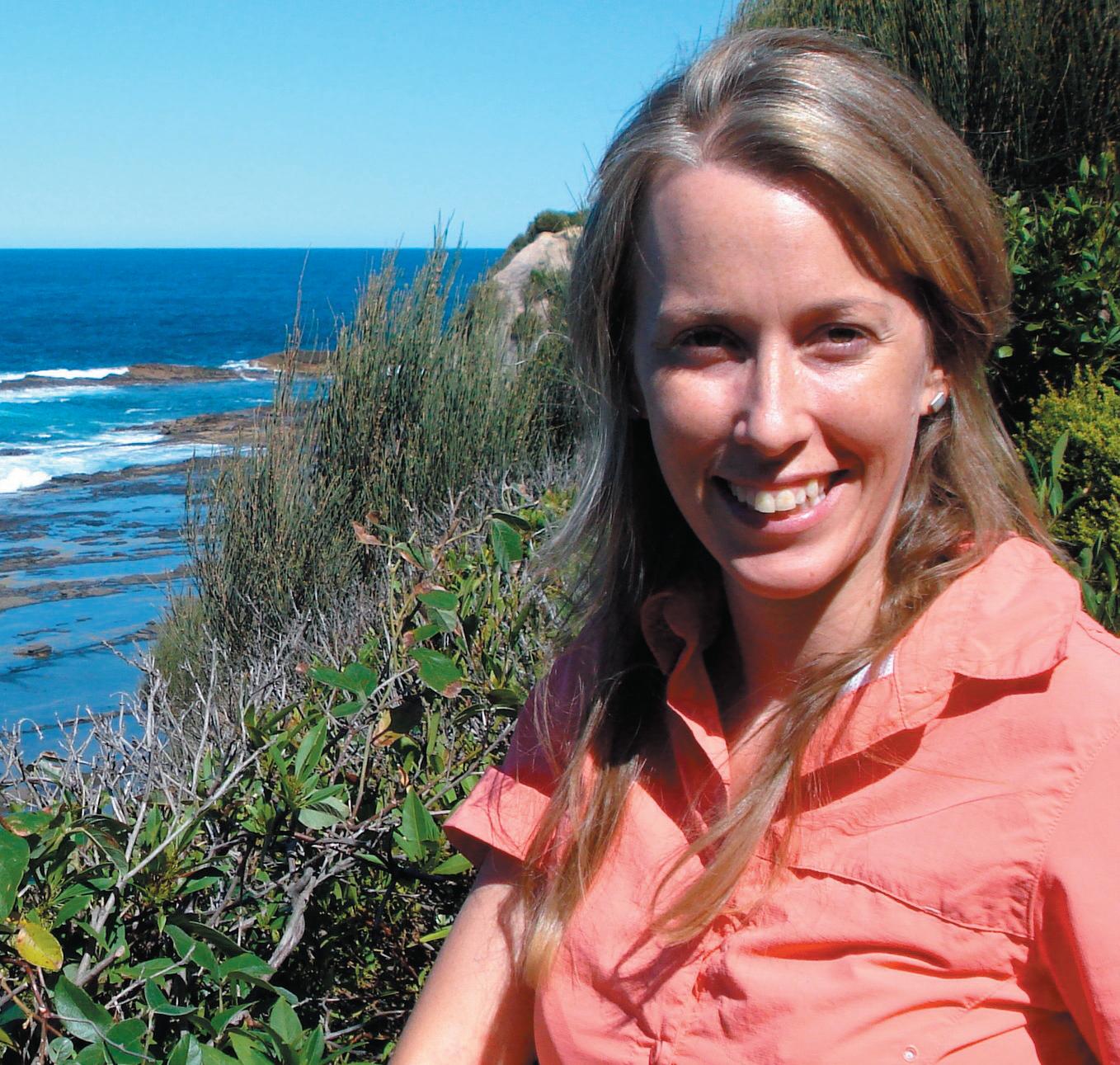
sexual intimacy as a criterion for recognising a domestic partner.”
Seven confirms Christ Files at noon
The Seven network has confirmed that John Dickson’s The Christ Files will be broadcast nationally on Good Friday at 12 noon.
The one-off Australian-made historical TV documentary will run for 60 minutes.
Dr John Dickson, the Director of the Sydney-based Centre for Public Christianity, interviews a number of leading international scripture scholars in the program, which is based on his book of the same title.
The book version of The Christ Files argued strongly that Christians from the earliest times believed Jesus was the Son of God, despite claims to the contrary by recent media productions like The Da Vinci Code.






March 5 2008, The Record Page 7
One super fund is above all others There is one super fund every Australian Catholic should consider joining. Not just for its solid investment perf ormance, low fees and no comm issions paid po licy. Something more i mportant. Trust. That’s because at CSRF we support and uphold the same values as you. Find out how good management and good people can make a great deal of difference to your quality of life in retirement. Visit www.catholicsuper.com.au or call 1300 658 776 today.
the Nation
Perspectives
AIDS in Africa: abstinence works
The WA Health Department recently resumed its television advertising to promote the use of condoms. The following article gives the Minister and the Department good reasons for deeper thought about this subject.
In the fight against AIDS, abstinence-based programs that focus on changing behaviours rather than handing out condoms simply work better, says an AIDS expert. Matthew Hanley has been a HIV/AIDS technical adviser at Catholic Relief Services (CRS) for the last seven years and is the author of the forthcoming book “Avoiding Risk, Affirming Life: Science, Love, and AIDS.”
In this edited interview by Carrie Gress for ZENIT, Hanley comments on the programs and principles that have led to falling rates of HIV prevalence in parts of Africa:
First, actual changes in patterns of sexual behaviour have led to the most significant reductions in HIV prevalence. Take the well-known case of Uganda, where the prevalence rate dropped from 15% in 1991 to a little over 5% in 2001. Behaviour change was so thorough in Uganda that by the mid-1990s, 95% of adults in that country said they had only one partner or none at all. But it is not only Uganda.
involved comes from the Kenyan bishops. In their pastoral letter on AIDS, they hit upon the crux of the matter: The Church proposes the same sexual morality even “when and where AIDS poses no danger”. The central issue with respect to the Church’s consistent teaching on sexual matters is thus not the risk of HIV, but the lack of chastity, and “this is not easy for ‘the world’ to grasp”.
So the Catholic Church, among others, objects to the widespread promotion of condoms, primarily on legitimate moral and ethical grounds, over and above the practical limitations observed to date in practice.
I think it is also fair to point out that even from a practical point of view, the claims made by religious leaders - that the promotion of condom use could lead to a false sense of security and even end up increasing overall risk - have been echoed in the scientific literature; even long-time condom advocates have described this phenomenon as real.
Researchers have noted that in many countries in sub-Saharan Africa, HIV transmission rates have remained high despite a considerable increase in condom use. For example, condom sales in Botswana increased from 1 million in 1993 to 3 million in 2001, while HIV prevalence among pregnant urban women increased from 27% to 45%. In Cameroon, during the same period, condom sales rose from 6 million to 15 million, while HIV prevalence increased from 3% to 9%.
THE RECORD
A study commissioned by UNAIDS concluded, “Prevention campaigns relying primarily on the use of condoms have not been responsible for turning around any generalised epidemic”.
PO Box 75 Leederville, WA 6902 cathrec@iinet.net.au
Tel: (08) 9227 7080
Fax: (08) 9227 7087
The most important factor in recent HIV declines in Kenya, Zimbabwe and Haiti has been an increase in fidelity or “partner reduction”.
This should not be surprising, considering that in a large swath of southern Africa, where over half of new infections globally come from, the AIDS epidemic is being driven by the dynamics of multiple and often concurrent sexual partnerships.
Where this kind of behaviour change has not taken place, HIV incidence has remained high. This is the case in South Africa, which has been a vigorous promoter of condoms, but rather silent about the need for a more profound modification of behaviour, specifically multiple partnerships.
The primacy of behaviour change comes into even sharper relief when we consider that the two other major planks of HIV prevention besides condomstreating other sexually transmitted infections, and the promotion of voluntary counselling and testing - have not been effective in decreasing HIV incidence.
We articulate what the Church actually proposes, abstinence and fidelity, in a positive manner. I have found in my trips to Africa that there is a real thirst for something different, something hopeful. We all know that people yearn for more than the satisfaction of their appetites. In other words, they yearn for love, for respect and for meaning in life. In his first encyclical, “Deus Caritas Est,” Benedict XVI reminded us of long-standing Christian tradition, namely that human beings are a “union of body and soul”, that love is characterised by exclusivity, or fidelity, and that love contains a quality of permanence over time.
When we conducted training recently with five dioceses in Ethiopia, one of the participants, a wife and a mother, spoke for the group by saying how much she appreciated the emphasis on fidelity and related human values such as respect and communication. She was puzzled as to why such basic themes are not more routinely promoted in the context of HIV prevention, adding: “Why hasn’t anyone explained it like this before?”
So we try to address the whole human person, their deeper aspirations, and in proposing love, affirm basic Christian sexual ethics. It is on this level that the Church encounters the wider culture, which as Pope John Paul II suggested in “Familiaris Consortio”, often holds “fundamentally irreconcilable views of the human person and of human sexuality”, leading many to aggressively reject these first principles.
Perhaps one of the most helpful means that I have seen of expressing the moral significance of the issues
I also found one survey conducted in Lesotho to be particularly revealing. It found that about 75 per cent of respondents could identify condoms as a means of preventing HIV, but only about 5 per cent of respondents identified abstinence or faithfulness as a means of avoiding HIV.
The more interesting elements to consider are the underlying assumptions and philosophy behind how prevention measures are prioritised and emphasised. Since the primary approach of condoms, voluntary counselling and testing and treatment of other sexually transmitted infections, has not produced the intended results, in terms of achieving reductions in HIV prevalence, it would be difficult to avoid concluding that these interventions maintain their privileged position not because of empirically observed scientific excellence, but at least in part because of the desire of their proponents to cling to an underlying vision of the human person, freedom and sexuality.
Yet it is the Church that is routinely characterised as being opposed to science, or “dogmatic.” But this charge does not stand up to scrutiny. The reference to dogma, though, calls to mind one of G.K. Chesterton’s observations, “There are two kinds of people: Those who have a dogma and know it, and those who have a dogma and don’t know it.”
In other words, any approach to these issues is inherently charged with meaning. As products of our own time and place, we all naturally bring some sort of vision to the table, some presuppositions about life, relationships, sexuality, the dignity of the human person, family and so many other fundamental topics.
Beyond that, public health is deeply influenced by a kind of utilitarianism, known for its aim to achieve the “greatest happiness for the largest number”. As it applies to HIV prevention policy, the objective becomes seeking to maximise the good of sexual pleasure while minimising the pain of AIDS. But as the very name suggests, utilitarianism allows for the use or the manipulation of one person by another. In Christian thought, to “use” another person is the polar opposite of loving another person.
Public health approaches also borrow heavily from an inflated sense of “human autonomy” within the wider culture. This form of individualism exalts personal freedom as the supreme value. Freedom is thus enthroned above truth, as opposed to being subject to it. It is a concept of freedom that is, rather sadly, unencumbered by human relationships.
These schools of thought, in denying and rejecting objective moral and philosophical truths, advance no internally consistent or coherent rationale for limiting sexual partnerships, and thus tend to yield interventions that would rightly only be considered “secondary” measures of HIV prevention.
In the article “...Sharia Law in UK” Cardinal Murhy-O’Connor of Westminster made some very good points, including: “Of course you can keep the variety of traditions, but when you enter this country there are common values which are part of its heritage, which should be embraced by everybody... There are going to be certain things which might clash in the overall culture ... When people come into this country they have to obey the laws of the land... governments had a right to make sure that those laws are kept. There are aspects of sharia that are practised that we certainly wouldn’t want in this country... multiculturalism had meant a lessening of the kind of unity that a country needs.”
As Anglican Bishop of Sydney South, Robert Forsyth, says in another article in The Record, this integration of Islamic sharia law with the Western legal system leads to “the idea of different systems of law for different people groups”, which he and his diocese do not agree with.
Cardinal Murhy-O’Connor goes on to say “sharia law informs Muslims’ religious, social, domestic, and private lives but is opposed by many non-Muslims because it demands inequalities between men and women and between Muslims and people of other faiths or no faith,” and “is used to justify slavery .. amputations ... stoning ... and the death penalty for apostasy’ (refering to the current Islamic practice in some places of killing Muslims who choose to convert to Christianity).
So, how do these practices in sharia law and jihad show love of God and love of neighbour and add to the quality of our society? They don’t. In fact, they show how incompatible Islam and democracy are. A quick glance around the world will show you how intolerant Islam and Islamic countries are of democracy and Christianity.
I agree with what Cardinal Murhy-O’Connor and Anglican Bishop Robert Forsyth say, and add that Britain, Australia and western societies in general are founded on Christian principles and law, and we do not need the syncretism nor accomodation of divisive Islamic, Muslim, sharia law for “community cohesion and development” in our countries.
L Evans Perth
Letter touched on important theme - and challenge
Among the letters to the Editor this week was one called ‘Heart saddened’, so touching. It was inclusive of all people, because the writer pointed out that we are “all in a different place to find Jesus.”
We read articles about Catholic schools, celebrations and activities of the Church which is encouraging to know that things are happening, but those are mostly in the areas of larger populations, which is nothing new.
The country areas don’t get the same action and influences of the Church and its priests, and no Catholic schools. Even The Record can be ‘not for sale’ due to lack of people.
Therefore, I will agree with Geoff’s letter that it is accepting people where they are at in their spiritual journey, because not eve-
ryone has had access to the same influences of the Church, and as he so ably says, “our greatest weapon is love.” which is a lovely thought and is a challenge.
Joan Darnley
Glenfield, Geraldton
Christians will soon be illegal in parts of Indonesia
Are people aware that there is a province in Indonesia where, in spite of the Indonesian constitution, it is illegal for Christians to meet even privately to worship? First the Communists were banned and massacred (in 1965). Jews, atheists, Mormons and the like are also forbidden, and now Christians, and all in the interests of fundamentalist Islam.
Australians, through their taxes, fund much of what goes on in Indonesia. Should we allow our government to turn a blind eye to this sort of thing?
The district of Muraro sijunjung in West Sumatra, is also trying to bring in Shariah law and is going quite fundamentalist. Unless we protest to our politicans and the media very quickly, we will have a potential terrorist state on our doorstep.
The legislation I have seen says, in effect, that any Christians caught praying together in that area face expulsion from the district.
John Gariano
Nedlands
Page 8 March 5 2008, The Record
editorial letters to the editor Around t he tabl e dnuorA t eh lbat e LETTERS TO THE EDITOR
Sharia law incompatible
The Parish. The Nation. The World.
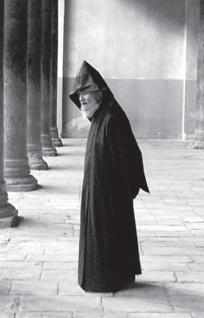
Vista Faith, Reason, and the War against Jihadism G
An insight into George Weigel’s new book - Vista 2-3
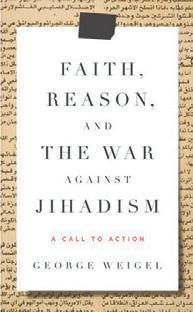

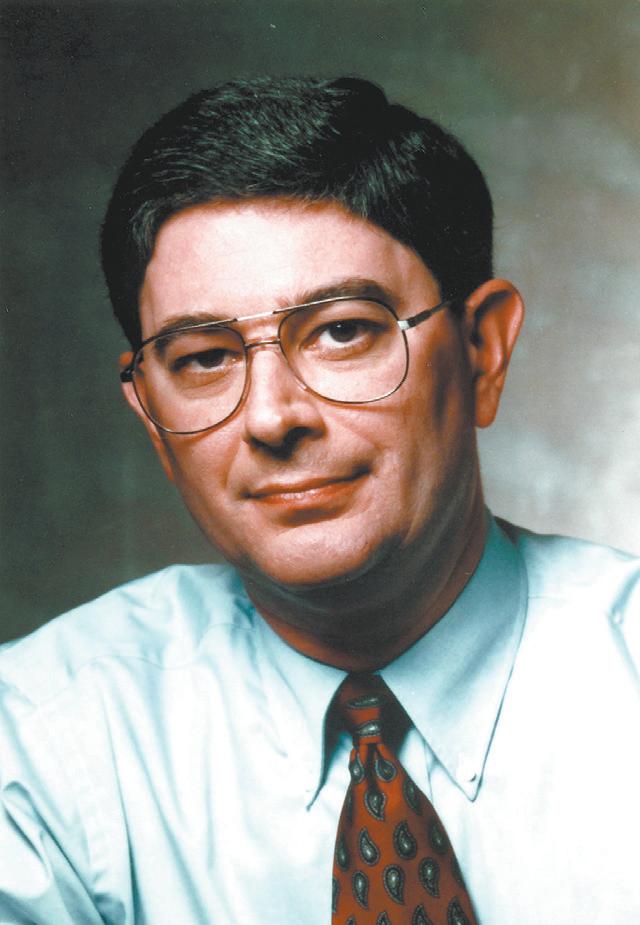
There is much promise in the prospect of inter-religious dialogue between Christians and Muslims, says reknowned Catholic thinker, George Weigel. And surprisingly, he believes the Pope’s 2006 Regensberg address may just be the ticket to forging the path towards mutual understanding.
eorge Weigel, Catholic thinker and biographer of Pope John Paul II, delivered a lecture on Thursday on religion and world politics in which he argued that Pope Benedict XVI has provided a unique model for global understanding between Christianity, Western secularism and Islam.
In the lecture, Weigel also called on Muslim leaders engaged in inter-religious dialogue to acknowledge and vigorously condemn the specific abuses of human rights and religious freedom found among some Muslim nations.
During the lecture at the University of Colorado at Boulder, sponsored by the Aquinas Institute for Catholic Thought, Weigel said that Pope Benedict XVI was uniquely suited to addressing world conflicts grounded in religious differences.
Weigel believes that the Pope, especially in his 2006 Regensberg lecture, provides a “grammar” to world leaders that could help them understand and reform both the relativism of the secular West and the violence of Islamic extremism. At his 2006 lecture at the University of Regensberg, the Pope said that religious violence and compulsion are rooted in the idea that God is pure will instead of a rational, loving being. He said that Christianity’s belief in a loving, reasonable God has helped Christians reconcile themselves to Enlightenment values of religious freedom and human rights, while aspects of Islamic theology have hindered such reform among Muslims.
Weigel countered the media portrayal of the speech as a “gaffe” for its perceived insult of Mohammed. Far from being a gaffe, he argued,
the Regensberg address was an important reflection that considered questions important to world policy today. These questions included: “Can Islam be self-critical? Can its leaders condemn and marginalise its extremists, or are Muslims condemned to be held hostage to the passions of those who consider the murder of innocents to be pleasing to God? Can the West recover its commitment to reason, and thus help support Islamic reform?”
Weigel argued that no one other than Pope Benedict could have framed the discussion in such a way. “No president, prime minister, king, queen, or secretary general could put these questions in play at this level of sophistication before a world audience,” Weigel said.
Pope Benedict’s lecture has given the world political community “a grammar for addressing these questions, a genuinely transcultural grammar of rationality and irrationality.”
“Far from being an exercise in theological abstraction, the Regensberg lecture was a courageous attempt to create a new public grammar capable of disciplining and directing the world discussion of what is arguably the world’s greatest problem,” Weigel continued.
Weigel also criticised some of the reactions to the Regensberg lecture. Though acknowledging that Muslim critiques of the West are often “not without merit,” Weigel argued that the October 2007 letter from the 138 Muslim leaders “sidestepped” the questions raised by the Pope’s lecture. Muslim scholars addressed the letter, titled “A Common Word Between Us and You,” to global Christian leaders in pursuit of inter-religious dialogue. Many observers considered the letter an important breakthrough. Weigel said the letter had spoken at length about the “Two Great Commandments” to love God and to love one’s neighbour as oneself. However, Weigel claimed, the letter said nothing applicable to relevant issues of “faith, freedom, and the governance of society,” such as death threats against Muslims who convert to Christianity or the prohibition of Christian worship in Saudi Arabia. He challenged the Muslim leaders to be more specific in future dialogue: “Do these 138 Muslim leaders agree or disagree that religious freedom and the dis-
tinction between spiritual and political authority are the issues at the heart of the tension between Islam and the West, indeed between Islam and ‘the rest,’ and even more within Islam itself. Would it not be more useful to concentrate on these urgent issues of classical reason, which bear on the organisation of 21st century society, than to frame the dialogue in terms of a generic exploration of the Two Great Commandments, which risk leading to an exchange of banalities? “Why not get down to cases?” Weigel asked. He further asserted that authentic dialogue requires a “precise focus” and a commitment to “condemn by name the members of their communities who murder in the Name of God.”
Weigel also criticised the “secularization thesis,” which claims that countries become less religious as time advances. He argued that in fact the secularisation of the West was the exception, rather than the rule.
The secularisation thesis, he said, has clouded the analysis of Western thinkers and politicians who cannot understand the religious basis of many world movements, including Islamic extremism. The centuries-long Catholic encounter with the positive Enlightenment values of religious freedom and human rights, Weigel thought, could be a model for ChristianMuslim dialogue. While not compromising with what Weigel called the “chaff” of Enlightenment scientific atheism, past Catholic mistakes and successes could help Muslims navigate reforms of their own religion.
Weigel cited Pope Benedict’s 2006 Christmas address as evidence the Pope approved of a similar strategy. In that speech the Pope said:
“In a dialogue to be intensified with Islam, we must bear in mind the fact that the Muslim world today is finding itself faced with an urgent task. This task is very similar to the one that has been imposed upon Christians since the Enlightenment, and through which the Second Vatican Council, as the fruit of long and difficult research, found real solutions for the Catholic Church.” Weigel’s lecture drew its content from his recent book, “Faith, Reason, and the War Against Jihadism: A Call to Action.”
March 5 2008
A cut above: Catholic thinker and biographer, George Weigel.
The implications of mixed messages, with Mark Reidy - page 12
“The changes for women have been negative. There is an increasing message that women should be able to do and have everything. I don’t know how they expect women to do all this and also to be fulfilled women who are created by God in the image and likeness of God and who should be much more conscious of their own dignity.
The feminine Church
Global conference addresses challenges of women.
Catholics reflect on Pope John Paul II’s document on ‘feminine genius.’
■ By Teresa Tomeo
“He who accepts the challenge of going deep into this document will discover its richness.”
This quote by former Cardinal Joseph Ratzinger - now Pope Benedict XVI - came after the release of Mulieris Dignitatem (“On the Dignity and Vocation of Women”), Pope John Paul II’s 1988 apostolic letter on women in society and the Church. The words were also used in the opening remarks for an international conference marking the 20th anniversary of the document’s release.
“Woman and Man: the ‘Humanum’ in Its Entirety,” presented on February 7-9 in Rome by the Pontifical Council for the Laity, involved 250 participants from 49 countries involved in Catholic women’s associations, religious institutes and episcopal conferences.
Key messages
Over the three days, participants studied and applied the document to a number of challenging issues facing today’s Catholic women: the balance between family life and work; difficulties faced by Catholic women trying to live in the secular world; a woman’s inner beauty and call to holiness; and women’s progress over the past 20 years since the document’s release. A key portion of the presentations and panel discussions also focused on life issues impacting women and society, especially abortion and reproductive technology.
In addition, participants heard from Catholic theologians, researchers and biblical experts regarding anthropological truths of women and men, a key issue detailed in Mulieris Dignitatem.
Genevieve Kineke, US author of “The Authentic Catholic Woman,” was grateful for the opportunity to share ideas and concerns with Catholics from a variety of cultures. “This conference provided a tremendous
George Weigel’s newest book focuses on theological roots of Islamic terrorism, gives possible solutions.
The internal struggle within Islam over how it interacts with the modern world has spilled out onto the world stage over the last few years with sometimes disastrous consequences.
In the midst of this upheaval, George Weigel is offering his thoughts on the roots of this “intra-Islamic civil war” as well as some policy suggestions in his new book “Faith, Reason, and the War Against Jihadism”.
CNA had an opportunity to talk with Weigel about his book and discuss the current
opportunity to collaborate with women from around the world - women who have reflected at length on the words of John Paul II,” she said.
War against women
Church leaders and other presenters helped delegates understand what Catholics are facing in today’s increasingly secular culture. This includes 53 million abortions a year globally and other devastating results of the sexual revolution and radical feminism, such as high divorce rate, birth control, cohabitation, the exploitation of women through pornography and the entertainment industry, and the idea that men and women must compete instead of complement each other.
Cardinal Stanislaw Rylko, the president of the Pontifical Council for the Laity, described the current state of affairs as a culture war.
“Radical feminists claim a woman’s identity comes through being man’s enemy, canceling out any differences and physical identities,” he said. “This has led to a culture war and a war being waged against women.”
He stressed to the congress that a necessary first step to combat the culture is the call for Pope John Paul’s “new feminism” that highlights the true feminine genius “overcoming all forms of discrimination, exploitation and violence.”
Helen Alvare, a Catholic University of America law professor and former pro-life spokeswoman with the US Conference of Catholic Bishops, told participants that many women have given in to the pressures from society that focuses far too much on money, power and, especially, unbridled sex:
“Feminism says unbridled sexuality is another sign of freedom. The ‘freedom’ characterised by a rejection of the truth drew upon the worst characteristics of bad male behaviour.”
Complementary roles
Pope Benedict told the delegates during a private audience to stay close to Christ in order to foster and support true promotion of both women and men.
“When, therefore, men or women pretend to be autonomous or totally self-sufficient, they risk being closed up in a self-realisation that considers the overcoming of every natural, social or religious bond as a conquest of freedom, but which in fact reduces them to an oppressive solitude.”
Cardinal Rylko encouraged participants
dialogue with Islam.
Q. Why did you write Faith, Reason, and the War Against Jihadism?
A. In a sense the book began with my reflections on Pope Benedict XVI’s Regensburg Lecture, which identified two serious and linked problems with global impact: faith detached from reason (as in jihadist terrorism, which is based on the irrational notion that God commands the killing of innocents), and a loss-of-faith in reason (which leaves the western world incapable of defending its commitments to religious freedom, tolerance, and civility in the face of the jihadist challenge).
I was also struck by the fact that, more than half a decade after 9/11, Americans still couldn’t “name” the enemy in this new kind of war in which we found ourselves - and still wouldn’t face the theological roots of Islamist terrorism. So I decided to do something about all of this, adding a number of policy prescriptions that I hope will draw bipartisan support.
to build upon what they learned and take it to the streets, their parishes, their families and associations.
“Only in this way will a new culture and fabric be born,” he said. “We should go back home after this conference knowing that we have been sent and that Christ is counting on each of us.”
Global Perspective
During the international conference marking the 20th anniversary of Mulieris Dignitatem, Our Sunday Visitor asked women who attended from throughout the world what issues women in their countries face, how women’s roles have changed since Mulieris Dignitatem’s release and how the Church and their faith help them deal with these issues. Here are some responses:
Sister Marta Tobisch, 40, Bishops Conference of Hungary
“Our country has had many historical changes over the past 18 years. We are less protected, and liberalism is flowing in, bringing with it new ways of life for women that are not always good or positive. We are seeing more divorce and broken families.”
“The Church has been a great foundation for me, and I was glad to see so many women coming here in support of the Church teachings, not trying to challenge or disagree with them.”
“We have good efforts at the parish level such as support for divorced women, plus World Wide Marriage Encounter is growing in our country and the movement is helping.”
Maribel Gomez, 39, World Cursillo Movement, Los Angeles
“I think women are too much focused on themselves. We need to focus more on our children, not just our biological children but on children and families in general.”
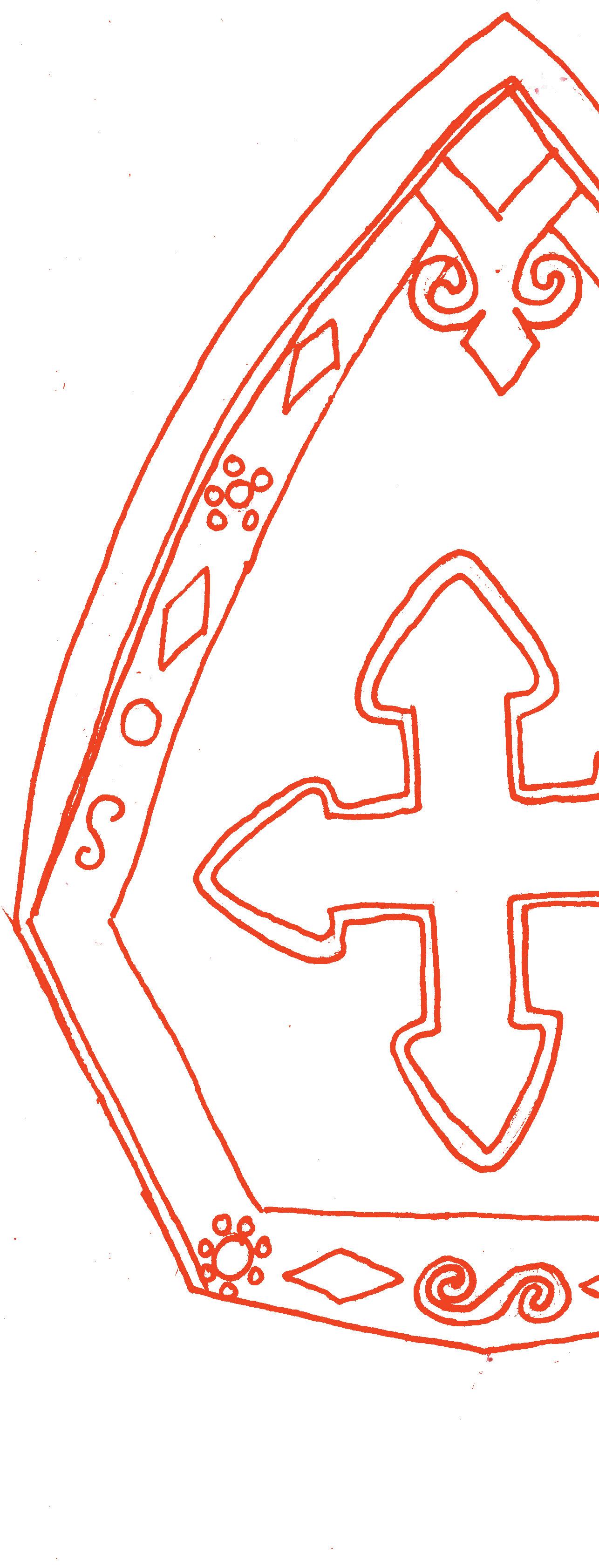
“The Church helps me because it makes me realise that we are all part of the family of God. Also, the foundational truths/teachings of the Church are very comforting to me.”
Nuala Scarisbrick, 69, Life House Ministries, Great Britain
“There hasn’t been a lot of talk about men here, but, in our country, men and young men are not taught to respect themselves and one another or relationships . . . and we are increasingly taking up the whole issue
Q. Can you summarise the main points in your argument?
A. 1. The great questions of life, including the great political questions, are ultimately theological.
2. The notion of “three Abrahamic faiths” obscures more than it illuminates.
3. Jihadism, while a lethal distortion of Islam, nonetheless appeals to certain tendencies in Islamic self-understanding that can only be successfully overcome by a re-connection in the Muslim mind between faith and moral reason.
4. Genuine interreligious dialogue, acknowledging the theological and anthropological differences between Islam and Christianity, will focus on the development of an Islamic case for religious freedom and the separation of religious and political authority.
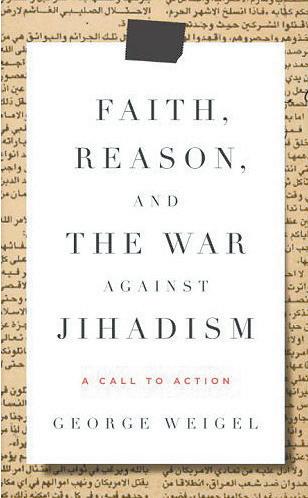
5. The struggle against jihadism, which may last for generations, is one of the two great contests for the human future in the 21st century (the other being the management of biotechnology).
Q. Your book paints a rather stark picture of the challenge of jihadism. Is there any good news to report?
A. There’s no sense in fooling ourselves about the gravity of this threat. At the same time, we should understand that fighting the war against jihadism successfully - and this is fundamentally a war of ideas - can be an occasion of national renewal. Making compelling arguments in favour of the free society will reconnect us with the great ideas on which our liberties rest. Putting faith and reason into conversation will strengthen the unity of our diverse society. Defending religious freedom, and supporting those Muslim reformers who seek
Vista 2 March 5 2008, The Record
of relationships and what people want from relationships.”
Drawing: Sylvia Defendi
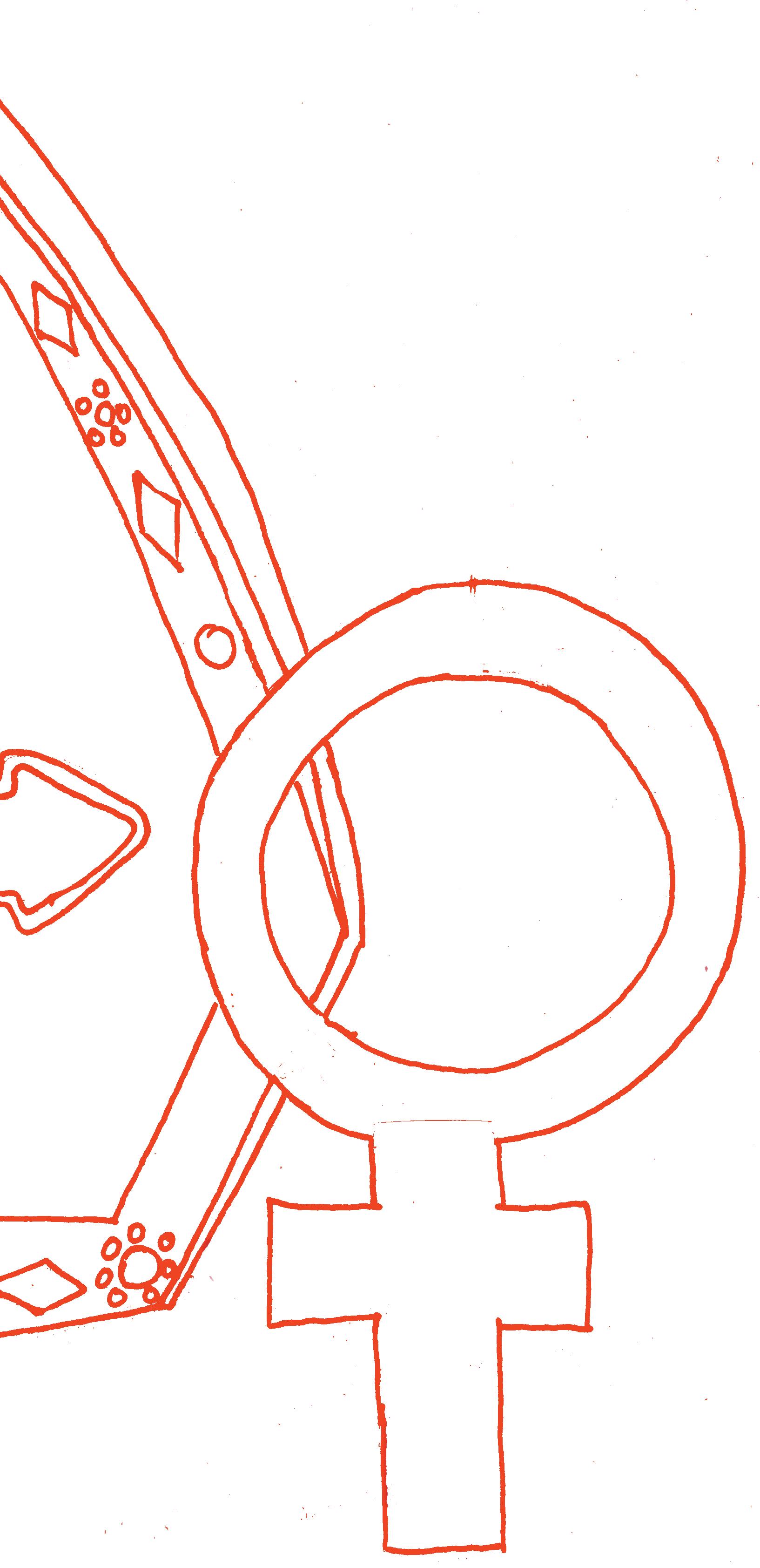
“The changes for women have been negative. There is an increasing message that women should be able to do and have everything. I don’t know how they expect women to do all this and also to be fulfilled women who are created by God in the image and likeness of God and who should be much more conscious of their own dignity.”
“The Church helps me a lot. I am what
to make an Islamic case for tolerance and pluralism, reminds us that American civil society is built on truths about the dignity of human life. Energy policies that defund jihadism by reducing our reliance on petroleum as a transportation fuel can ignite entrepreneurial energies, revitalise the American auto industry, and help the environment. Rational homeland security policies can make us safer and less beholden to political correctness.
Q. What do you make of the recent “Letter of 138,” entitled “A Common Word Between Us and You,” addressed by Muslim leaders to Pope Benedict XVI and other Christian leaders?
A. I hope it creates the occasion for a deepened conversation between Catholicism and Islam, but I’m also afraid that the “138” are trying to change the subject - a tactic in which they’re being aided by some craven Christians.
The Pope has made very clear that the Church is interested primarily in talking about two things: religious freedom, and the
they call a devout Catholic, and our bishops have been very brave about speaking out about so-called same-sex marriages and the rights of Catholic schools to teach the faith, and to teach about the dignity of being male and female.”
Maria Jessica Agama
Sanchez, 40, Marian Community of Reconciliation, Peru
“We have started understanding more of our real dignity and identity, and not to be men but to be women. Being real women ... to give
separation of political and religious authority in the state. As the Pope said in his Christmas address to the Curia in December 2006, these are achievements of the Enlightenment that the Catholic Church worked hard to assimilate, finally doing so at Vatican II.
Unless Muslims can find Islamic warrants for religious freedom and the civil society, aggressive Islamists and jihadists will remain a danger to the world and to their fellow Muslims. That means talking about the things the Pope put on the agenda, not drifting off into platitudes.
In my book, I discuss at some length a process of “retrieval and development: by which ancient religious traditions can “grow” their understanding of their roles in modern society. That’s what the Catholic Church did from Leo XIII through to John Paul II. And that’s what the Islamic world must do today: for its sake, and everyone else’s.
George Weigel is a Distinguished Senior Fellow of the Ethics and Public Policy Centre in Washington, DC.
A man ahead of his time
■ By Teresa Tomeo
Pope John Paul II, in his apostolic letter on women, offered keen insights into our culture
Earlier this month, I had the blessing and honour to be chosen as one of more than 250 women from around the world to attend an international summit marking the 20th anniversary of Pope John Paul II’s profound apostolic letter Mulieris Dignitatem (“On the Vocation and Dignity of Women”).
It was a jam-packed three-day event in Rome filled with dynamic presentations from Church leaders, Bible scholars, theologians and experts in the fields of politics and health care.
It was a unique opportunity to delve into the teachings of the Church, with an emphasis on the keen insight of the late pope. One of the presenters, Cardinal Antonio Canizares, the archbishop of Toledo, Spain, told participants that Pope John Paul II carried Mulieris Dignitatem with him since his childhood.
It was a result of his love and respect for his own mother and other women in Poland who were confronted with many hardships. The apostolic letter also shows how aware the Pope was of the culture war that was raging against the Church and the true dignity of women.
Topics such as gender neutralisation, the masculinisation of women, abortion and the exploitation of women through pornography and the entertainment media certainly could be taken right from today’s headlines but Pope John Paul was writing about them 20 years ago.
Then and now, the culture was telling women that they had the right to do whatever they wanted, whenever they wanted and with whomever they wanted. Sex, power and money were all there for the taking and should have no limits, even if
our gifts and our talents to society and that’s what we need to do.”
“Domestic violence is very bad; difficulties to find jobs for women and sexual liberation is very bad. But we are trying to teach the people and women that we need to fight against this.”
“Pope John Paul II’s ‘Letter to Women’ and the letters Pope Benedict wrote when he was Cardinal Ratzinger about the relationship of women and men in the world - those documents are very interesting, and this conference of 250 women and men talking about important issues is a good thing.”
Suzene Chikaunda, 52, Bishops’ Conference of Malawi
“The main issues in my country are illiteracy, poverty and sexually transmitted diseases. At the end of the day, sometimes you don’t have women who want to come to church because they are tired and hungry
reaching for that brass ring meant sacrificing marriage and family.
Pope John Paul had a keen insight as to what was happening to women and what would continue to happen if the culture continued on its destructive course.
“Women must not appropriate to themselves male characteristics contrary to their own feminine ‘originality.’ There is a wellfounded fear that if they take this path, women will not ‘reach fulfillment’ but instead will deform and lose what constitutes their essential richness” (Mulieris Dignitatem, No. 10).
I went to college in the late 1970s and, unfortunately, bought into a lot of the lies being sold to women through radical feminism, including the lie that Jesus was an oppressor of women and the Catholic Church was where most of the oppression occurred.
I think that’s why one of my favourite parts of the document is section five, which focuses on Jesus and women in the Gospels. I relate to so many of them, including the woman at the well, and the woman who washed Jesus’ feet with her tears. Pope John Paul tugged at my heart in describing Jesus as a true liberator of women.
“It is universally admitted - even by people with a critical attitude toward the Christian message - that in the eyes of his contemporaries Christ became a promoter of women’s true dignity and of the vocation corresponding to this dignity.
“At times this caused wonder, surprise, often to the point of scandal: ‘They marveled that he was talking with a woman’ (Jn 4:27) because this behaviour differed from that of his contemporaries” (No. 13).
Pope John Paul’s apostolic letter is cause for plenty of prayer, reflection and pondering, especially during Lent.
I hope that, after reading Mulieris Dignitatem, you too will come away as I did with a renewed love for Jesus and the Gospel message along with a deeper appreciation for this amazing vicar of Christ, Pope John Paul II.
and don’t have food to put on the table.
“I don’t see our situation improving or our roles changing. But Church in my country does try to teach women on what they have to do to prevent AIDS. The government talks about contraception, but the Church is teaching women to be faithful. The Church is also in a small way trying to teach women how to better run their families.”
Understanding Mulieris Dignitatem
In Mulieris Dignitatem (“On the Dignity and Vocation of Women”), Pope John Paul II looks at Jesus’ interactions with women in the Gospels, showing that “in the eyes of his contemporaries Christ became a promoter of women’s true dignity.” Other themes include the exploitation of women, marriage, motherhood, distinct feminine gifts and why women cannot be ordained to the priesthood.
Teresa Tomeo writes from Michigan.
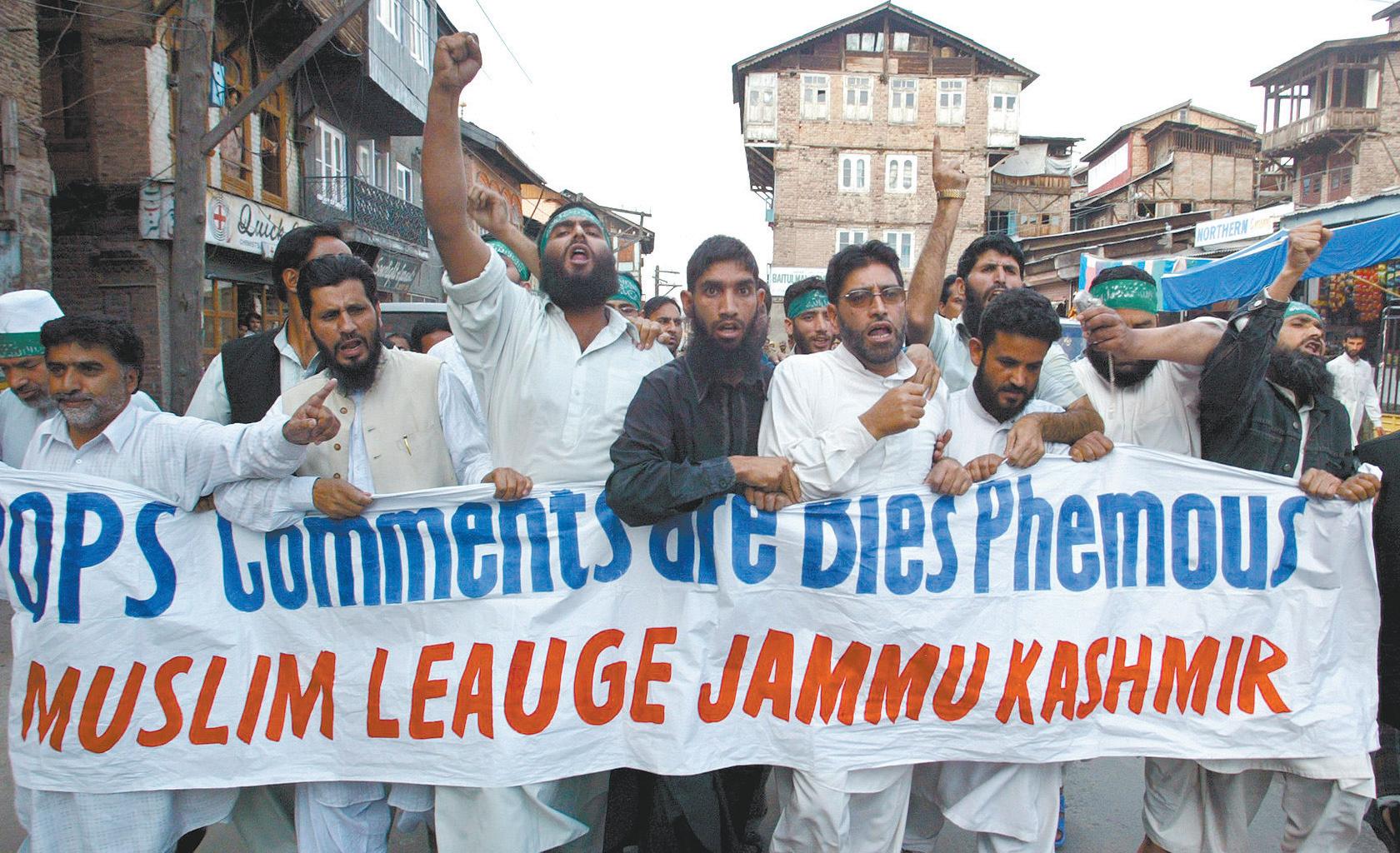
March 5 2008, The Record Vista 3
PHOTO:
KABLI
Protest: Kashmiri activists from the Muslim League carry a banner during a protest against Pope Benedict XVI in Srinagar, capital of the Indian state of Jammu and Kashmir.
CNS/FAYAZ
A life of faith
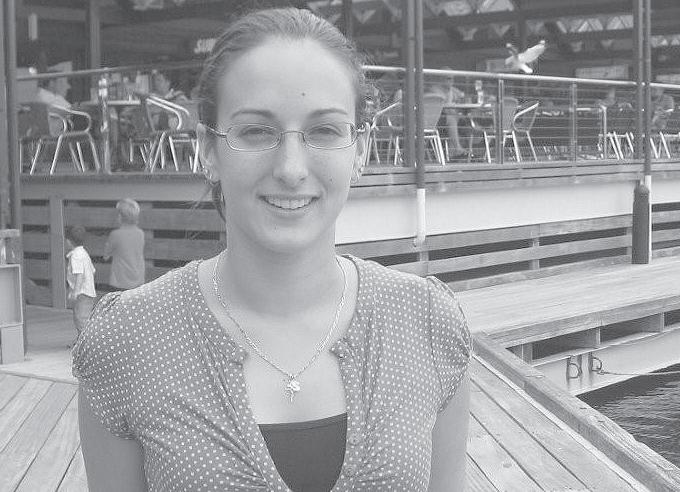 Sarah Ackland
Sarah Ackland
Mum has taken me to church ever since I can remember. I admire my grandmother. She goes to church every morning. I hope I do that when I’m retired. Obviously primary school and high school influenced me as well.
How I Pray Now
At primary school the teachers take you through communion, reconciliation and confirmation. In Year 11 I was not going to Mass as often as I used to. Then my teachers asked for Eucharistic Ministers. It was something I always wanted to do when I was younger. I decided to join and after that I went to the morning Masses at school every day.



 with Debbie Warrier
with Debbie Warrier
In Year 12 I went on a retreat with the other students at Sacred Heart College. The retreat helped us get to know ourselves, others and be closer to God.
My faith is special to me. You have your own connection with God and Jesus. It’s like having a friend that you can tell everything to. I guess I’d be lost without it. I wouldn’t have any direction. I don’t know how anyone could get through life without some kind of faith. If I didn’t have my faith I’d probably have more time to get ready for going out on Saturday nights! I probably wouldn’t have the same values and morals though.
At my parish, All Saints in Greenwood, I go to the World Youth Day meetings. There are some youth that don’t have any direction so the challenge is for us to get those people back. I know since high school a lot of my friends aren’t practising their faith as much as they used to. Everyone goes out Saturday night. There’s no time for church. Then they sleep in Sunday morning because they’ve been out late the night before. But no matter what, I’ll be there.
Religion gets put down. Some people might be made fun of because of their faith. You have to respect other people’s beliefs. Obviously I pray at church. That’s usually on the weekends. I pray at home at night. I reflect on my day. If it’s been a good day I thank God. If it hasn’t been so good then I pray for tomorrow to be a better day.
I am 20 and an accounting student at Edith Cowan University, Joondalup. I’m half way through my second year and it’s a three year course. There’s a chaplain on campus I might have to check out. I’ve got a blessed medal of St Christopher in my car so I don’t feel the need to pray for safety driving there. I pray before exams. I study for them as well but pray to be calm and relaxed. I know it’s weird but it has helped.
Mario Borg is the World Youth Day organiser at my parish. Our World Youth Day group meets every Saturday for two hours. You can talk about anything that you want to talk about. It’s not always talking. We do activities that are really enjoyable! I remember my first meeting I was so nervous! I didn’t know who would be there. There are about 21 people in our group and we are all kind of close now. We all want to keep the meetings going on after World Youth Day. It’s not scary and it’s not too late to join!
Perspectives
Dreaming dreams and
Perth-based Scalabrinian Tony Paganoni CS writes a series of reflections on the significance of cathedrals in the life of a church and the wider community.
From one point of view, it is difficult to be optimistic about prospects for the Church and the Churches. Over the last two decades, time and time again, statistics have been telling us that the decline is on and irreversibly so. It is also a matter of observation.
We see around us continuing decline in mainline denominations, widespread cultural apathy towards institutions in general, and churches in particular. And a spiritually bereft but demanding young generation.
And yet, even as some secular commentators admit, in many places the Church is one of the few remaining communities on which the health of society depends.
With all its flaws, it can still inspire and

Spirit in Stone of
Cathedrals and communities
Anthony Paganoni CS
mobilise people as can no other organisation. The Church holds in its frail hands the treasure of the Gospel – that story of God’s transforming power. This gives us all hope.
But this hope must embrace a broadening of vision and imagination. Somehow it must involve taking the Gospel deeper into our singing, our walking and our working, into that inmost part of ourselves where our ambitions lie.
This implies that Catholics must discover a renewed vision for the visual arts, because the gifts of vision and imagination are part of the Christian’s birthright.
We need to recover our visual imagination. There are many angles to our present situation. One of the most pressing factors
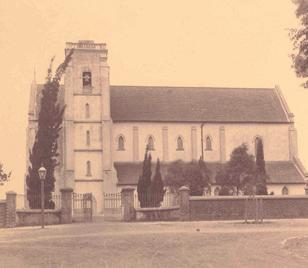
is the ever-changing cultural situation in which we are living.
Culture has made a definitive turn towards the visual, and with the rise of new media, the visual image has come to occupy pride of place in our daily lives. Someone has calculated that a Puritan in early America listened to an average of five thousand sermons in their lifetime. An Australian growing up today will watch at least seven thousand TV programs. Whereas the world and the Word was mediated to our ancestors through the preached word, it all comes to us in images.
True, images can weaken or obliterate critical thinking and analysis, as the critics argue. But there is also evidence that the images can stimulate a new visual literacy
The paradox of living in Gen Y
I say I say
By Mark Reidy






Mention the word mortification today and most people are mortified. It is a concept most often associated with ancient self-inflicted rituals such as flagellation, hairshirts and wooden beds and is considered by many to be both primitive and futile.
Modern attitudes to such practices were typified in the writings of Dan Brown who associated these behaviours with a crazed, murderous monk in The DaVinci Code.
The portrayal suggested that these choices were not ones made by sane individuals and were, in fact, contrary to the intellectual evolution that has led us to today’s unprecedented comforts and conveniences.
During a recent visit to Melbourne I was led to ponder these radically diverse ways of thinking, that is, the voluntary pursuit of discomfort versus the voluntary pursuit of pleasure.
It was at the time of “Coreymania”, when a 16-year-old Melbournian had hosted a party that spiralled out of control and led to the intervention of riot police and a $20,000 bill for the taxpayer. Corey was suddenly thrust into the global spotlight and his apparent lack of remorse generated a media frenzy condemning the virtues, or lack thereof, of Generation Y (born 1980-95).
According to many reports this was the most self-obsessed, materialistic and impulsive generation to have ever set foot on the planet.
The combination of unparalleled access to communication and electronic technology and the lack of recognisable behavioural boundaries had apparently created a generation that sought to satisfy their own desires like no other before them.
However, it seemed that while the media was intent on exposing the faults of Corey and his peers, little time was being dedicated to why these traits may exist in the first place.
Here was a generation reared in a society that tenaciously sought to fulfil their every desire, yet there seemed to be genuine sur-
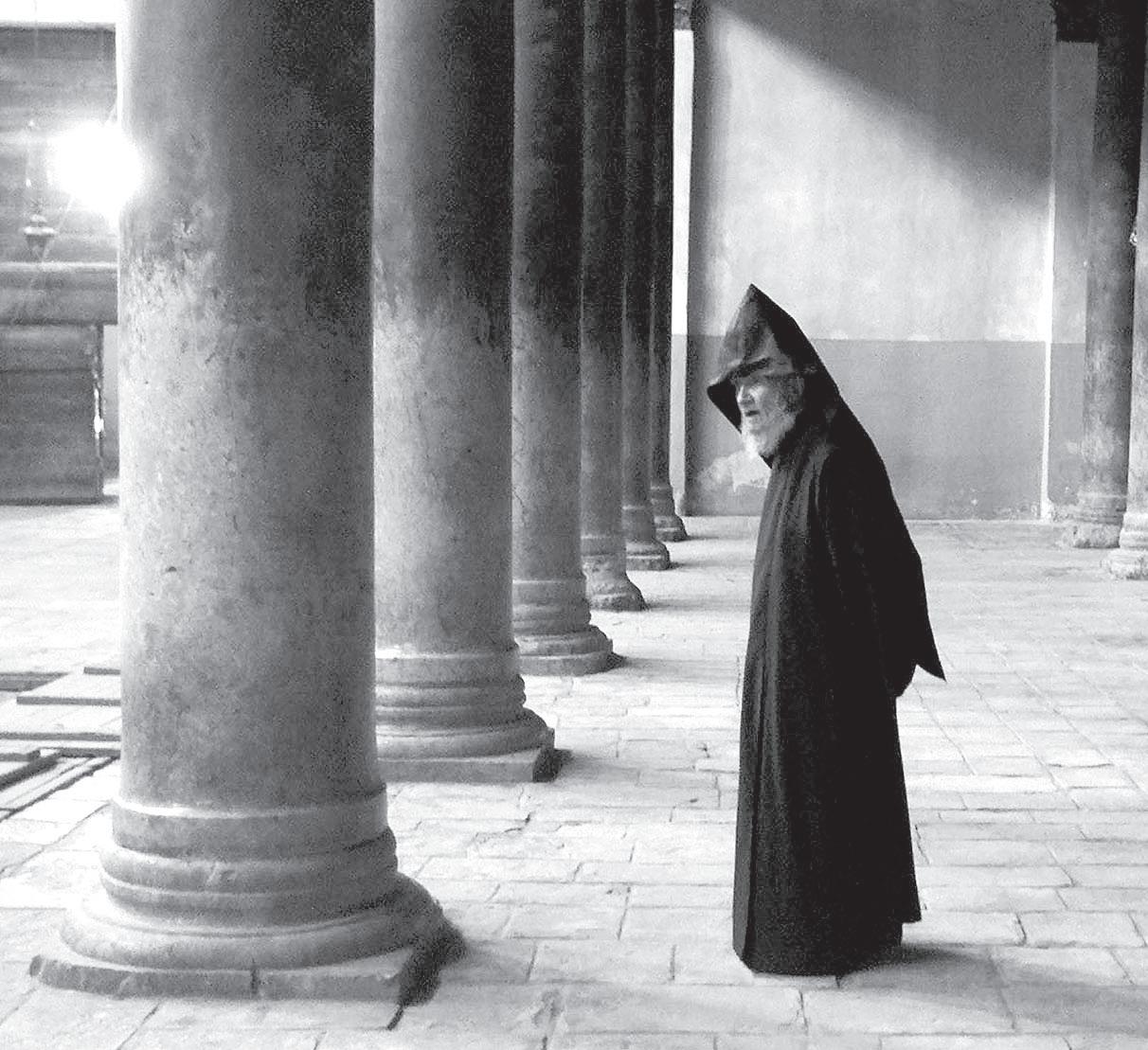
Mortification: A monk, much like that described in Dan Brown’s, The DaVinci Code, has somewhat become a symbol of mortification. But has self denial, a form of mortification, gone out of fashion? And what are the consequences?
prise and anger at the by-product. Consider the predicament of Generation Y. They are confronted daily with media that encourage them to satisfy their sexual urges, with governments even stepping in to provide the necessary information and equipment, but then they are condemned for the increase in unplanned pregnancies and sexual disease.
They are bombarded with the rewards of materialism and then deemed selfish for pursuing them.
They are chastised for not showing more self-control, yet legislation makes it increasingly difficult for parents and teachers to create boundaries through disciplinary measures. They are given access to abortion if they believe that this new life is going to infringe upon them in any way, but then admonished for not respecting the rights of others. And the list goes on.
This is a generation that have become the victims of society’s paradoxical values. We
encourage them to become puppets to their desires but then condemn them when they become prisoners of them.
We have failed to teach that succumbing to every want is more likely to lead them down a path of self-destruction than selffulfilment.
Instead we have fostered our children in an environment of self-obsession and led them away from the wisdom of our Christian ancestors, who knew that true liberation came, not by surrendering to one’s urges, but by overcoming them.
That is not to say that we must whip ourselves into holiness, but it is vital that we understand the fervent passion that inspired these saints.
For it is a passion that was born from Jesus’ own anguished cry to His Father in the Garden of Gethsemane, and one that we all need to embrace; “Not mine, but Thy will be done”.
Vista 4 March 5 2008, The Record
Perspectives seeing visions
and imaginative potential. There is no reason to resist this turn to the visual, no reason to believe the visual is inherently bad. Though all cultural trends, like all people, are flawed, they are also redeemable.
The Christian faith, through most of its history, was conveyed as much or more through buildings and images as through theological texts.
With the restoration and completion of St Mary’s Cathedral, we are somehow embodying the dual factor of spirit and stone into the fabric and rhythms of the city of Perth.
Future generations of Catholics will apprehend this in a different way to us.
But somehow they will be tempted to translate into new forms the spirit which has been handed on to them in today’s new forms. And the Greatest Story ever Told will be told again. Again and again.
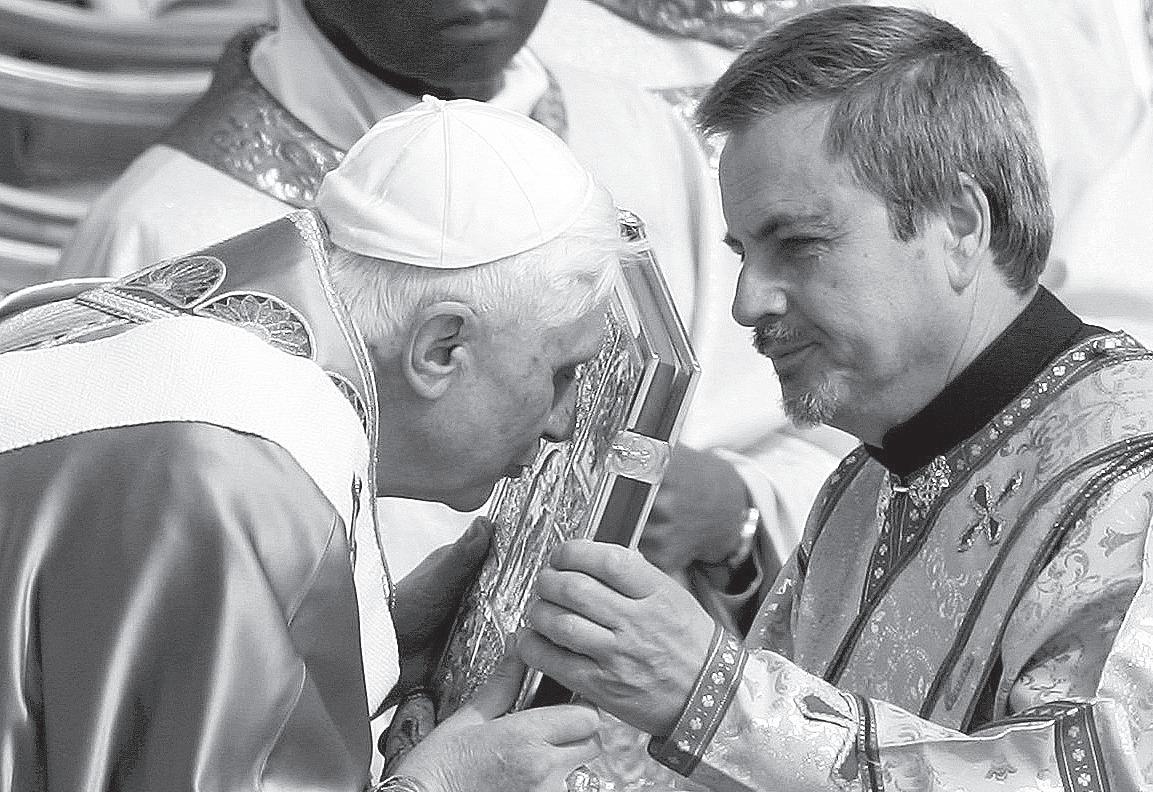
PR person should carry weight in decision making process
Professionalism, straight talk key to good media relations
Many years ago, when I was in charge of media relations for the Catholic bishops’ conference of the United States, a Catholic press columnist who was angry about something or other denounced me as a “hired gun.”
His point, I guess, was that (oh, horrors!) I actually took money for advising bishops on how to deal with journalists.
I thought then, and I still think, that giving public relations counsel to churchmen and getting paid for it is a respectable way to make a living.
Generally speaking, the Church’s media-related disasters over the years haven’t been the result of bad PR advicethey happened because churchmen either didn’t get advice or else didn’t take the advice they got.
Good performance
In those years when I was an advice-giver, a reporter once asked me how I defined good public relations. After a moment’s reflection, I said, “Good public relations is doing the right thing and telling people about it.” The reporter liked that well enough to quote me favourably in the
piece he was writing. Note that the definition has two parts: good performance and good communication. Both are required.
Recently, a young man heading to Rome to study communications (at the Pontifical University of the Holy Cross) told me that he was thinking of doing a dissertation on media relations for the Church and wanted to include some case histories illustrating good practice. Did I have suggestions?
Among the examples he had in mind were the way Church communicators rose to the challenge at the time of the death of Pope John Paul II and the election of Pope Benedict XVI, and the successful efforts undertaken to blunt the potential harm of the movie version of “The Da Vinci Code.” I suggested that he consider adding to the list the media relations programs for the Church-sponsored international World Youth Days of recent years. It should be a worthwhile dissertation.
Shooting straight
From these instances of good media relations for the Church - as well as from instances of disasters - several simple conclusions can be drawn. Let me mention three.
First, find good people to do this kind of work. By good people, I mean people with solid professional experience - pref-
erably, in journalism as well as public relations - plus loyalty to the Church and high ethical standards.
This isn’t an occupation for someone who sees a job in the ecclesiastical bureaucracy either as a sinecure or a chance to push some line of his or her own.
Second, encourage the PR professionals to speak their minds candidly to the guy in charge when problems arise.
In media relations as in other fields, there can easily be a strong temptation to curry favour by telling the boss only what he or she wants to hear. In the long run - and often in the short run, too - the results of doing that usually are deadly. Remember, if you’re going to pay a hired gun, you only get your money’s worth by letting him shoot straight.
Third, if you’ve got a good PR person who gives honest advice, listen to what he or she has to say. That doesn’t mean public relations is in charge. The decision maker still gets to decide.
But at a time when media coverage of the Church is so enormously important, media relations advice should carry at least as much weight in decision making as advice from any other area of expertise. Some of the disasters of recent years might have been mitigated, if not prevented, had that rule been routinely observed. Russell Shaw is a contributing editor to Our Sunday Visitor.
Finding a need and fulfilling a mission
After two self funded pilgrimages to India, Rod Pereira, a former nurse with the Australian Red Cross blood service and founder of Calcutta Stations Mission‚ (CSM) had a life changing experience.
Rod worked as a volunteer with Mother Teresa’s Missionaries of Charity, which introduced him to the startling realisation of the true poverty of the many dying and destitute in Kolkata.
Day after day, Rod would find those who were dying from infections, disease
and starvation. Sadly some days all he could offer was the comfort of holding them in his arms to die.
These haunting images stayed with Rod even when back home in Perth.
Rod knew more was needed to be done but required the financial support of family and friends.
Inspired by Rod’s caring and compassion his close friends formed the Calcutta Stations Mission.
More about Rod’s work and the charity can be found on the website.
Both Joanna Lawson and Rod have seen the great need in India and are doing such wonderful work.
If you require any further information about CSM please e-mail: reception@calcuttastationsmission. com.
Rod may also be contacted by email: rjpereira1961@yahoo.com
Eavesdropping on angst
A regretfully single professional woman counsels compromises. What about ‘true’ love?
To settle or not to settle?
This appears to be the question on every single woman’s lips, according to Lori Gottlieb in the March issue of The Atlantic magazine.
Her essay is a dispassionate weighing of the benefits of marrying a Mr Good Enough instead of Mr Right. The dilemma is whether a woman should stay single while searching for her perfect fit well into her 30s, or settle for that imperfect guy she was probably dating in her 20s.
“Is it better to be alone or to settle?” asks Gottlieb. “My advice is this: Settle!”
Gottlieb seems to be speaking to an army of single women in America who have held out long enough to start having second thoughts. They may be welleducated, with good jobs and career prospects, and they have followed the game plan laid out for them by “The Mary Tyler Moore Show,” “Friends” and “Sex in the City”: Follow your bliss, be picky, andthough, of course, she doesn’t exactly say this - “give the milk away for free” while looking around for the perfect soul mate.
The game plan has some holes in it, starting with the big one: She has a biological deadline. Men - at least a certain kind of man - who follows the same game plan can go on virtually forever, but women who really do want children know that science and the pharmaceutical industry have not found a way to significantly postpone her deadline.
Gottlieb’s solution - which she admits may have taken a bad game plan and made it worse - was to go out and get herself pregnant. She decided to have a child first and then keep looking for Mr Right, not realizing that she now has no time to search for an even rarer quarry: The middle-aged male who will want her and a child not his own.
So, after all this, what is Gottlieb’s hard-won advice for the women following in her footsteps? What makes for a good marriage isn’t necessarily what makes for a good romantic relationship. “Marriage ultimately isn’t about cosmic connection - it’s about how having a teammate, even if he’s not the love of your life, is better than not having one at all.”
And if a woman finds a decent guy who works hard, supports his family and shares at least some responsibilities, “how much does it matter whether the guy you marry is The One?”
For a man, reading this article feels a bit like being an eavesdropper at Girls Night Out, and there is a good reason we aren’t invited to such gatherings: We appear to be a rather sorry lot - blandly dependable, not given to using big words, not that curious about life and occasionally mean to waiters. The horror, the horror.
I came away from Gottlieb’s second thoughts with three thoughts of my own:
First, mothers turned out to be right. Mothers’ quintessential advice to their daughters - usually a blend of practicality and cold-eyed realism - turns out to be pretty dead-on in Gottlieb’s experience. It’s not bad advice for men as well. Finding someone to spend a lifetime with is quite a different experience from finding someone to spend a ski weekend with. Which is perhaps why matchmakers are coming back in fashion.
And with all this talk about settling, there is little discussion about being loving. Marriage is not just about finding the perfect someone, or changing an OK someone into something better. Marriage is a process that involves a tremendous amount of selfgiving and personal change. The truth is, Gottlieb is someone else’s “not quite Miss Right,” and that is part of the human adventure of marriage.
And, finally, reflecting my obvious bias, Gottlieb leaves God out of the equation. There is a third “person” present in every sacramental marriage. God expects us to use our heads and make wise decisions, but his grace for our journey helps us to love him better by growing in love for each other, which is the real purpose of this human comedy.
Greg Erlandson is the publisher and president of Our Sunday Visitor Inc.
March 5 2008, The Record Page 9
Inspirational: Pope Benedict XVI kisses the Book of the Gospels held by Deacon Luigi Fioriti, who chanted the Gospel in Greek during the Pope’s inaugural Mass in St Peter’s Square. PHOTO: CNS.


Indian saint on the brink
Kerala-born Sister Alphonsa will be officially declared a saint by the Roman Catholic Church on October 12, Church sources said in Thiruvananthapuram.
Sister Alphonsa is the first person to be conferred sainthood from the Kerala Church which traces its origins to the visit of St Thomas around 2000 years ago to preach the gospel in India.
The decision to officially declare her a saint was taken by a meeting of cardinals held in Vatican today, Fr Paul Thalekkat, spokesperson of the Syro Malabar Church said.
The declaration said the canonisation would be held in Rome and there would be celebrations and prayers in Kerala also, he said.
Sister Alphonsa was born in a family of straitened means at Kudamaloor in Kottayam district in 1910. She joined the Clarist congregation and led a life of personal trauma and prayer as she suffered from various illness all through her life till 1946 when she died.
After her death, local people attributed some miracles to her. Sister Alphonsa was beatified and made Blessed by Pope John Paul II in 1986. In June 2007, Pope Benedict XVI signed a decree approving the miracles that took place through the intercession of Alphonsa paving the way for canonisation.
Catholic dissident in Cuba nominated for Nobel Prize
Oslo (CNA) - The founder and president of the Christian Liberation Movement, Oswaldo Paya, is among the 197 candidates nominated for the 2008 Nobel Peace Prize.
According to Nobel officials, those nominated include 164 individuals and 33 organisations. It’s the second largest number of candidates in the history of the Prize. The largest number was in 2005, with 199 candidates.
The five member committee met on Tuesday last week to begin whittling down the number of candidates after nominations ended in February. The Nobel Peace Prize includes $1.73 million, which can be shared by up to three winners, who will be announced on October 10.
Oswaldo Jose Paya Sardinas was born in Havana, Cuba, on February 29, 1952, and is one of the most well-known democratic activists in the country. He organised the Varela Project, which was an effort based on Cuba’s constitution to collect enough signatures to present a referendum for political change to the legislature.
According to Paya, these changes, if they had been accepted by the government and approved by popular vote, would have introduced freedom of association, freedom of expression, freedom of the press, free elections, freedom of business and amnesty for political prisoners.
Pope to renew Oz
Vatican City (CNA) - Various bishops from the Oceania region say that the faithful in their churches are looking to Pope Benedict XVI’s visit for World Youth Day as “an event of special grace”. “The entire continent is being mobilised - both in the more socially advanced areas and in less developed regions - to prepare” for World Youth Day 2008, which is due to be held in Sydney, Australia, in July. Various economic initiatives have been organised to help young people from the poorest areas of the continent to participate in the event. “Interest is growing in the visit of Pope Benedict XVI, as an event of special grace.”
the World
Seismic change afoot
China considers aborting one-child policy
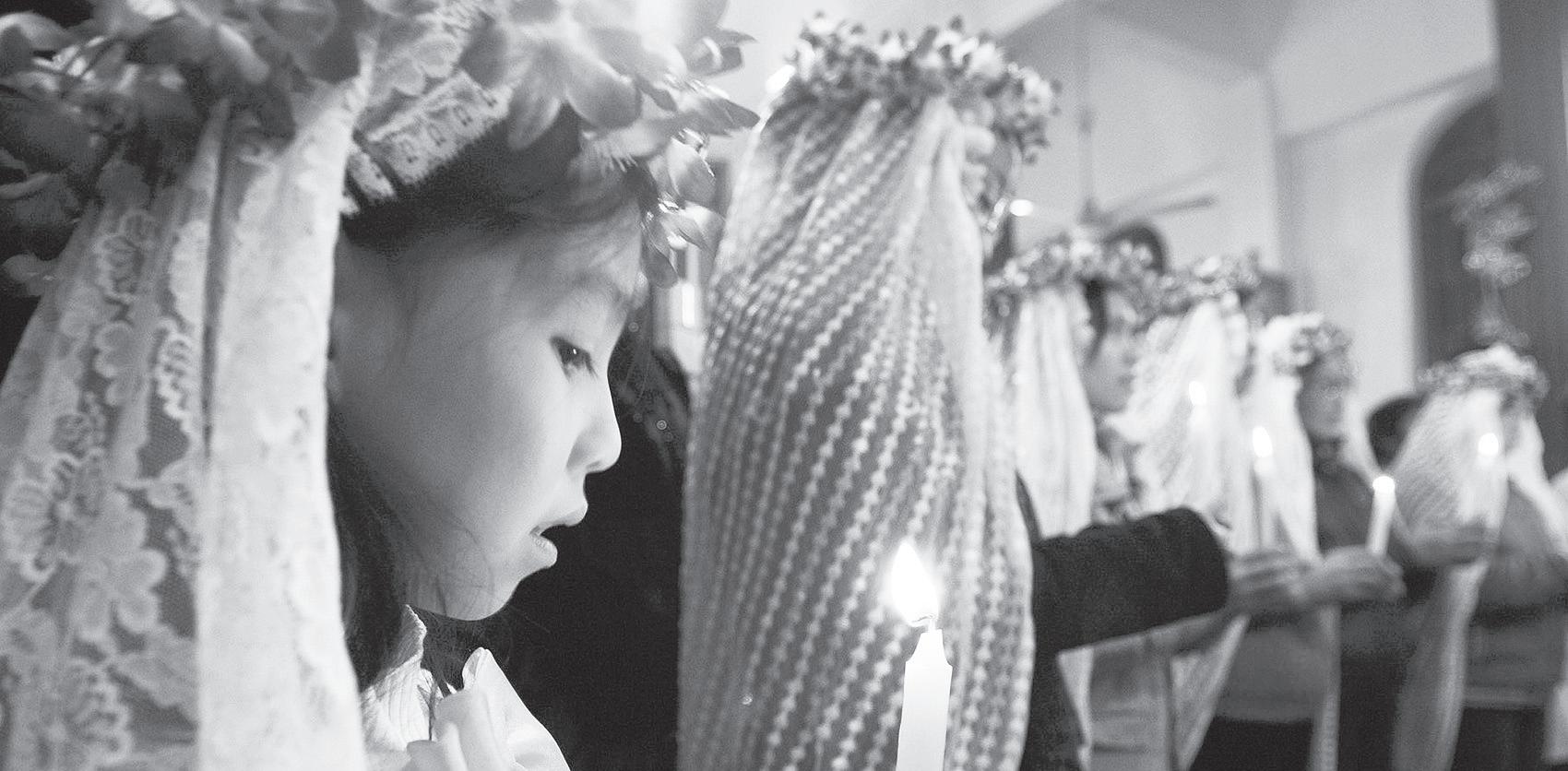
Beijing (CNA) - China is considering the elimination of its controversial one-child policy in response to an aging population and a gender imbalance created by sex-selective abortion, Reuters reports.
The present policy usually limits families to one child, or two children if they live in the countryside.
“We want incrementally to have this change,” Vice Minister of the National Population and Family Planning Commission Zhao Baige told reporters in a Beijing talk about possible changes to the policy.
“I cannot answer at what time or how, but this has become a big issue among decision makers,” Zhao added. “The attitude is to do the studies, to consider it responsibly and to set it up systematically.”
China is the world’s most populous country. Its average fertility rate has dropped from 5.8 children per woman in the 1970s to 1.8 children per woman today, below the replacement rate of 2.1.
The Chinese government says its policies have prevented several hundred million births. However, experts have warned that its ageing population could cause severe social
problems as the elderly come to outnumber the working population. The policy has also caused gender disparity from the selective abortion of girls, as male children are preferred for traditional and economic reasons.
The gender ratio in China is still close to 120 boys for every 100 girls
Increased mobility of the nation’s about 150 million migrant workers has weakened enforcement of the one-child policy. Wealthy citizens are also willing to pay the fines imposed by the policy when they have more children, though officials have pledged to increase fines on wealthy lawbreakers.
Enforcement of the policy has at times been draconian. According to human rights groups and the US government, family planning officials have sometimes used forced abortion, coercive sterilisation, and other abuses to ensure compliance with the policy.
Reggie Littlejohn, an American attorney who advises the Brussels-based non-governmental organisation, Human Rights Without Frontiers, spoke with Cybercast News Service on Thursday, voicing her skepticism about the announcement.
“Right now, the one-child policy is often
implemented by forced abortion and forced sterilisation,” she said. “Even if some couples in the future are allowed to have more than one child under the new policy, will the government still enforce that higher birth limit through coerced abortion and sterilisation?”
“The timing of this announcement is no accident,” she said, noting the announcement’s proximity to the Beijing Olympic Games and recent concerns about China’s involvement in Darfur.
“For me, the real question is not, ‘Will the Chinese government abolish the one-child policy,’” Littlejohn said. “The real question is, ‘Will the Chinese government abolish its coercive birth-control practices?”
The Bush administration withholds funding from the United Nations Population Fund because of its association with Chinese population control programs. According to Cybercast News Service, US law prohibits funding for any agency that “supports or participates in the management of a program of coercive abortion or involuntary sterilisation.”
China’s population could grow to 1.5 billion by 2033.
Guard against activism with mysticism
Vatican City (CNA) - The Salesians of Don Bosco are gathering in Rome this week for their 26th general chapter meeting. To mark the beginning of the chapter, Pope Benedict wrote a letter to the order encouraging them to continue to seek out a spiritual life rooted in “profound mysticism and a solid asceticism” instead of activism.
In his Message, dated March 1, he writes that the theme chosen for this general chapter - “Da mihi animas, cetera tolle” (Give me souls, take away all else) - expresses “that same program of spiritual and apostolic life which Don Bosco made his own”. He also brings up a point that he has been making to religious orders lately, that of drawing inspiration from their founders and returning to the charisms of their founding. “It is vitally important for the Salesians to draw continual inspiration from Don Bosco, to know him, study him, love him, imitate him, invoke him and make their own that apostolic passion which flows from the heart of Christ,” the Pope wrote.
Another trend that the Pontiff has been warning religious orders about is the temptation to abandon the quest for holiness in favour of a religious activism of sorts.
In his letter, the Holy Father writes that the theme that the Salesians will study this week “expresses in synthesis the mysticism and asceticism of Salesians” and “is necessary to overcome the dispersive effects of activism and to cultivate the unity of spiritual life by acquiring a profound mysticism and a solid asceticism.”
“This nourishes apostolic commitment and is a guarantee of effectiveness in pastoral activity. It is in this that each Salesian’s path to sanctity must consist, and on this that the formation of new vocations
to Salesian consecrated life must concentrate”. The Pope points out that “evangelisation must be the principal and priority frontier” in the Salesian mission. “In pluri-religious settings and in secularised ones, it is necessary to find new ways to make the figure of Jesus known, especially to the young, so they may become aware of His perennial attraction”.
“It is important to help young people to turn their interior resources to account as dynamism and positive desire; to bring them into contact with ideas rich in humanity and evangelical values; to encourage them to become active members of society through work and participation in the common good”.
Benedict XVI also takes the opportunity to thank the congregation “for the research and educational activities of the Pontifical Salesian University”.
Going on to refer to the “educational emergency” that exists in many parts of the world, he writes: “The Church needs the contribution of scholars to study the methodology of educational and formative processes, the evangelisation of the young and their moral education, together finding answers to the challenges of post-modernity and inter-culturality, and of social communications, while at the same time seeking to come to the help of families.”
At the end of the Message, the Pontiff recalled that 2015 will mark the bicentenary of the birth of Don Bosco, and expresses the hope that the anniversary may stimulate Salesians “to be ever more ‘credible signs of God’s love for the young’, and to ensure that the young truly do become the hope of the Church and society”.
Page 10 March 5 2008, The Record
Salvation is near: A girl holds a candle while praying during a Christmas Mass at a Catholic church in Hangzhou, China, on December 24, 2007. PHOTO: CNS


Trial of “Doctor Death” begins in Germany
Hanover - (CNA) - Last Thursday the trial began in Germany of Dr Mechthild Bach, accused of killing eight terminallyill patients with overdoses of morphine between 2001 and 2003 in a clinic in Langenhagen in Hanover.
According to prosecutors, Dr Bach intentionally caused the death of the patients whose ages were between 52 and 96. Despite claims by the lawyers of the 58 year-old doctor that “in everything she did or did not do she was firmly convinced that her actions were given consent by the patients,” active euthanasia remains illegal in Germany and is punishable by law.
The widow of one of the victims said in a letter that her husband was very ill and in much pain, and she asked the doctor to do everything in her power to keep him from suffering. However, these testimonies and other similar ones were deemed inadmissible by the court.
Although Dr Bach claims she only accompanied terminally-ill patients in the past, the trial will also attempt to define the complicated issues of “accompaniment of terminally-ill patients” and “manipulation of death,” as well as to highlight the differences between passive and active euthanasia.
Plan for international moratorium on abortion set for Madrid
Madrid (CNA) - On March 3 at the University of San Pablo in Madrid, the director of the Italian daily Il Folglio, Guliano Ferrara, will unveil a plan to achieve an international moratorium on abortion, similar to the moratorium on the death penalty reached at the United Nations at the beginning of the year.
Ferrara’s initiative calls on governments to “scrupulously respect” human rights, beginning with the inviolable right to life. He proposes that the article in the Universal Declaration of Human Rights that affirms the right to life of every person be amended to include that that right should be respected “from conception to natural death.” The moratorium calls on “representatives of governments to express their opinion in support of a significant amendment of the text of the Declaration.” A number of renowned scholars and leaders from around the world have voiced their support for Ferrara’s initiative.
First Catholic Church in Arabic country to be dedicated to Mary
Doha (CNA) - The first Catholic Church in an Arab Muslim emirate will be dedicated to the Blessed Virgin Mary, during a ceremony that will be celebrated by Cardinal Ivan Dias, Prefect of the Congregation for the Evangelisation of Peoples. On March 14, Cardinal Dias will officiate at the ceremony in Doha, the capital of Qatar.
The Apostolic Vicar of Arabia, Archbishop Paul Hinder, will join the cardinal for the dedication of the new church. The church was built on land donated by Emir Amir Hamad bin Khalifa Al Thani, who in recent years has become a supporter of inter-religious dialogue, despite keeping Islamic law in place which forbids Muslims to convert to other religions. Qatar, which has 800,000 inhabitants, established diplomatic relations with the Holy See in 2003.
Pope’s edict to aid agencies
Pope says Catholic aid agencies must give workers spiritual formation
VATICAN CITY (CNS) - Catholic aid agencies must offer their workers continual spiritual formation so those in need can witness God’s merciful love, Pope Benedict XVI said.
While professional training and technical expertise are important, a “formation of the heart” is indispensable for those who work for church-based charities, he told members of the Pontifical Council Cor Unum in a February 29 audience.
The kind of help the Church offers humanity “must never be reduced to mere philanthropy, but must be a tangible expression of evangelical love,” he said.
Cor Unum, the Vatican agency that promotes and coordinates Catholic charitable giving, held its plenary assembly in Rome and focused on the theme of “Human and Spiritual Qualities of People Who Work in the Church’s Charitable Organisations.”
At the papal audience, the council’s president, Cardinal Paul Cordes, thanked the Pope for his 2005 encyclical, “Deus Caritas Est” (“God Is Love”), which he said “represents a milestone for Catholic charitable organisations.”
Dedicating oneself to helping others “is a unique occasion for human and also spiritual growth,” the cardinal said.
The Pope said he wanted to dedicate the first encyclical of his pontificate to the theme of charity, which he said is “valuable for the Church.”
It is through its charitable activity that the Church concretely makes itself present to all those who suffer or find themselves in difficulty, he said. “Charitable activity occupies a central position in the evangelising mission of the Church,” Pope Benedict said. “We must not forget that works of charity represent a key opportunity for meeting people who do not yet know Christ or who have only partial knowledge of him,” he said.
That is why Church-based charities should be concerned with their workers’ “human, professional and theological-spiritual formation,” he said.
“Those who work in the Church’s many forms of charitable activity cannot then content themselves with just offering technical help or solving practical problems and difficulties,” the Pope said.
When people are suffering or in pain, they need to be met with
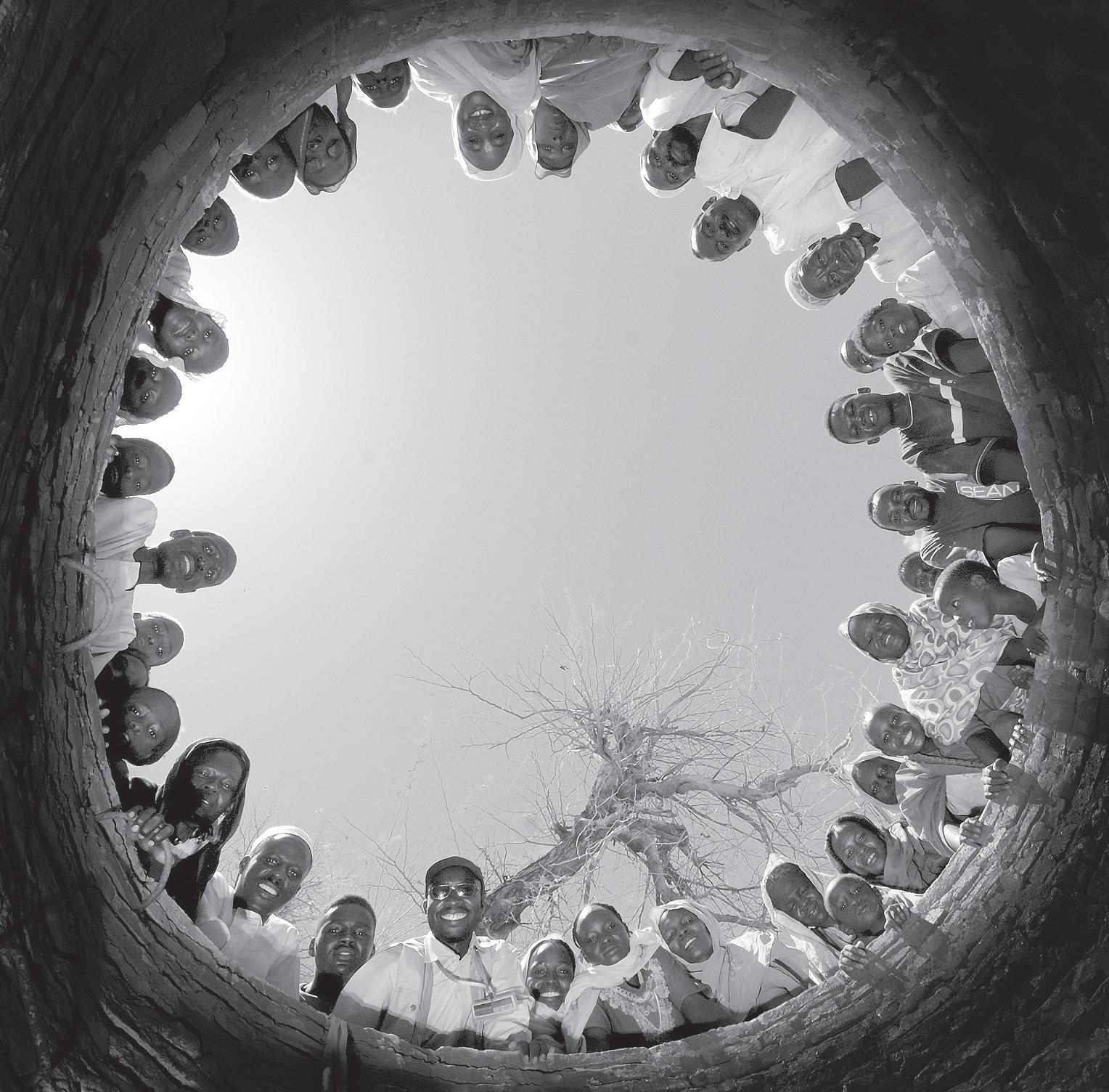
a loving, merciful approach, he said. Close spiritual formation helps workers take on the “same feelings of merciful love that God has for every human being,” he said.
The Pope said he was pleased that Cor Unum was holding a spiritual retreat in Guadalajara, Mexico, in June for the heads of Catholic charities in the Americas.
“This will serve to fully recover the human and Christian dimension” of their work, he said, adding that he hoped other regions would hold similar retreats in the future.
Padre Pio “well preserved”
SAN GIOVANNI ROTONDO, Italy (CNA)
- In the most discrete manner possible, the body of St Padre Pio was exhumed at 12.30am local time on Monday morning by a group of medical experts, while Church representatives observed.
Padre Pio was buried on September 27, 1968 at the San Giovanni Rotondo shrine four days after he died.
“The body is well preserved” said Bishop Domenico D’Ambrosio of San Giovanni Rotondo-Manfredonia-Vieste, who observed the removal of the saint’s remains.
“From the very beginning (of the exhumation) you could clearly see his beard,” Bishop D’Ambrosio recalled.
“The upper part of his skull is visible, but his chin is perfect and the rest of the body is well preserved.
“You can clearly see his knees, his hands, his mittens and his fingernails.”
The Italian bishop commented on the state of Padre Pio’s body by saying, “If Fr Pio allows me to say, it is as if he was manicured.”
The Bishop also said that besides the upper skull, which shows some signs of the process of mummification, the rest of his remains are in surprisingly good condition, including his joints - which are all attached, and his feet.
D’Ambrosio confirmed that neither his feet nor hands showed any trace of the stigmata, since “as we know, they disappeared at the moment of his death.”
Archbishop Domenico D’Ambrosio, papal delegate for the shrine in San Giovanni Rotondo, announced on January 6 that he and the Capuchin friars of Padre Pio’s community had decided it was important to verify the condition of the saint’s body and find a way to ensure its preservation.
“It is my personal conviction and that of the confreres of St Pio that we have an obligation to give the generations that will come after us
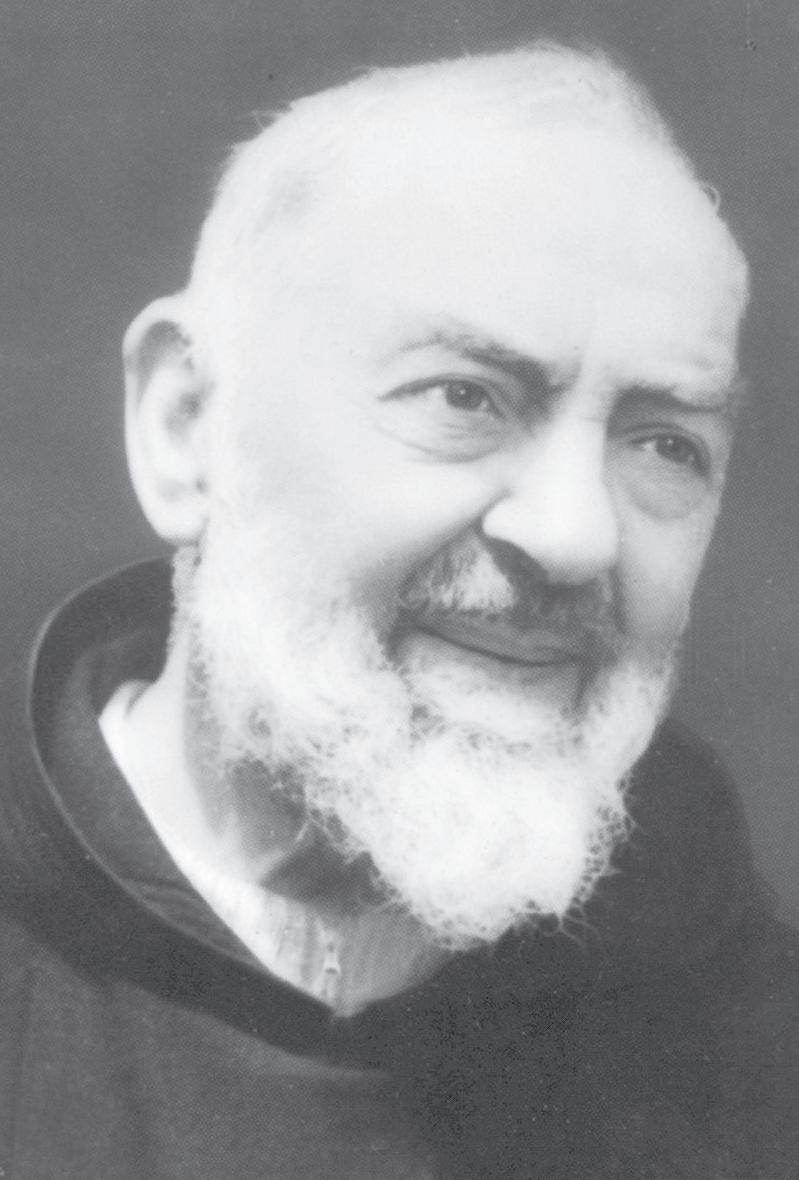
the possibility of venerating and preserving in the best possible way the mortal remains of St Pio,” Archbishop D’Ambrosio said.
“A further motive for rejoicing,” he said, stems from the fact that the Capuchins, with Vatican approval, “have authorised the exposition and public veneration of the saint’s body for several months beginning in midApril.
In addition to marking the 40th anniversary of Padre Pio’s death, the public veneration of his remains also will coincide with the 90th anniversary of the day on which he was believed to have received the stigmata, bloody wounds recalling the crucifixion wounds of Jesus.
According to the Capuchins, Padre Pio received the stigmata on September 20, 1918.
Immediately after Archbishop D’Ambrosio announced the exhumation of Padre Pio’s body, Italian newspapers and television stations began reporting that members of his family were opposed to the move and were threatening to sue the archbishop and the Capuchins.
But a spokesman for the family denied the rumors and Archbishop D’Ambrosio told Avvenire, the Italian Catholic daily newspaper, that he had been in contact with the family and they raised no objections.
Padre Pio was born Francesco Forgione May 25, 1887, in Pietrelcina, Italy.
As a Capuchin, he was a famed confessor and preacher and had a widespread reputation as one whose prayers were effective in procuring miraculous cures. Pope John Paul II beatified him in 1999 and canonised him in 2002.
Almost 40 years after his death, the body of St Padre Pio shows uneven signs of decay, but can be treated in a way that will make it possible to place the body on display for the veneration of the faithful, the local archbishop said.
In a statement released on March 3, the Archbishop said the exhumation and subsequent procedures would guarantee the “prolonged preservation of the body of our saint to allow generations to come the possibility of venerating and safeguarding his relics.”
Padre Pio’s remains have been moved to a room set up in the adjacent Capuchin convent where he lived for many years.
Technicians will use chemicals to prepare the body for long-term preservation.
The body will be placed in a new glass coffin and is scheduled to be in place for public viewing beginning on April 24.
-Additional reporting by CNS
March 5 2008, The Record Page 11
the World
St Padre Pio
They need more than physical aid: Residents of the Khamsadegaig camp outside Zalingei, Sudan, look down a well built with help from the Darfur Emergency Response Operation, a joint aid effort of Caritas Internationalis and Action by Churches. Pope Benedict XVI has told aid agencies to offer their workers spiritual formation.
PHOTO: CNS
French official defends move to canonise murderer
■
By Jonathan Luxmoore
OXFORD, England (CNS) - A French church official has defended moves to canonise a convicted murderer amid criticism from the media.
“The tabloid press has objected that beatifying a murderer would be an insult to society. It’s a good illustration of how far the Church has traveled from the social mainstream that it’s no longer afraid of going against this,” said Jean Duchesne, president of the Paris diocesan commission reviewing the life of Jacques Fesch half a century after he was guillotined for shooting a policeman in a bungled robbery.
“What matters isn’t public opinion, or who might be against it, but
the fruits Fesch’s example might eventually bear,” he told Catholic News Service in late February.
“But there’ve been no formal objections,” added Duchesne.
“Everything now depends on the popular cult that’s slowly but spontaneously developing around Fesch, as well as on attributing miracles to him and identifying the lessons his story teaches.”
Fesch’s sainthood cause was launched in the Archdiocese of Paris under a 1987 decree by the late Cardinal Jean-Marie Lustiger. Duchesne said his commission was close to completing its documentation, including more than 1,000 letters by Fesch, and said the Paris archdiocesan postulator, Father Henri Moreau, hoped to forward the case to the Vatican’s Congregation for Saints’ Causes in 2009.
“Of course, it would be unprecedented to beatify an executed murderer - the only comparison would be the man crucified alongside Jesus Christ,” said Duchesne.
“But Fesch considered his own execution a gift from God, a blessing by divine providence.
“The message is that God still cares for someone who’s been legally sentenced to death and executed. No one is so abandoned and rejected as to be beyond God’s love.”
Born into a wealthy banking family, Fesch was expelled from school for laziness and misconduct. In 1954 he tried to rob a currency dealer, and he eventually was executed for killing a police officer who was pursuing him afterward.
He recorded his spiritual journey in a journal which was preserved by his wife, whom he married in
Iraqis call for global spiritual aid from Christian brothers and sisters

Continued from page 1 guards when the kidnappers attacked. “The bishop is in the hands of terrorists,” Bishop Qas told AsiaNews on February 29.
“But we don’t know what physical condition (the archbishop is in); the three men who were with him in the car, including his driver, were killed,” he explained.
The kidnappers reportedly have communicated their demands, which were not made public.
Chaldean Catholic Archbishop Louis Sako of Kirkuk, Iraq, told Vatican Radio on March 2 violence

against Christians “destroys the trust and brotherhood” between Iraqis.
But he said numerous Muslim leaders have made appeals and are working for the archbishop’s release.
Archbishop Sako said the archbishop was abducted by “a criminal group, it is not a group that claims an ideology,” which suggests the kidnappers may only be looking to receive ransom money for the prelate’s return.
Archbishop Sako said the Pope’s appeal resonates throughout all of Iraq “because when he speaks it is balanced,” which is noticed and appreciated by Muslim leaders there.

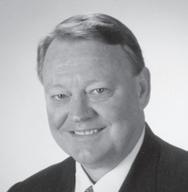
After praying the Angelus, the Pope said it was with “deep sadness I follow the dramatic news” of the archbishop’s abduction.
He said he was adding his voice to the appeal of the Chaldean patriarch, Cardinal Emmanuel-Karim Delly of Baghdad, to quickly release
a Catholic ceremony a few days before being beheaded at the age of 27 in La Sante Prison in 1957.
Writings by the killer, who described his prison conversion as “a violent wind that passes without anyone knowing from where it came,” later formed the basis for three regularly reprinted best-sellers Light Over the Scaffold, Cell 18, and In Five Hours I shall See Jesus Fesch, who made his Confession and received Communion before his execution, was said by the prison’s Dominican chaplain to have shown no bitterness and “died a great Christian.”
Duchesne said the writings of Fesch, whose tomb receives flowers and prayer requests, regularly were studied by church groups, while prison chaplains had also helped develop his cult. According to
Wikipedia, at first Fesch was indifferent to his plight and mocked his lawyer’s Catholic faith.
However, after a year in prison, he experienced a profound mystical conversion, became very pious, and bitterly regretted his crime.
He corresponded regularly with his family, notably his brother and stepmother, and kept a spiritual journal. He accepted his punishment serenely and was reconciled to his wife the night before his execution. His last journal entry was “In five hours, I will see Jesus!”.
After his death his wife and daughter honoured his memory as an example of redemption. He was rejected by the public, but Soeur Véronique, a Carmelite nun, published his writings, which became bestsellers noted for their inspirational messages.
Lay Marists begin their journey to lead
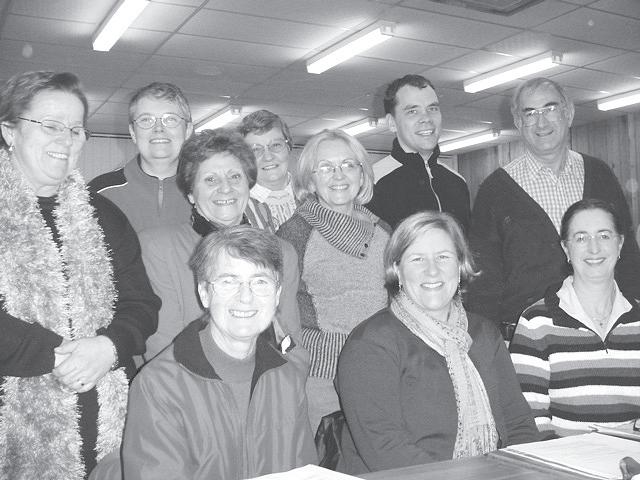
A lay conference promoting ways of “being Mary in the world” will take place in Sydney in April.
■ By Paul Gray
the 65-year-old archbishop who is in a “precarious condition of health” and reportedly must take medications daily.
The Pope said his prayers were with the “three young men who were with him at the moment of the kidnapping and were killed.”
He said his thoughts and prayers were also with “the entire Church in Iraq and in particular the Chaldean church, struck a harsh blow once more.” Pope Benedict also encouraged “the priests and faithful to be strong and firm in hope.”
A Vatican statement released on February 29 said the archbishop’s abduction and the killing of his aides was a “despicable act.”
“The Holy Father asks the universal Church to join in his fervent prayer that reason and humanity will prevail in the perpetrators of the attack,” it said.
The Vatican said the fact that the archbishop was abducted immediately after leading a Way of the Cross service indicated that the attack was premeditated.
The incident comes less than a year after a Chaldean Catholic priest and three subdeacons were gunned down outside the same Mosul church.
Contributing to this story was John Thavis in Rome
The first-ever national Marist laity conference represents a new outreach for the Marist “family,” usually thought of as consisting of Marist priests, brothers, nuns and missionary sisters.
The co-ordinator of the laity conference, Maria Baden, says that it is with the strong encouragement of the other branches of the Marist family that a lay movement is now building up a head of steam. “They have prepared us for leadership,” Mrs Baden told The Record. “The Marist sisters, brothers and priests have all said it is time for the laity to get their voice. We want to be seen as grown-ups. We are no longer the ‘little kids’ of the Marist family. We’ve come into our own.”
Mrs Baden described the charism of the Marist laity as revolving around the figure of Mary.
“The person of Mary is central to our spirituality. It is not so much pious and devotional, but about Mary the living woman, the first disciple. She is central to our lives as a way of coming to Christ.” Mrs Baden said the concepts of simplicity, flexibility and inclusiveness are key ideas in the
Marist lay vision of spirituality. Titled Do Whatever He Tells You, the conference from April 18-20 will bring together lay people and religious from Western Australia, Victoria, Queensland, New Zealand, Fiji, the Philippines, the USA and, it is hoped, Samoa.
Workshops have been organised around the themes of Marian iconography, presented by Marian iconographer Michael Galovic, “Mary’s role in ChristianMuslim Relations,” presented by Marist missionary sister Pauline Rae, and other themes including Aborigines, youth and the environment.
Mrs Baden says Marist influence is extremely far-reaching. “It’s amazing how many people have come into contact with the Marist family somewhere at some point in their lives.”
Mrs Baden says the development of Marist laity is in keeping with the ideas of Marist founder St Marcellin Champagnat in the 1800s. She also believes the Marist lay concept is slightly different from such movements as the lay “third orders” of Franciscans or Dominicans.
“He thought of the Marists with the image of a tree, having many branches. He believed it was through the lay branch that the world would be brought to God, through Mary.”
Registration forms for the first Marist Laity Conference April 18-20 at the Chevalier Resource Centre in Sydney are available online at www.maristlaityaustralia.com or by writing to PO Box 1681 Castle Hill NSW 1765.
Page 12 March 5 2007, The Record 200 St. George’s Terrace, Perth WA 6000 Tel: 9322 2914 Fax: 9322 2915 Michael Deering 9322 2914 A division of Interworld Travel Pty Ltd ABN 21 061 625 027 Lic. No 9TA 796 michael@flightworld.com.au www.flightworld.com.au • CRUISING • FLIGHTS • TOURS • FW OO2 12/07 Thinking of that HOLIDAY ? • Flights • Cruises • Harvest Pilgrimages • Holiday Tours • Car Hire • Travel Insurance Personal Service will target your dream.
Victim: Chaldean Catholic Archbishop Paulos Faraj Rahho of Mosul, Iraq, second from left, was kidnapped on February 29 in Mosul. Archbishop Rahho is pictured at the Vatican last November after a papal audience for new cardinals that included Cardinal Emmanuel-Karim Delly of Baghdad, right.
PHOTO: CNS PHOTO/PAUL HARING
Among friends: Just part of the lay ‘Marist family,’ who will attend a Marist conference in April.
PHOTO: PAUL GRAY.
Irish Archbishop refuses to approve ‘House of Prayer’
Achill centre founded by woman who claims to hear Virgin Mary
■ By Jonathan Luxmoore
TUAM, Ireland, (Zenit.org) - The Archbishop of Tuam clarified that the “House of Prayer,” founded by a woman who claims to have been visited by the Virgin Mary, does not have Church approval.
Archbishop Michael Neary released a public statement last week clarifying the Church’s stance on the Achill Island prayer house, founded by Christina Gallagher,
with other sites in the United States and Mexico.
Archbishop Neary explained the situation of the House of Prayer, saying that since 1996, he had established a diocesan commission to “investigate certain claims regarding and emanating from this work.”
Gallagher claims to receive regular messages from Our Lady and to have the stigmata.
In 1997, the archbishop noted, “acting on foot of a report from the commission, I issued a lengthy public statement to the effect, in essence, that no evidence of supernatural phenomena had been observed but that the persons involved gave every evidence of good faith. Arising from that, I proposed a basic canoni-
Benedict prays Rosary with uni students
Jesus will heal those who recognise their pride: Pope
■ By Cindy Wooden
VATICAN CITY (CNS) - If people recognise their own blindness and pride, Jesus will heal them, help them live better lives and, therefore, improve the world around them, Pope Benedict XVI said.
Commenting March 2 on the Gospel story of Jesus healing the man born blind, Pope Benedict said the story shows that Jesus “came into the world to exercise judgment, to separate the blind who can be healed from those who will not let themselves be healed because they presume they are healthy.”
Addressing pilgrims gathered in St Peter’s Square for the midday recitation of the Angelus on March 2, the Pope said, “Let us allow ourselves to be healed by Jesus, who can and wants to give us the light of God.” “We confess our blindness,
our shortsightedness and especially that which the Bible calls ‘the great sin’: pride,” he said.
Speaking in English, the Pope said that the light Jesus brings can “cure us from the darkness of confusion and sin present in this world.”
Meeting university students on March 1, the Pope said all Christians must honestly and sincerely look at what in their lives and in their societies promotes a Gospel-inspired “civilisation of love” and at those things which work against it.
The Pope led the recitation of the Rosary with the university students at the Vatican and hundreds of their peers joining them through a video satellite connection from five other cities in Europe and from Brazil, Mexico, Cuba, Ecuador and Washington. Pope Benedict told the students they are called to work together to renew their societies with Gospel values. He said the values of love, truth, freedom and justice “are capable of ensuring that differences are not a motive for division or conflict, but for mutual enrichment.”
cal structure that would gradually integrate the work of the house into the life of Achill Parish and the archdiocese.”
However, Archbishop Neary stated: “While this was then attempted by the archdiocese, I became increasingly perturbed by an apparent absence of enthusiasm on the parts of Mrs Gallagher and her associates.
“The relationship deteriorated to the extent that Mrs Gallagher, in July 1998, closed the House of Prayer at Achill, expressing to the media at the time a sense of having been harshly treated by the archdiocese.
In order to clarify the issue for the faithful I issued another state-
ment, regretting the development and expressing grave misgivings as to the wisdom with which Mrs Gallagher had been advised and had acted in the matter.”
The 61-year-old prelate clarified that diocesan efforts to integrate the work ended in 1998, when Gallagher closed the house.
“Celebration of the sacraments and reservation of the Blessed Sacrament at the House of Prayer are not permitted,” he continued.
“Any work carried on since then has been entirely of a private nature and has no Church approval whatever.
“Neither, for reasons given above, does such work enjoy the confidence of the diocesan authorities.
Nothing has been brought to my attention to indicate that I should change from this position in the future.
“Over the years since then, the Tuam Diocesan Office has clearly and consistently replied to enquiries in respect of this work, which Mrs Gallagher recommenced.”
“I respect the faith and devotion of many people who have been impressed by this work in the past, some of whom have expressed their sadness at my stance,” the archbishop acknowledged.
But, he concluded, “The House of Prayer has no Church approval and the work does not enjoy the confidence of the diocesan authorities.”
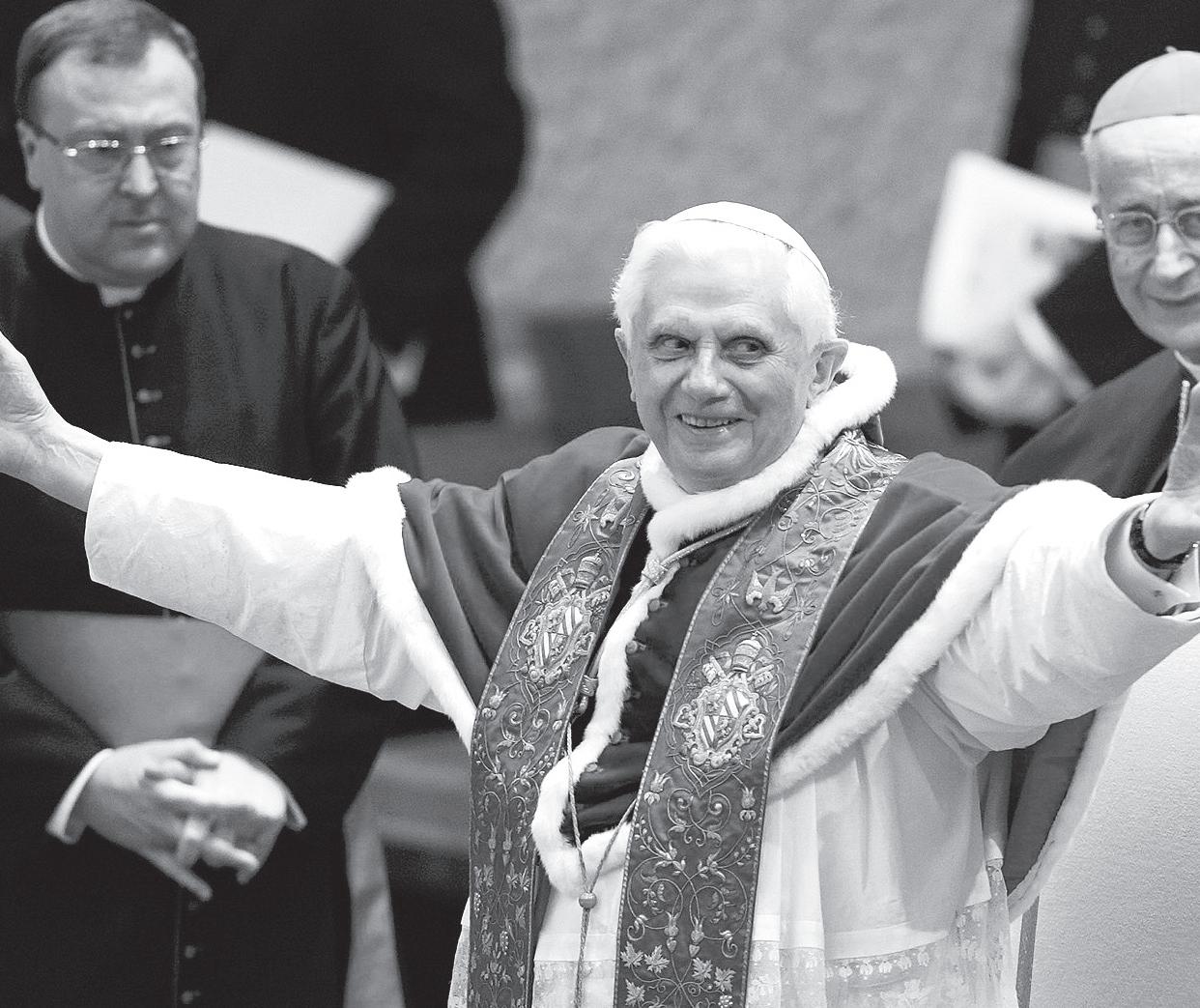
‘Baptism must be in name of the Trinity’ to be Christian: Vatican
Continued from page 1 Spirit,” the congregation answered “Affirmative.”
The congregation said Pope Benedict XVI “approved these responses” and ordered their publication.
If either formula - recently initiated in North America to avoid referring to the Trinity with masculine names - was used, the person is not yet formally a Christian and any subsequent sacraments the person received also are invalid, said Cardinal Urbano Navarrete in a commentary commissioned by the doctrinal congregation.
“Persons who were baptised or will be baptised in the future with the formulas in question in reality are not baptised,” the cardinal wrote. If they are now adults and want to
in brief
Missing dads
Fathers are often missing from family life and this puts their children at a considerable disadvantage, as research over the last 20 years shows. A Swedish team reviewed 24 published studies and
be baptised, they must receive the instruction prescribed for all preparing for baptism and they should receive baptism, confirmation and the Eucharist during the same Mass, he said.
The most serious practical consequences, he said, are likely to be seen in the area of marriage where no sacrament exists if both spouses had been baptised with an invalid formula.
Even if only one of the spouses had been baptised with an invalid formula, there still is no valid sacrament of matrimony unless before the wedding the couple had obtained the dispensation needed for a marriage between a Catholic and a non-Christian, the cardinal said.
Cardinal Navarrete also said that,
found that active, involved fathers, or “father figures”, protect boys from developing behavioural problems and girls from psychological problems.
Regular, positive contact also reduced criminal behaviour among children in low-income families and enhanced their intellectual development. Children who actually lived with both a mother and
obviously, the sacraments of confirmation and of holy orders also are invalid when conferred on people baptised with an invalid formula.
In addition, he said, anyone who attempted to baptise someone using an invalid formula is subject to church penalties, which should be applied since it is “seriously illegitimate and unjust to deceive both the baptised and the community” by presenting the rite as a baptism.
In a separate commentary also commissioned by the doctrinal congregation, Mgr Antonio Miralles said “expressions that invalidate the conferral of a true baptism cannot be tolerated by the Church.”
The monsignor, a consultant to the doctrinal congregation and a professor at Rome’s Pontifical Holy Cross University, said the Church
father figure had fewer behavioural problems than those who lived with just their mother. Long-term, women had better relationships with partners and a greater sense of well-being at age 33 if they had a good relationship with their father at 16.
The researchers say they are not able to conclude exactly what kind of engagement the father fig-
believes it has no authority “to change that which Christ himself instituted” when he told his disciples to go out and baptise “in the name of the Father, and of the Son and of the Holy Spirit.”
The problem with using “creator” and “redeemer” is not that they do not identify God as male, but that they “subvert faith in the Trinity” because they do not make clear the relationship among the three distinct persons, he said.
For example, “God is eternally Father in relation to his only begotten Son, who is not eternally Son except in relation to the Father.”
Mgr Miralles said that the formula “creator, redeemer, sanctifier” is not Trinitarian because it blurs the distinctions among the three persons of the Trinity who all
ure needs to produce the positive effects. Nor are they sure if outcomes differ depending on whether the child lives with their biological father or with another father figure. They conclude that governments and employers need to come up with “father-friendly policies” that support the increased involvement of fathers in childrearing. FAMILYEDGE
are involved together in the divine actions of creation, redemption and sanctification.
The monsignor also argued that the use of the recent formulasmore common among Protestants than among Catholics - could have a negative impact on ecumenism, because a common baptism is essential for Christian unity.
A baptism recognised as valid by all dialogue partners is what allows them to call each other Christians, he said.
“All of us Christians are called to remain solidly faithful to the unity well expressed in the Letter to the Ephesians,” which calls for a common profession of “one Lord, one faith, one baptism, one God and Father of all,” he said. CNS
Cheating
More than 4000 students were caught cheating in senior school exams last summer, British figures show. Banned mobile phones and other electronic devices featured in about 1000 cases. A sharp rise in extra time was given to students to complete exams. FAMILYEDGE
March 5 2007, The Record Page 13
Among friends: Pope Benedict XVI waves at the end of a prayer service for university students in the Paul VI Hall at the Vatican on March 1.
PHOTO: CNS PHOTO/MAX ROSSI, REUTERS
Mondays March 10 and 17
THE WORLD APOSTOLATE OF FATIMA
Will be presenting the next set of talks in Fr Corapi’s Catechism series. Venue: Catholic Pastoral Centre, Highgate, commencing at 7.30pm. There is plenty of parking available and all are welcome. Enq: 9279 1964.
Saturday March 8
MARY MACKILLOP MONTHLY MASS
Starting at 6pm at the Sisters of St Joseph Chapel, 16 York Street, South Perth. All welcome. Come and pray in a beautiful Sacred Space. Praying through the intercession of Mary MacKillop.
Saturday March 8
ULTREYA
To be held at Our Lady of Grace Parish, Kitchener Rd, North Beach starting at 2pm. All welcome. Please bring a plate for afternoon tea. Enq: Andrew or Lorraine Booth 9364 9567 or 0413 704 416.
Saturday March 8 and 15
EVERY SATURDAY VIDEO / DVD NIGHT
Starting straight after the 6.30pm Vigil Mass: at St Joseph’s Church, 20 Hamilton St Bassendean. A variety of Videos / Dvd’s will be shown i.e. The Saints, Conversion Stories, Catholic Teaching etc. Each video is approx. 30mins. Want to learn more about our Catholic faith? Bring the family along, there is no charge. Saturday March 8 showing ‘Greek Schism’. Saturday March 15 presenting pt. 1 of ‘Four Marks of the Church’.
Saturday March 8
HEALING RALLY
Sacred Heart Church, Guppy Street, Pemberton at 7.30pm. The Rally will be led by Fr John Rea, a NZ Marist Priest ordained 52 years, in his 33rd year of preaching Parish Missions and involved in Healing Ministry for 18 years. Rally presented by HSOF Community. Everyone welcome. Enq: Betty 9771 1916.
Saturday March 8
ST PADRE PIO PRAYER GROUP
Infant Jesus Church, 47 Wellington Road, Morley. Starting at 9am St Padre Pio DVD (Parish Centre). 10am Exposition of the Blessed Sacrament, Rosary, Divine Mercy, Silent Adoration and Benediction. 11am Holy Mass. St Padre Pio Liturgy confessions available. Noon BYO lunch in Parish Centre. Tea and Coffee supplied. Enq: Des 6278 1540.
Sunday March 9
ETERNAL WORD TELEVISION NETWORK : EVERY
SUNDAY, 1 2 PM ON ACCESS 31
March 9: Declaration on Euthanasia / Fr John Trigilio [Council of Faith]; followed by: What really happened to Terri Schiavo / Fr Frank Pavone [Defending Life]. Funds are starting to run low. To continue, we need your help. Please send donations to RCTA, PO Box 1270, Booragoon 6954. Enq: 9330 2467.
Sunday March 9
SPECIAL LENTEN RETREAT AWAKENINGS
Beginning at 2pm sharp, Patrist House, 7 Warde Street Midland. Limited places. NonRefundable Reg. Fee $10. Must book. Fr Douglas Rowe SFP Enq: Ph 9250 5395.
Tuesday March 11
OBLATES OF THE PRECIOUS BLOOD
Meet every 2nd Tuesday of month from 10am at Kalamunda. Prayer; Silence; Lectio Divina. Visitors welcome. Enq: 9293 3092.
Panorama
a roundup of events in the Archdiocese
Wednesday March 12
PARENTING: SUCCESS AT SCHOOL: OVERCOMING STUDY AND EXAM BLOCKAGES
Presenter Hasser Graham (Registered Psychologist) Cost: $10. Starting at 7.30pm -9.30pm, Mary MacKillop Hall (Multi-Purpose Room) John XXIII College. Registration and Enq: Murray 9383 0444.
Wednesday March 12
CHAPLETS OF THE DIVINE MERCY
A beautiful, prayerful, sung devotion held at St Thomas More Catholic Church, Dean Road Bateman, on the second Wednesday of each month commencing at 7.30 pm. The next devotion is to be held on Wednesday 12th March 2008. All are welcome. Enq: George Lopez 9310 9493(hm) or 9325 2010(wk).
Friday March 14 to Sunday March 16
MARRIAGE ENCOUNTER WEEKEND
Will be held at Penola by the Sea, Safety Bay. Please treat yourself and your Spouse to a weekend that will enrich your relationship forever. Bookings and enquiries: Joe & Margaret Cordina on 9417 8750.
Saturday March 15
A MORNING RETREAT: ’ INNER PEACE PART 1’
Presenter Murray Graham (Inigo Centre Director) Cost: Donation. Starting at 9am to 12noon, at the Mary MacKillop Hall (MultiPurpose Room) John XXIII College. Registration and Enq: 9383 0444 Murray.
Saturday March 15
ST BERNADETT E’S CATHOLIC PRIMARY SCHOOL FETE
Where: Grand Ocean Boulevard, Port Kennedy. When: 11am to 4pm. What’s on: rides, show bags, food, plant & cake stalls, music, dancers, magician, ponies, bouncy castle (as available). Fun for all ages. Come and join the fun! Enq: Robyn Fitzgerald rfitzgerald3@aapt.net.au or: 0405 672 487.
Sunday March 16
STATIONS OF THE CROSS, ST THERESA’S CHURCH GWELUP
All are welcome to join the Secular Franciscan Fraternity of Balcatta in a celebration of the Stations of the Cross on Palm Sunday at 3pm, followed by afternoon tea in the Community Centre. The Church is located at 678 North Beach Road, Gwelup.
Sunday 16 March
“THE SEVEN LAST WORDS OF JESUS CHRIST”
HAYDN OP.51
Starting at 3pm at St Benedict’s Church, Ardross Street, Applecross. This beautiful music, which Haydn wrote as a Lenten devotion, will be performed by the talented string quartet “Ensemble Trastevere” as part of our 2008 Faith Enrichment Series. All welcome. Refreshments will be shared following the performance. Entry by Donation.
Sunday March 16
THE SACRED HEART COMMUNITY FAIR
Is to be held in the picturesque setting of the Sculpture Park, Jacoby Street, Mundaring. Starting at 10am and finishes at 4pm. The Fair is a FREE old fashioned family fun day with activities, rides, live acts, great food and over 50 craft and specialty stalls.
Sunday March 16
TAIZE MEDITATION
Come and join in the prayer at 7pm, Sisters of St Joseph Chapel, 16 York St, South Perth. All are welcome Enq: Sister Maree Riddler 0414 683 926.
Friday March 21
GOOD FRIDAY CEREMONIES BINDOON CATHOLIC AGRICULTURAL COLLEGE
11am - Stations of the Cross, 2.30pm Solemn ceremony - The Lord’s Passion. Confessions from 10.30am and after Stations of the Cross. All are welcome! Enq: Fr Paul 9571 1839.
Monday March 24
WALK FOR VOCATIONS
3pm HOLY MASS. At the Schoenstatt Shrine, 9 Talus Drive, Armadale. Main celebrant Bishop Don Sproxton. At 4.30pm “WAY OF LIGHT” tracing the footsteps of the Risen Lord, presented by various religious communities as well as reps. from WYD and CYM. At 6pm Sausage sizzle. At 7pm ROSARY OF LIGHT Adoration and Benediction. Please BYO folding chair. Enq: Sr M. Lisette 9399 2349 or email: shrine@elink. net.au.
Friday March 28
ST COLUMBA’S SOUTH PERTH
Celebrates 100 years 1908-2008
All past and present pupils, families, teachers and principals are invited to join in the centenary Celebrations at St Columba’s in 2008. The first event held for the year will be a Centenary Celebration Mass & Reunion, followed by supper and a walk through the school. Mass starts at 7pm at St Columba’s Church, South Perth. Enq: St Columba’s Primary School 9367 3666 or email: admin@stcolumbassp.wa.edu.au.
Sunday March 30
RUBY JUBILEE
Father Michael Gatt will be celebrating his Ruby Jubilee on his Anniversary Day at the same time as his ordination. Concelebrated Mass will be held at St Kieran’s Church, korner of Cape and Waterloo Streets, Tuart Hill at 6pm. Friends and former parishioners of Fr Gatt are most welcome to attend the Mass.
Saturday April 5
DAY WITH MARY
St Bernadette’s Church, Cnr Leeder & Jugan Streets, Glendalough. Starting at 9am to 5pm. A video on Fatima will be shown at 9am. A day of prayer and instruction based upon the message of Fatima. Includes Sacrament of Penance, Holy Mass, Eucharistic Adoration, Sermons, Rosaries, Procession of the Blessed Sacrament and Stations of the Cross. Please BYO lunch. Enq: Franciscan Sisters of the Immaculate 9250 8286.
Friday April 4 to Sunday April 6
GOD’S FARM RETREAT
“The God of unconditional Love, now and in the Life to Come” is the topic Retreat Master, Fr Tony Chiera VG will share with us on this quiet weekend retreat, assisted by Dr Michael Jackson. Fr Tony celebrates Holy Mass daily and reconciliation. 7.30pm to Sunday 6 April 2pm, at God’s Farm, 40kms south of Busselton. Map avail. Our hired bus goes directly from Perth to God’s Farm and return. Prompt bookings ring Yvonne 9343 1897. Reservations call Mrs Betty Peaker sfo PO Box 24, Cowaramup 6284. Phn/Fax 9755 6212.
Friday June 6 to Friday September 26
PASTORAL CARE COURSE
For those wanting to know about mental illness this 17 week course will run on Fridays, 8.45am to 3.30pm from Friday June 6 to Friday September 26. This course involves information sessions on schizophrenia, bipolar, suicide awareness, eating disorders etc plus group work and ward visits. Course donation of $100 is invited. Applications close 2nd May. Enq: Bob Milne 9347 6685 or 0413 325 486.
First Friday of the Month WITNESS FOR LIFE
Pro-Life Mass at St Brigid’s, Midland starting at
Panorama
9.30am. Followed by Rosary, Procession and Prayer Vigil at abortion clinic. Led by Franciscan Friars of the Immaculate. Enq: Helene 9403 2444.
Every Tuesday
THE GOSPEL OF ST MATTHEW
Exciting revelations into the Gospel of St Matthew are being offered in a free of charge Bible course being conducted by Fr Douglas Rowe SFP St Joachim’s Parish Hall, Shepperton Road, Victoria Park. The course will be held every Tuesday at 7.30pm. Light refreshments will follow. Please bring your bible and a friend.
PERPETUAL ADORATION OF THE BLESSED SACRAMENT
Is in its fifth year at Christ the King Church, Lefroy Road, Beaconsfield. 24 hours per day, except at Mass times. All are invited to spend an hour with Jesus truly present. Entrance is from the porch, near the altar on the Lefroy Road side of the church. Enq: Joe 9319 1169.
Third Sunday of the Month
OBLATES OF ST BENEDICT MEET
Venue: St Joseph’s Convent, York Street, South Perth at 2pm. An annual Retreat is held at New Norcia, Trinity Sunday Weekend. Oblates are affiliated with Benedictine Abbey New Norcia. We celebrate our 50th Anniversary September 2008. A golden celebration. All welcome. Vespers and afternoon tea conclude monthly meeting. Enq: Secretary 9388 3026.
IS YOUR SON OR DAUGHTER UNDECIDED AFTER SCHOOL?
Is your son or daughter unsure what to do in 2008? Acts 2 College offers them a productive year discovering God’s purpose for their life while learning practical life skills. They will develop practical life skills in addition to learning more about the Catholic faith and deepening their own faith in God. Scholarships available. Contact Jane Borg on 9202 6859.
First Sunday of Every Month
HEALING FIRE BURNING LOVE MINISTRY
Celebrates the Sunday Mass at St Bernadette’s Church, Cnr Jugan and Leeder Streets, Glendalough commencing with praise and worship at 6.30pm and Mass at 7pm. We have healing prayers after the Mass so please invite all those in need of the healing love and power of Jesus. Enq: Jenni Young 9445 1028 or 0404 389 679.
Every First Friday and First Saturday
COMMUNION OF REPARATION ALL NIGHT VIGIL
Starting Friday 7pm to 1am Saturday. Corpus Christi Church, 43 Lochee Road, Mosman Park. Prayers according to the booklet of The Alliance of the Two Hearts. Father Bogoni will say Mass and hear confessions all night concluding with Mass to honour the Immaculate Heart of Mary at 1am. Please join us even for an hour. Hymns, Rosaries and silent adoration included. Enq: Vicky 9364 2378 or Catalina 0439 931 151.
Every First Friday of the Month
ST PIO FIRST FRIDAY MASS
7:30 pm honouring St Pio of Pietrelcina with Novena to the Sacred Heart and Prayer of Union. Join in every First Friday, St Joseph’s Parish, 20 Hamilton Street, Bassendean.
Every Sunday LATIN MASS KELMSCOTT
The Latin Mass according to the 1962 missal will be offered every Sunday at 2pm at the Good Shepherd Parish, 40-42 Streich Avenue, Kelmscott, with Rosary preceding. All welcome.
Panorama entries must be in by 5pm Monday. Contributions may be faxed to 9227 7087, emailed to administration@therecord.com.au or mailed to PO Box 75, Leederville, WA 6902. Submissions over 55 words will be edited. Inclusion is limited to 4 weeks. Events charging over $10 constitute a classified event, and will be charged accordingly. The Record reserves the right to decline or modify any advertisment. Please do not re-submit Panoramas once they are in print.
Page 14 March 5 2008, The Record
Classifieds
Classifieds: $3.30/line incl. GST 24 hour Hotline 9227 7778 Deadline: 12pm Monday
OFFICIAL ENGAGEMENTS
9
St Joseph, Hamilton Hill - Bishop Sproxton
12 Catholic Youth Ministry: Six 30 Pillars - Archbishop Hickey
13 Parliamentary Reception for Project Compassion 2008 - Bishop Sproxton
17 Iona College Centenary Mass - Archbishop Hickey
18 Chrism Mass, Blessed Mary MacKillop Church, Ballajura - Archbishop Hickey, Bishop Sproxton
Australian Christian Lobby Breakfast - Fr Brian O’Loughlin VG
ACN launches WYD appeal for Third World youth
The Australian arm of the Catholic charity Aid to the Church in Need has launched a major fund raising campaign to help youth from Sudan, Burma, Laos, East Timor, Papua New Guinea and other poor and oppressed countries attend World Youth Day 2008.
Fr Nick de Groot SVD, general secretary of the Catholic Bishops’ Conference of Papua New Guinea and the Solomon Islands wrote to Aid to the Church in Need (ACN), the Catholic charity for suffering Christians, saying funding up to 1000 or more youth to get to WYD is proving a headache. They cannot possibly hope to raise more than two thirds of the overall costs at the very most.
“About 85 per cent of the population are still subsistent farmers and do not have a significant cash income for their families. “They live mostly from the garden produce that they cultivate themselves,” Fr de Groot said.
Phillip Collignon, National Director of Aid to the Church in Need Australia said Sydney is within reach for the youth from our Pacific neighbours, unlike the previous World Youth Days held in distant cities such as Rome and Cologne. Organisers are seeking funds for youth from all its 19 dioceses.
PNG’s 5.3 million inhabitants - most of whom live in great poverty - belong to over 700 different ethnic groups. Most are
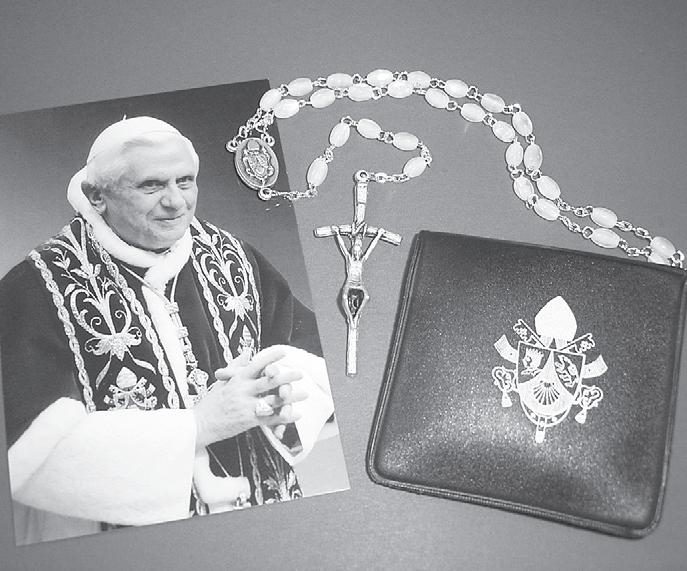
now Christians, with roughly a 50/50 mix of Catholics and Protestants.
The Catholic Church in PNG is taking on many duties that should be the responsibility of the government, like education, but receives no subsidies from the government. Sects are now spreading, promising youth a rapid career rise within their ‘hierarchy’ and in turn put great pressure on their families to join these supposedly “saving sects”.
For the Church to counter this threat, then she will need soundly trained priests, Religious and lay people, which WYD helps foster through helping youth realise their vocation in life.
ACN has promised to help fund the youth delegation from PNG to WYD 2008 and plan to contribute $24,000. To support this cause please send your donation to Aid to the Church in Need PO Box 6245 Blacktown DC NSW 2148 or ring through your credit card donation to the Sydney office of ACN on (02) 9679-1929, e-mail info@aidtochurch.org or log onto www.aidtochurch.org.
ADVERTISEMENTS
ACCOMMODATION
■ FAMILY/GROUP ACCOMMODATION
www.beachhouseperth.com Call 0400 292 100
■ TO LET
Mandurah furnished holiday apartment in resort complex. 3 bdrm, 2 bath. Phn 9381 3495 or email: valma7@bigpond.com.
■ ST ANNE’S CHURCH, BINDOON Accomm for retreat/family/group or single tel 9576 0975.
BOOK REPAIRS
■ REPAIR YOUR LITURGICAL BOOKS
General repairs to books old bibles & missals. 2ndhand Catholic books avail. Tydewi Bindery 9293 3092.
BUILDING TRADES
■ BRICK REPOINTING
Phone Nigel 9242 2952.
■ PERROTT PAINTING PTY LTD
For all your residential, commercial painting requirements. Phone Tom Perrott 9444 1200.
■ BRICKLAYING
20 years exp. Quality work. Phn 9405 7333 or 0409 296 598.
■ PICASSO PAINTING
Top service. Phone 0419 915 836, fax 9345 0505.
FURNITURE REMOVAL
■ ALL AREAS
Mike Murphy 0416 226 434.
GIFTS
■ OTTIMO
Shop 108 Trinity Arcade (Terrace Level)
Hay Street, Perth, Ph 93224520, Convenient city location for a good selection of cards, candles, statues, medals, apparel and gifts for baptism, reconciliation, communion, confirmation and weddings. We also stock a range of Monastique skin care product made by the Carmelite Sisters, fashion accessories, jewellery, handbags and Australian made gifts. Opening hours: 8.30am to 5.30pm Monday to Thursday 8.30am to 7pm Fridays.
HEALTH
■ DEMENTIA REMISSION
Do you, or your loved one, suffer Dementia. Get into Dementia Remission like me! http://www. wgrey.com.au/dm/index.htm or (02) 9971 8093
WEDDING MUSIC
■ CLASSICAL MUSIC FOR YOUR WEDDING CEREMONY
Performed by the ‘Simply Classical Quartet’ 9444 1630. Demonstration CD available.
BLINDS
■ BLINDS SPECIALIST
Call AARON for FREE quotes 0402 979 889.
RELIGIOUS PRODUCTS
■ CATHOLICS CORNER
Retailer of Catholic products specialising in gifts, cards and apparel for baptism, communion and confirmation. Ph: 9456 1777. Shop 12, 64-66 Bannister Road, Canning Vale. Open Mon-Sat.
■ RICH HARVEST YOUR CHRISTIAN SHOP
Looking for Bibles, CDs, books, cards, gifts, statues, baptism/communion apparel, religious vestments, etc? Visit us at 39 Hulme Court (off McCoy St), Myaree, 9329 9889 (after 10.30am Mon to Sat). We are here to serve.
■ KINLAR VESTMENTS
‘Modern meets tradition.’ Quality hand-made & decorated. Vestments, altar cloths, banners. Contact: Vickii Smith Veness. 9402 8356 or 0409 114 093.
PROPERTY
■ AUSTRALIND PRIVATE SALE
3 bdrm, brick and tile residence, fully fenced. Schools, shopping centre, estuary very close. $310,000 ono. Phn: Dennis 0438 829 949.
■ THINKING OF SELLING OR BUYING PROPERTY IN 2008
First Class Service
Accurate Caring and up to date advice
Premium Marketing
Acton Applecross – The
Name:
Address:
Suburb:
Postcode:
Telephone:
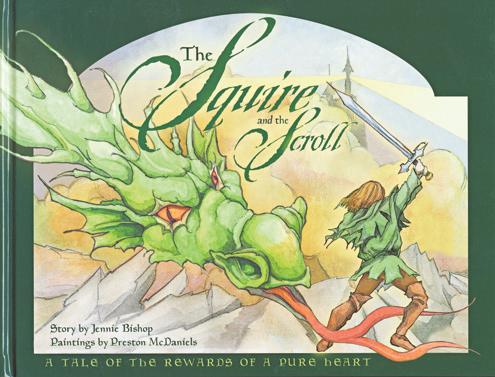


March 5 2008, The Record Page 15
Number One Sales Force Joel White 0404 096 214
PREMISES REQUIRED
■
looking
premises NORTH of Perth where
hold daytime clinics
our clients.
three
where
clients
Our teachers
Billings Ovulation
Billings
119
Marilena
We are
for
we can
for
We require premises for a period of
to four hours during one day of the week;
we can see the
privately and also has a waiting room. A Doctors surgery would be ideal. Similar offers would be appreciated.
are highly qualified in the field of Fertility education and management in the
Method. Please contact
WA 0409
532
Scarfe. MARCH
Festival
of
Subscribe!!!
order for $78 For $78 you can receive a year of The Record and Discovery Please debit my Bankcard Mastercard Visa Card No Expiry Date: ____/____ Signature: _____________ Name on Card: Send to: The Record, PO Box 75, Leederville WA, 6902 The Parish The Nation The World
I enclose cheque/money
Giving: Donors will receive a complementary prayer card and Rosary to pray for the success of World Youth Day.
PHOTO: ACN
Hear His Word Hear His

Ignatius RSV Holy Bible
This is the Revised Standard Version Catholic Edition, revised according to the Liturgiam Authenticam 2002. Excellently presented softcover which comes with colour maps of the Biblical world.
$39.95+postage
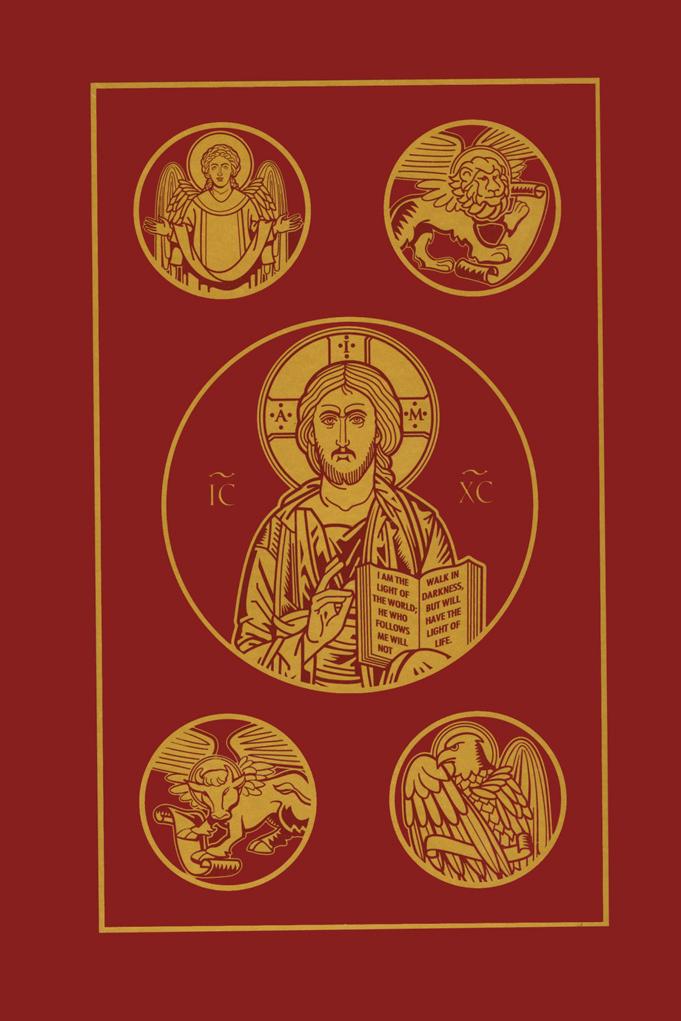

Breakthrough! The Bible for Young Catholics Breakthrough! was created for young Catholics aged 10 to 14 years old, leaving childhood and entering adolescence. Ten special features help make the Bible easier to read and understand. You will learn about the great people of the Bible, see how God broke through into human history and connected with humanity, and, most importantly, discover how God breaks through into your life today!
$34.95+postage
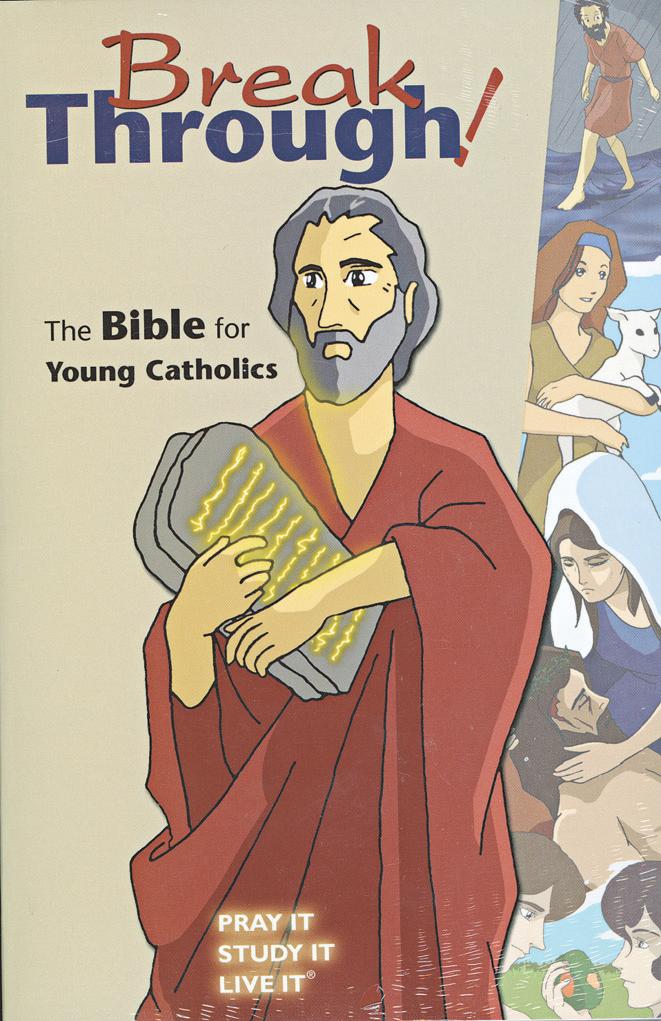

Children’s Illustrated Bible
This highly popular Bible for children aged 8-12 years old, features detailed illustrations and information panels on life and customs in Biblical times, to help young readers understand each book of Scripture in greater detail.
$24.95+postage


Talks to change your life
The Mary Foundation 9 CD set
Over the past two decades the Mary Foundation has recorded some of the best talks of the Catholic Church’s most prolific teachers. Now available from
The Record is a 9CD set of full-length talks that have inspired, entertained and educated millions of people around the world.
The Mary Foundation 9CD set includes:
The Mass Explained by Fr Larry Richards
The Conversion of Scott Hahn by Scott Hahn
Seven Secrets of the Eucharist by Vinny Flynn
The Rosary and Divine Mercy Chaplet
Confession by Fr Larry Richards














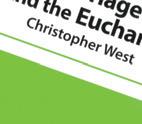







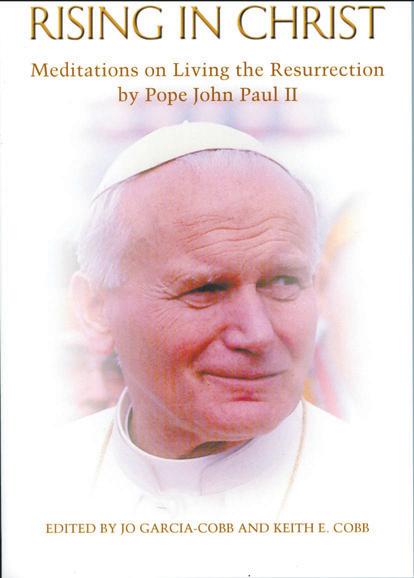

$26.95+postage My
The Truth About Mary by Patrick Madrid & Marcus Grodi
John Corapi’s Amazing Story by John Corapi Marriage and The Eucharist by Christopher West Healing and Holiness by Vinny Flynn Complete

















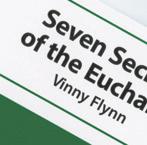






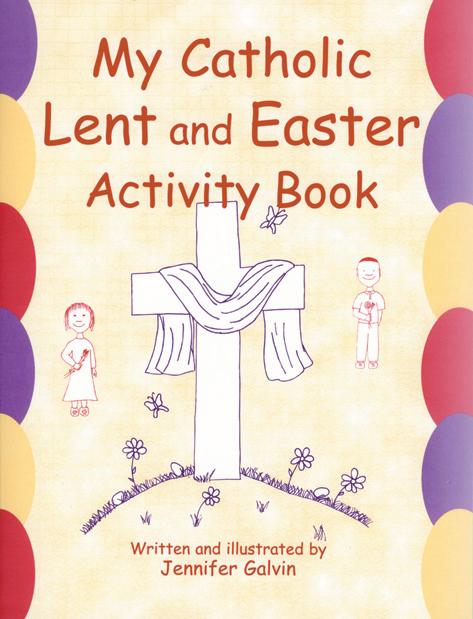

By
Make
$11.95+postage
9CD set $20 + postage. While stocks last! March 5 2008, The Record Page 16
ookshop
Contac t Natalie at the Bookshop Contact Natalie at the on Mondays, Thursdays and Fridays (10am - 5pm) on and (10amon (08) 9227 7080 or via bookshop@therecord.com.au on (08) 9227 7080 or via 587 Newcastle St. West Per th Perth Fun and faith! Fun and faith! Rising In Christ: Meditations on Living the Resurrection by John Paul II Edited by Jo Garcia & Keith Cobb The resurrection of Christ is the foundation of our faith. In these meditations John Paul II shows us that the hope and joy of the resurrection is a tangible reality we can experience in our own lives. The perfect book for Lent and Easter.
Bibles from The Record B
Bibles from The Record Bookshop
Catholic Lent and
Activity Book
Easter
Jennifer
Galvin
learning
true
and
book
celebrate
the
at
or school.
fun for kids while showing them the
meaning of Lent and Easter,
their traditions. This activity-filled
helps kids journey with Jesus through His last days, then
with
disciples
His Resurrection. Great for home



















 ■ By Matthew Biddle
■ By Matthew Biddle
































 Sarah Ackland
Sarah Ackland



 with Debbie Warrier
with Debbie Warrier















































































